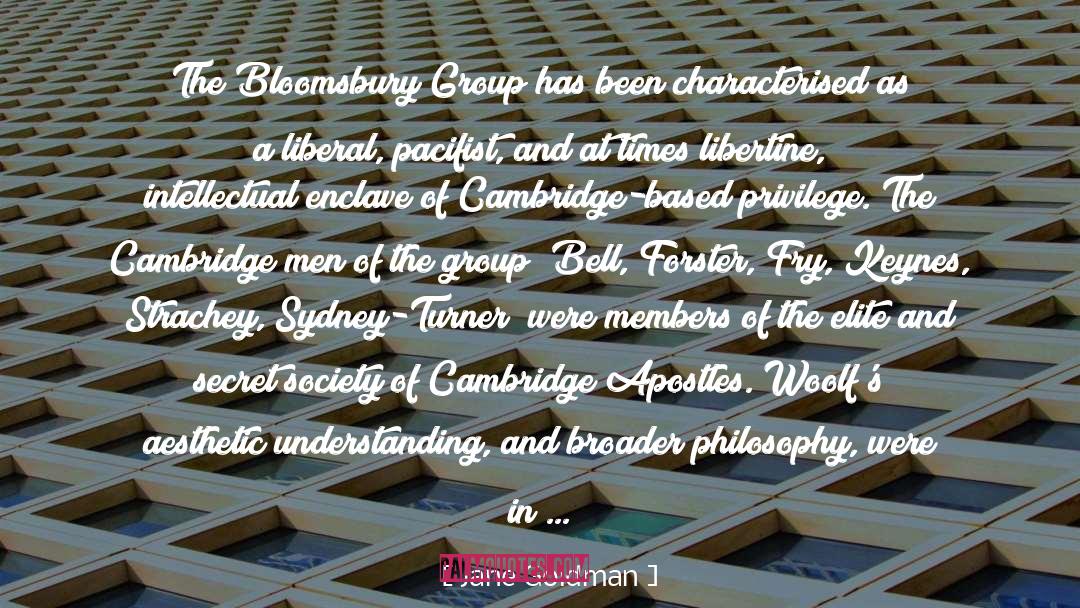Quotes About Literary Criticism
Enjoy collection of 100 Literary Criticism quotes. Download and share images of famous quotes about Literary Criticism. Righ click to see and save pictures of Literary Criticism quotes that you can use as your wallpaper for free.
As long as people believe in the written word and a good story.. They will believe in me. ~ Solange Nicole

Most of the makers of the twentieth-century mind, figures such as Freud, Heisenberg, Picasso, Joyce, and Eliot, have in common an about-face on the subject-object question and the mindmatter question; they all reject the dualism that arbitrarily and irreversibly splits the world into pieces. This rejection of dualism and the corresponding reach for monism are of the essence in understanding the revolutionary nature of twentieth-century science and art. ~ Jewel Spears Brooker
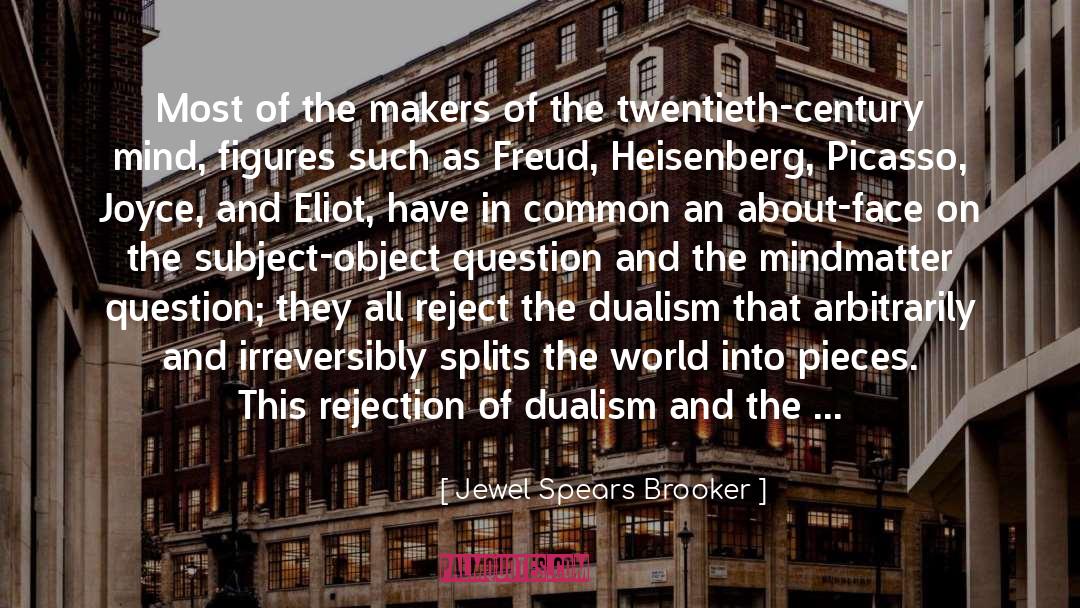
With a few exceptions, the critics of children's books are remarkably lenient souls ... Most of us assume there is something goodin every child; the critics go from this to assume there is something good in every book written for a child. It is not a sound theory. ~ Katharine Sergeant Angell White
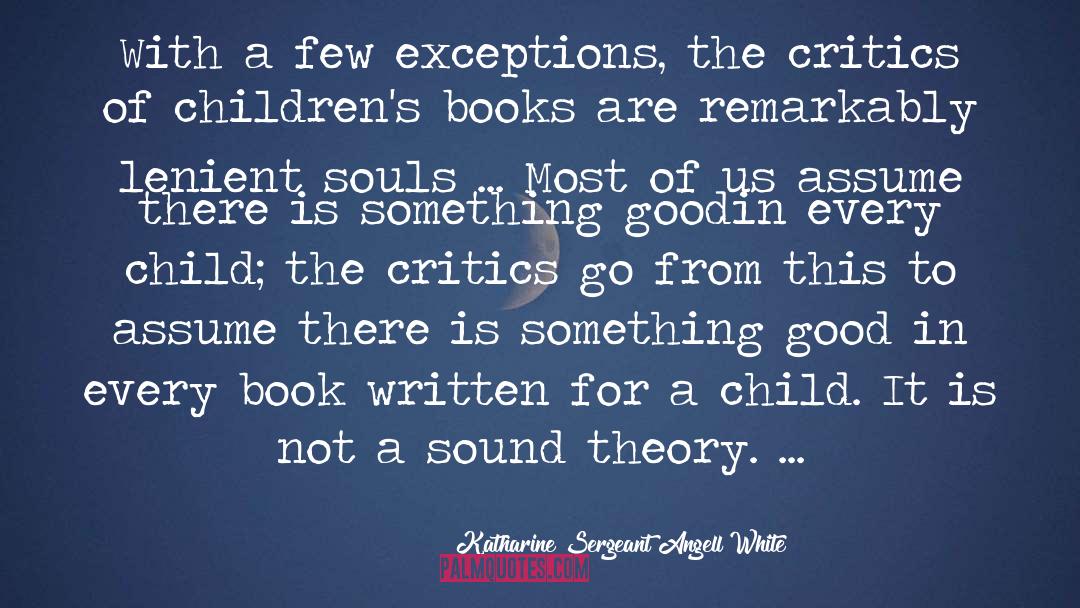
The character and the play of Hamlet are central to any discussion of Shakespeare's work. Hamlet has been described as melancholic and neurotic, as having an Oedipus complex, as being a failure and indecisive, as well as being a hero, and a perfect Renaissance prince. These judgements serve perhaps only to show how many interpretations of one character may be put forward. 'To be or not to be' is the centre of Hamlet's questioning. Reasons not to go on living outnumber reasons for living. But he goes on living, until he completes his revenge for his father's murder, and becomes 'most royal', the true 'Prince of Denmark' (which is the play's subtitle), in many ways the perfection of Renaissance man.
Hamlet's progress is a 'struggle of becoming' - of coming to terms with life, and learning to accept it, with all its drawbacks and challenges. He discusses the problems he faces directly with the audience, in a series of seven soliloquies - of which 'To be or not to be' is the fourth and central one. These seven steps, from the zero-point of a desire not to live, to complete awareness and acceptance (as he says, 'the readiness is all'), give a structure to the play, making the progress all the more tragic, as Hamlet reaches his aim, the perfection of his life, only to die. ~ Ronald Carter
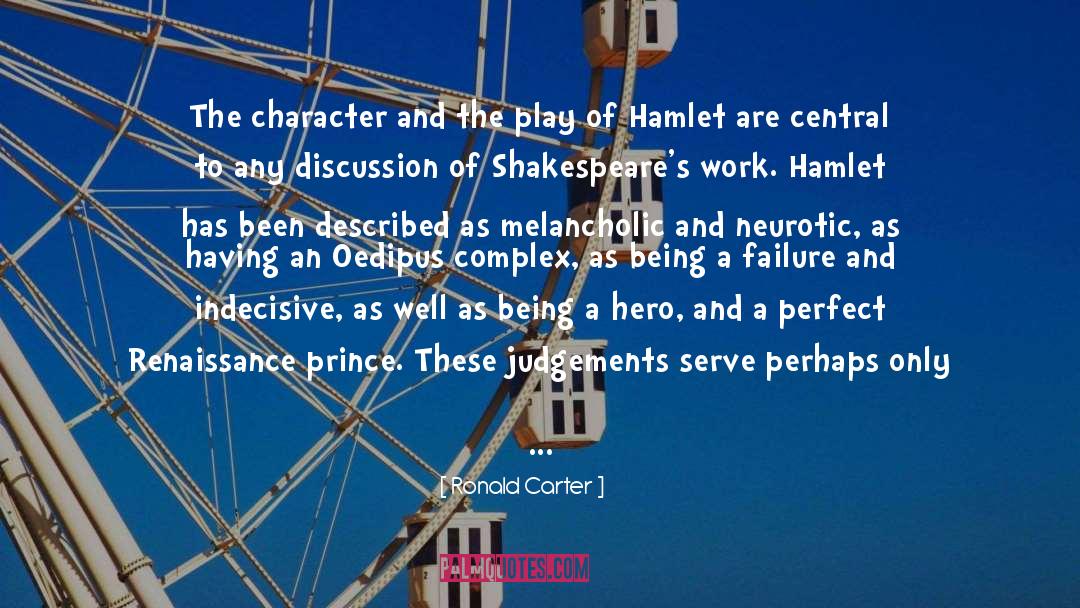
The 1980s: feminism, postmodernism, sexual/textual politics
While it might be tempting to generalise that Woolf 's writing was being discussed almost in two separate camps during the 1980s, formalists on the one hand, and feminists on the other, this would be to simplify things too far.
Many critics were attempting to make sense of and connect her feminist politics with her modernist practices. Such investigations coincided with the explosion of theory in literary studies, and once again the work of Virginia
Woolf was central to the framing of many of the major theoretical developments in literary critical engagements with feminism, postmodernism, deconstruction and psychoanalysis. In the context of the rise of 'high theory'
and the questioning of old-school Marxist, materialist, humanist and historicist literary theories, Woolf studies wrestled with the locating of her radical feminist politics in the avant-garde qualities of the text itself, and its endlessly transgressive play of signifiers, with the Woolfian inscription of radically deconstructed models of the self and of sexuality and jouissance. ~ Jane Goldman
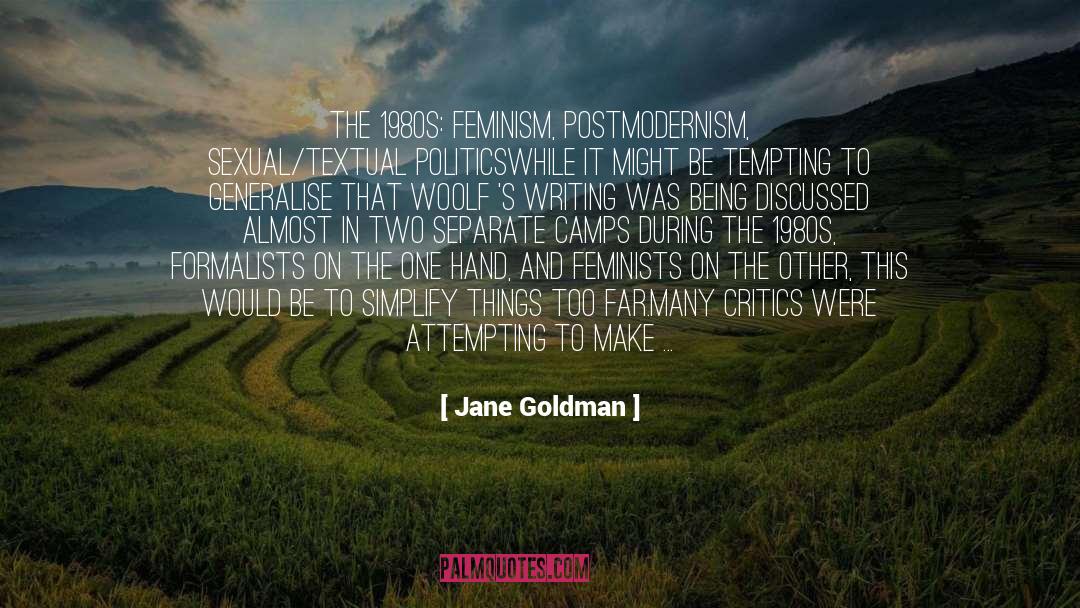
We have then, in the first part of The Faerie Queene, four of the seven deadly sins depicted in the more important passages of the four several books; those sins being much more elaborately and powerfully represented than the virtues, which are opposed to them, and which are personified in the titular heroes of the respective books. The alteration which made these personified virtues the centre each of a book was probably part of the reconstruction on the basis of Aristotle Ethics.
The nature of the debt to Aristotle suggests that Spenser did not borrow directly from the Greek, but by way of modern translations. ~ Janet Spens
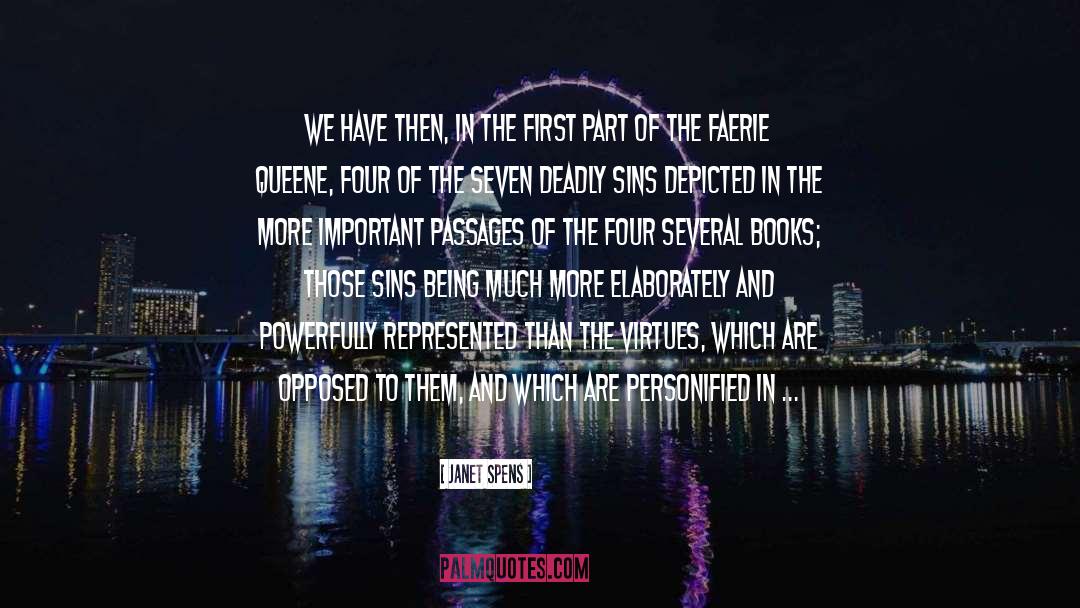
I can no longer think what I want to think. My thoughts have been replaced by moving images. ~ Georges Duhamel
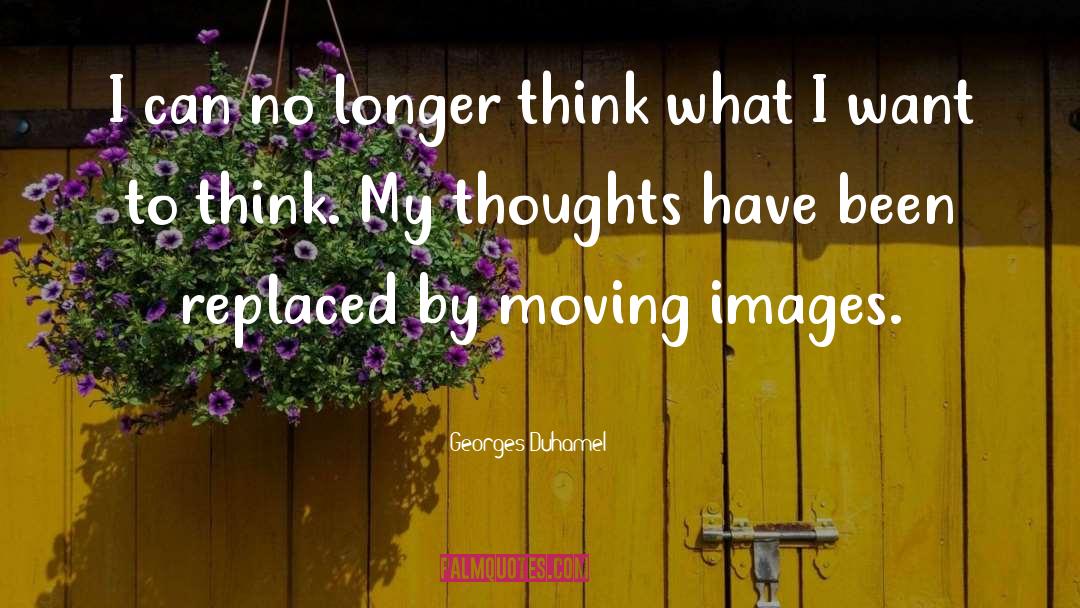
Surely you do not think that criticism is like the answer to a sum. The richer the work of art the more diverse are the true interpretations. There is not one answer only, but many answers. I pity that book on which critics are agreed. It must be a very obvious and shallow production. ~ Oscar Wilde
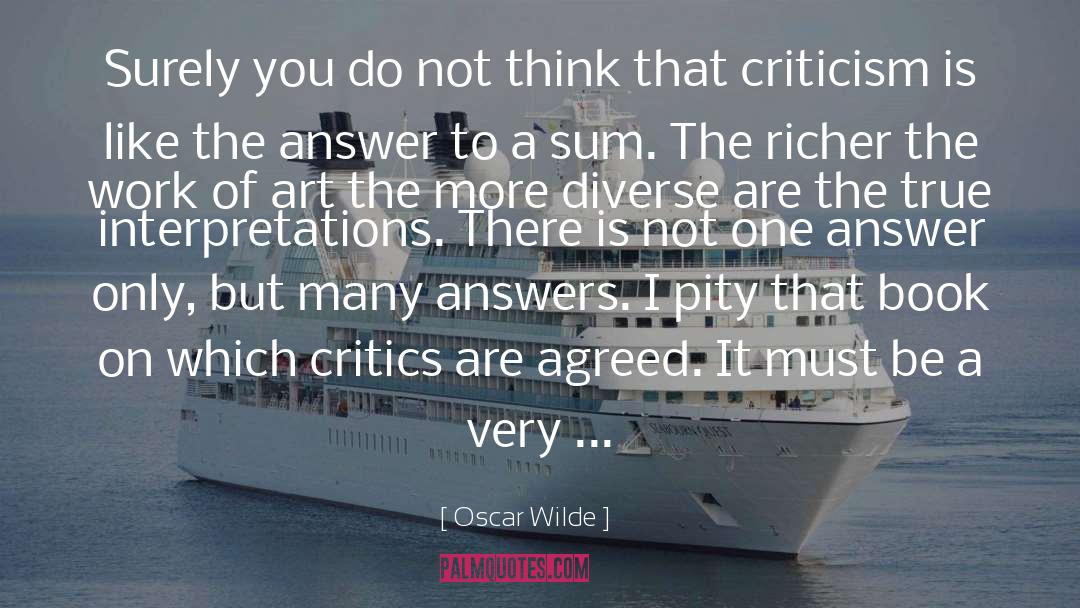
Strict rules of evidence would destroy psychoanalysis and literary criticism. ~ Mason Cooley
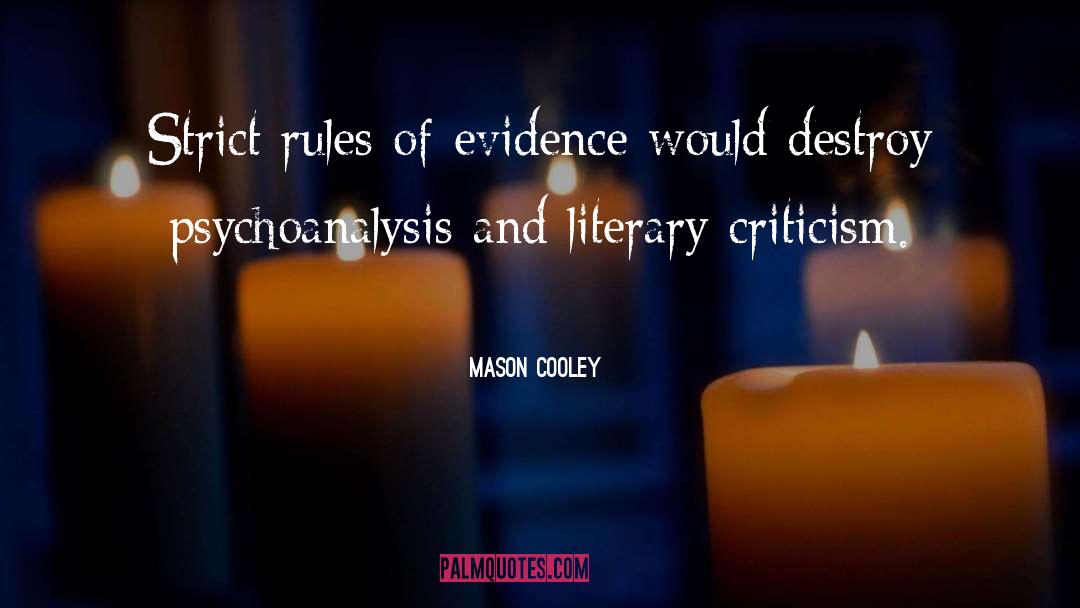
In general, I would think that at present prose writers are much in advance of the poets. In the old days, I read more poetry than prose, but now it is in prose where you find things being put together well, where there is great ambition, and equal talent. Poets have gotten so careless, it is a disgrace. You can't pick up a page. All the words slide off. ~ William H Gass
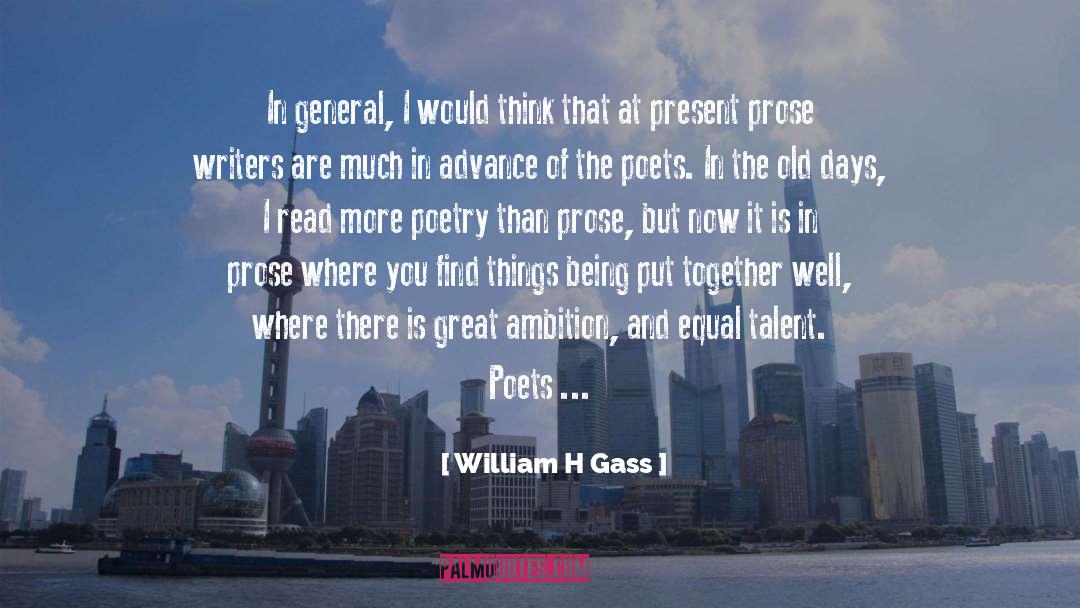
Algernon. The truth is rarely pure and never simple. Modern life would be very tedious if it were either, and modern literature a complete impossibility! Jack. That wouldn't be at all a bad thing. Algernon. Literary criticism is not your forte, my dear fellow. Don't try it. You should leave that to people who haven't been at a University. They do it so well in the daily papers. ~ Oscar Wilde
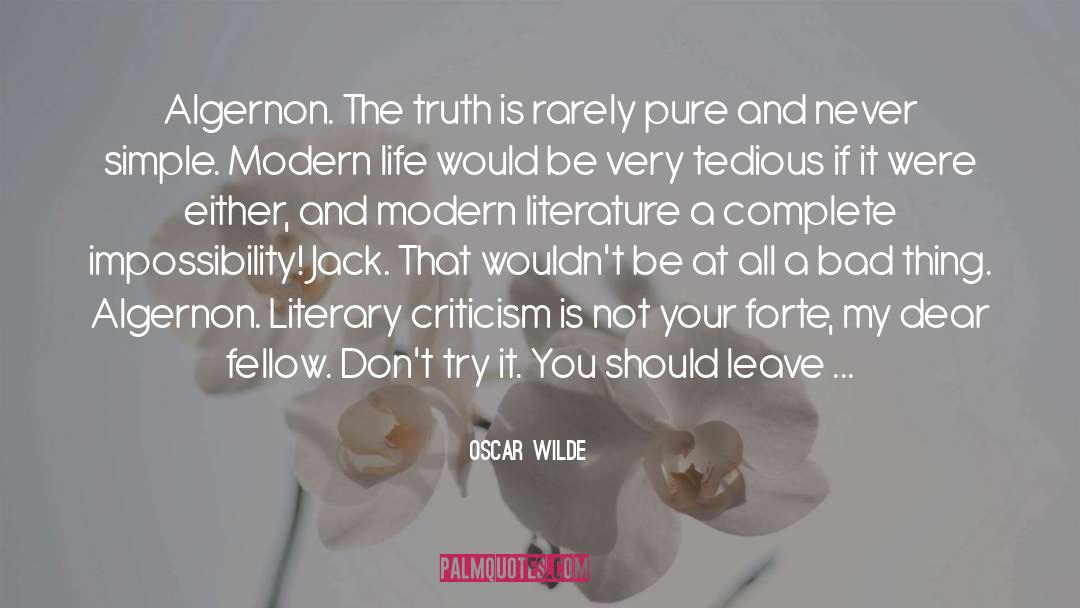
A book is a machine to think with, but it need not, therefore, usurp the functions either of the bellows or the locomotive. ~ Ivor A. Richards
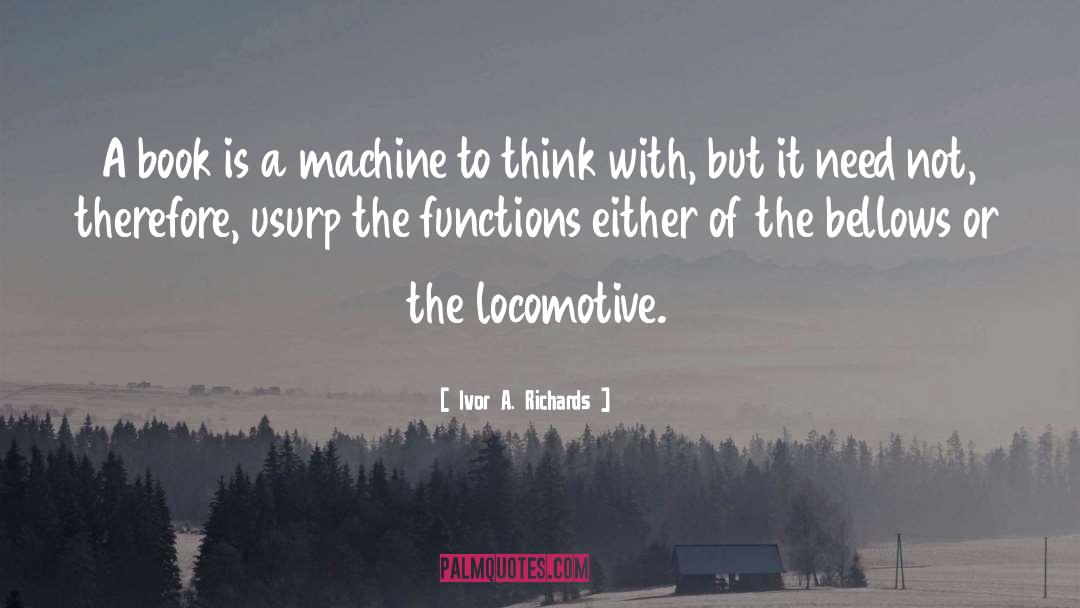
The stereotype of the supercrip, in the eyes of its critics, represents a sort of overachieving, overdetermined self-enfreakment that distracts from the lived daily reality of most disabled people. ~ Jose Alaniz
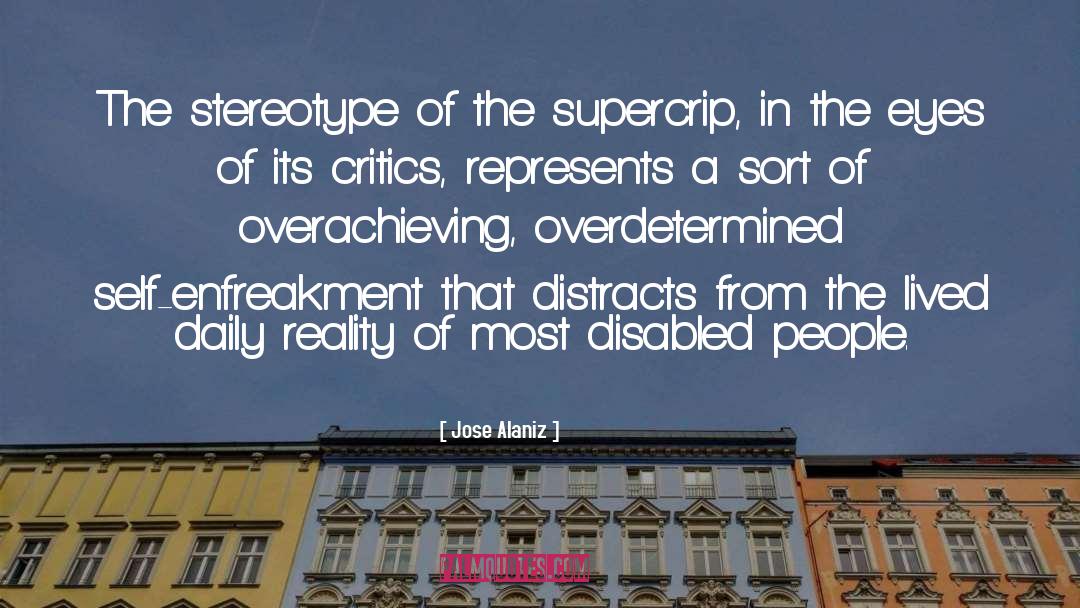
Thus, on the one hand, Spenser's thought is steeped in sensuous detail, so that for him there is no really abstract thinking; men, he thinks, 'should be satisfied with the use of these days, seeing all things accounted by their showes, and nothing esteemed of, that is not delightfull and pleasing to commune sense' ( Prefatory Letter). But on the other hand the details of the physical universe become translucent from the pulsing light of varied human experience which is seen behind it. His 'haunt and the main region of (his) song' is the inner life of man and it is described in the symbolism of human figures clothed in raiment iridescent with innumerable associations. His art is a development of the mediaeval. ~ Janet Spens
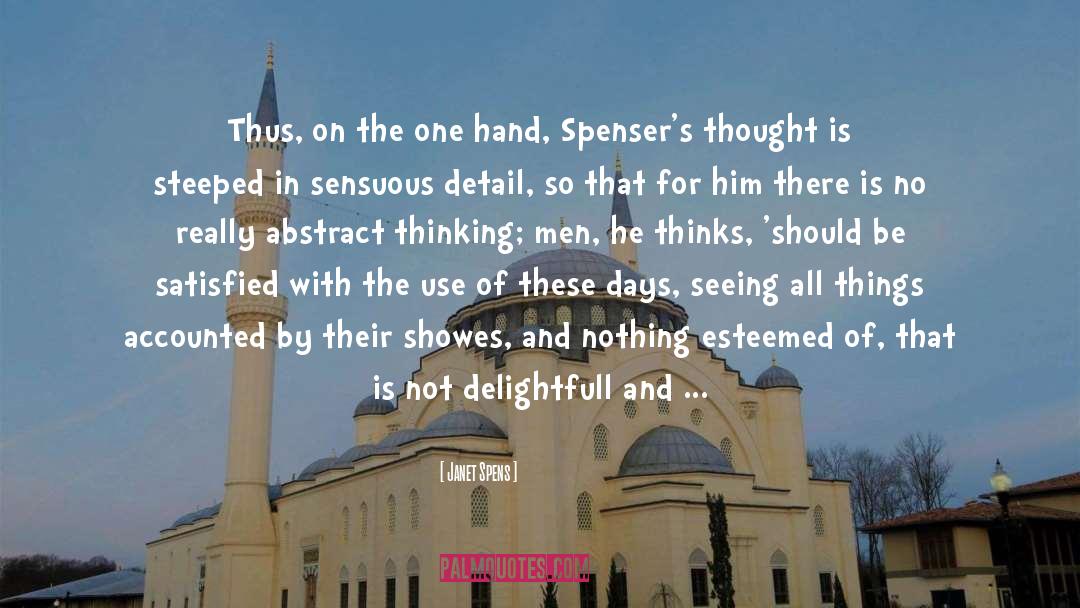
In serious Victorian fiction, as in Shakespearian tragedy, melodrama normally functions as metaphor. The author finds a vivid equivalent for a reality too elaborate or too extended to be briefly depicted. ~ Ian Gregor
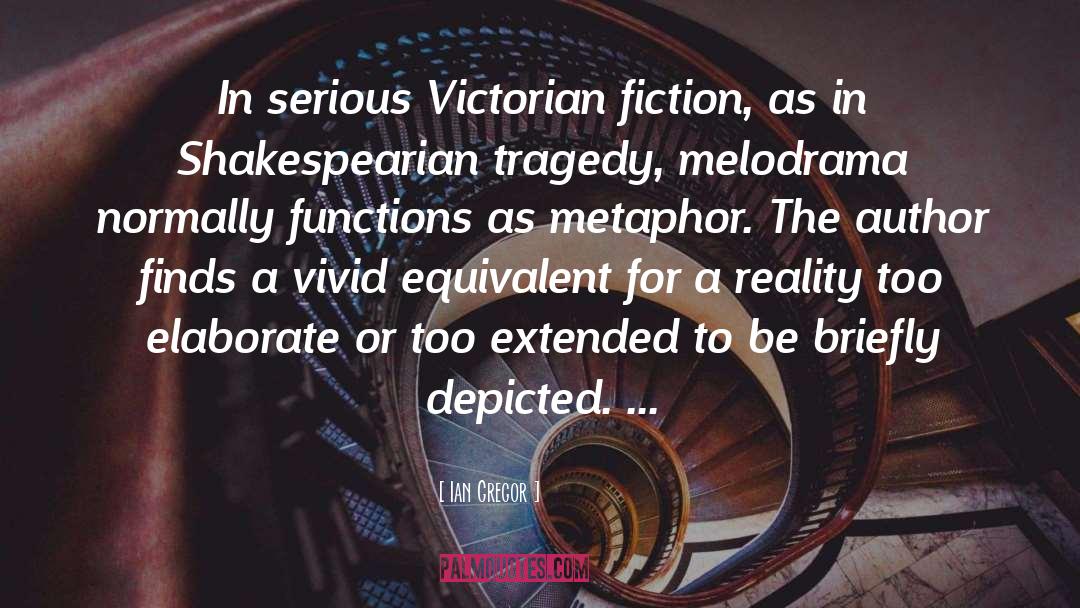
The novels of Daniel Defoe are fundamental to eighteenth-century ways of thinking. They range from the quasi-factual A Journal of the Plague Year, an almost journalistic (but fictional) account of London between 1664 and 1665 (when the author was a very young child), to Robinson Crusoe, one of the most enduring fables of Western culture. If the philosophy of the time asserted that life was, in Hobbes's words, 'solitary, poor, nasty, brutish, and short', novels showed ways of coping with 'brutish' reality (the plague; solitude on a desert island) and making the best of it. There was no questioning of authority as there had been throughout the Renaissance.
Instead, there was an interest in establishing and accepting authority, and in the ways of 'society' as a newly ordered whole.
Thus, Defoe's best-known heroine, Moll Flanders, can titillate her readers with her first-person narration of a dissolute life as thief, prostitute, and incestuous wife, all the time telling her story from the vantage point of one who has been accepted back into society and improved her behaviour. ~ Ronald Carter
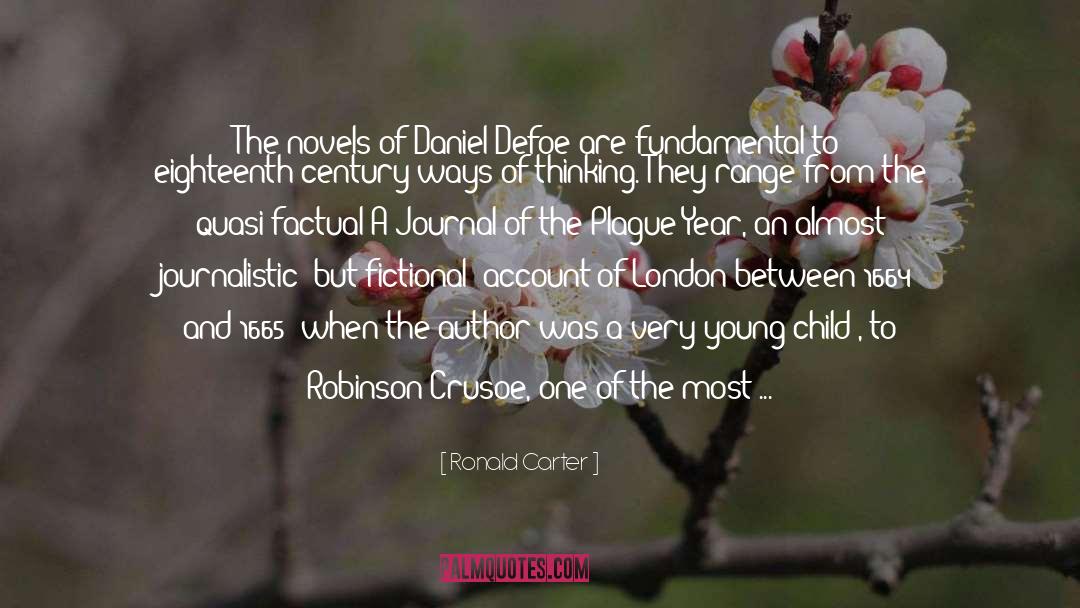
When appearance and reality coincide, philosophy and literary criticism find themselves with nothing to say. ~ Mason Cooley
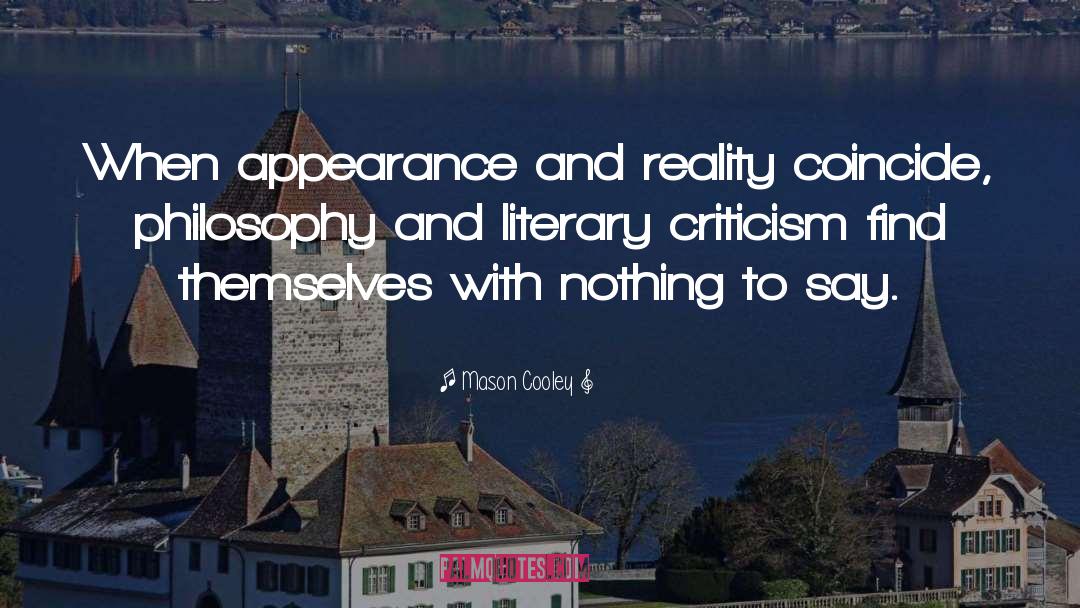
The most celebrated American author of the twentieth century, Bellow objected during the first part of his career to being designated a "Jewish writer, " but it was he who demonstrated how a Jewish voice could speak for an integrated America. With Bellow, Jewishness moved in from the immigrant margins to become a new form of American regionalism. Yet he did not have to write about Jews in order to write as a Jew. Bellow's curious mingling of laughter and trembling is particularly manifest in his novel Henderson the Rain King, that follows an archetypal Protestant American into mythic Africa. Bellow not only influenced and paved the way for other American Jewish writers like Philip Roth and Cynthia Ozick, but naturalized the immigrant voice: the American novel came to seem freshly authentic when it spoke in the voice of one of its discernible minorities. ~ Hana Wirth-Nesher

The fairy or fantastic world replaces the classical Hades (or Hell) in Sir Orfeo, and Sir Gawain and the Green Knight takes this fantasy element to new heights. Sir Gawain is one of the Knights of the Round Table, the followers of King Arthur, who is so much of a presence in English history, myth and literature. ~ Ronald Carter
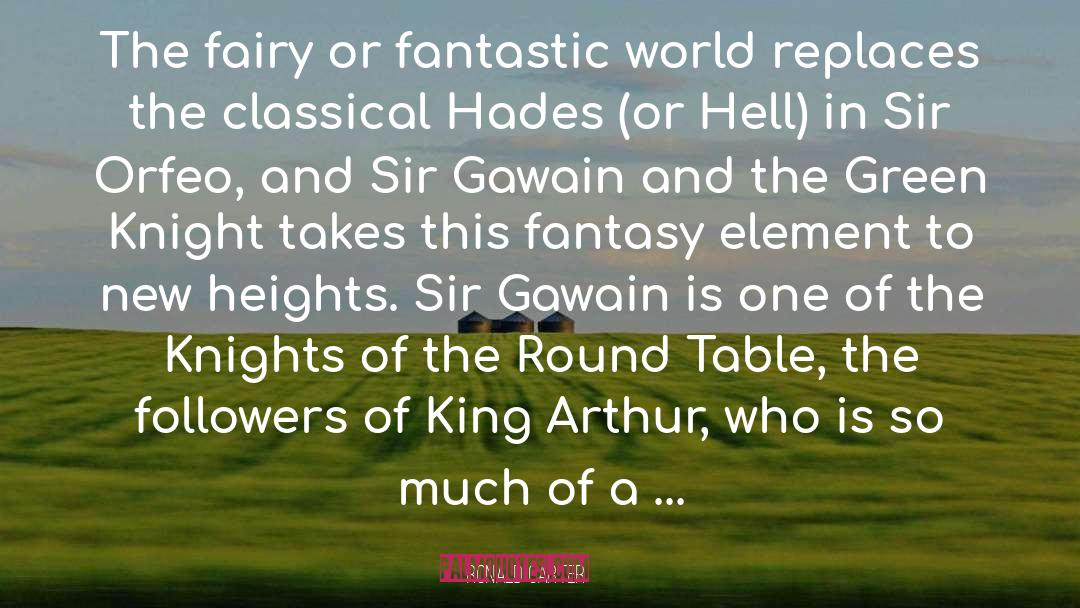
Rabbit and Owl are aging bachelors whose respective megalomania and fussiness are tempered only by their mutual friendship, of which the less said, the better. ~ Frederick C. Crews
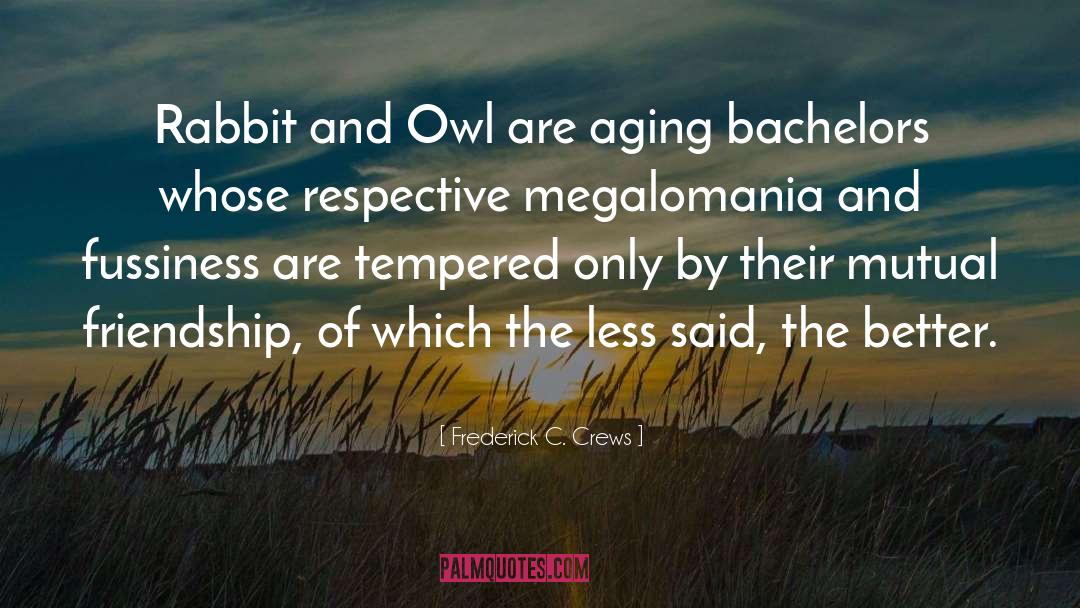
A bad short story or novel or poem leaves one comparatively calm because it does not exist, unless it gets a fake prestige throughbeing mistaken for good work. It is essentially negative, it is something that has not come through. But over bad criticism one has a sense of real calamity. ~ Rebecca West
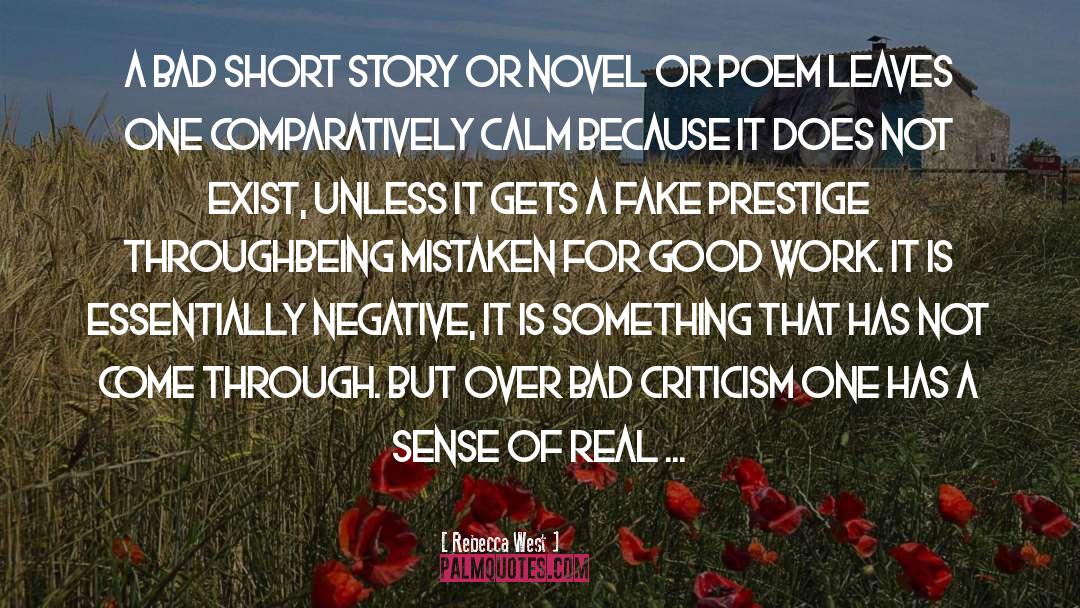
Eliot's understanding of poetic epistemology is a version of Bradley's theory, outlined in our second chapter, that knowing involves immediate, relational, and transcendent stages or levels. The poetic mind, like the ordinary mind, has at least two types of experience: The first consists largely of feeling (falling in love, smelling the cooking, hearing the noise of the typewriter), the second largely of thought (reading Spinoza). The first type of experience is sensuous, and it is also to a great extent monistic or immediate, for it does not require mediation through the mind; it exists before intellectual analysis, before the falling apart of experience into experiencer and experienced. The second type of experience, in contrast, is intellectual (to be known at all, it must be mediated through the mind) and sharply dualistic, in that it involves a breaking down of experience into subject and object. In the mind of the ordinary person, these two types of experience are and remain disparate. In the mind of the poet, these disparate experiences are somehow transcended and amalgamated into a new whole, a whole beyond and yet including subject and object, mind and matter. Eliot illustrates his explanation of poetic epistemology by saying that John Donne did not simply feel his feelings and think his thoughts; he felt his thoughts and thought his feelings. He was able to "feel his thought as immediately as the odour of a rose." Immediately" in this famous simile is a technical te ~ Jewel Spears Brooker
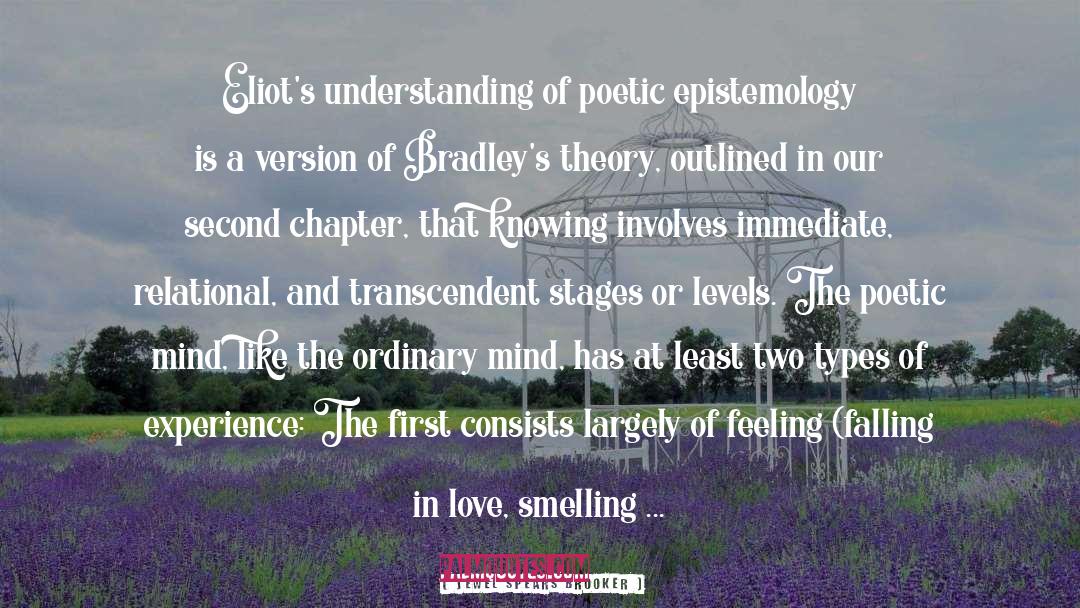
As Solomon himself had remarked, 'We can be sure of talent, we can only pray for genius.' But it was a reasonable hope that in such concentrated society some interesting reactions would take place.
Few artists thrive in solitude and nothing is more stimulating than the conflict of minds with similar interests. So far, the conflict had produced worthwhile results in sculpture, music, literary criticism and film making. It was still too early to see if the group working on historical research would fulfil the hopes of its instigators, who were frankly hoping to restore mankind's pride in its own achievements.
Painting still languished which supported the views of those who considered that static, two dimensional forms of art had no further possibilities. It was noticeable, though a satisfactory explanation for this had not yet been produced that time played an essential part in the colony's achievements. ~ Arthur C. Clarke
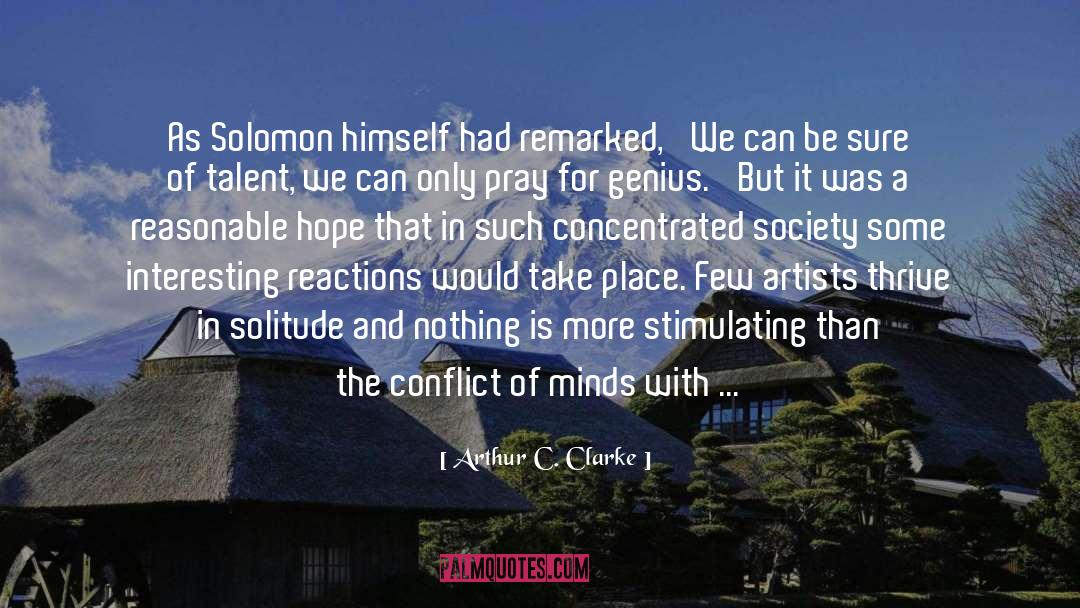
Most critics agree with the seventeenth-century printer who gave them to the world, that the Mutabilitie Cantos seem to be part of some following book of The Faerie Queene. ~ Janet Spens
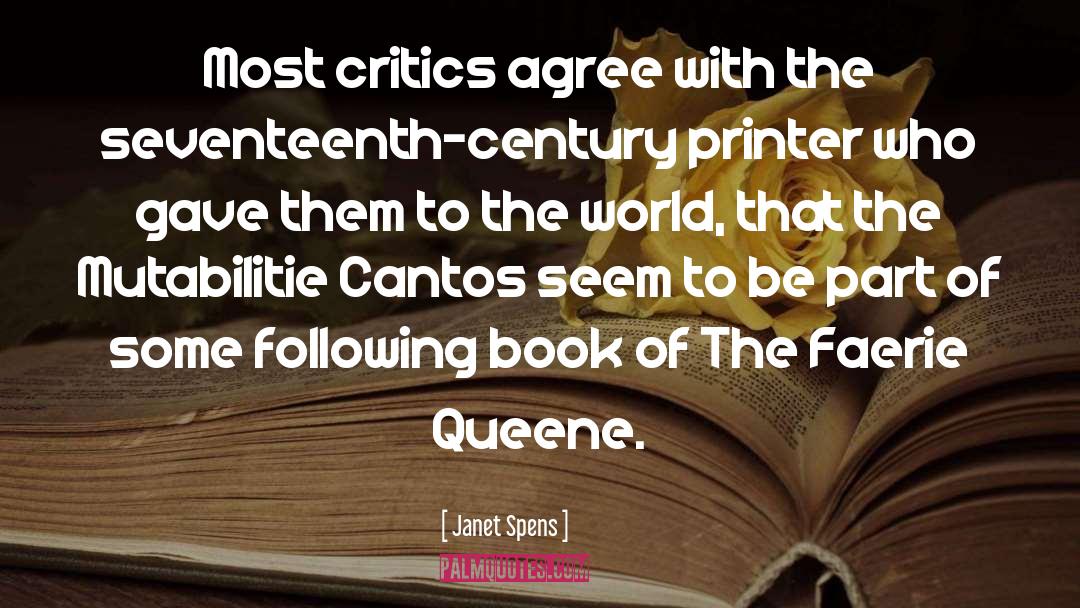
I'm never a fan of the sociopathic kind of reviewing, people who are sort of self-immolating and have social problems or whatever, and let it out in literary-criticism form. I just feel like book reviewing should be respectful and calm and not filled with bile. ~ Dave Eggers
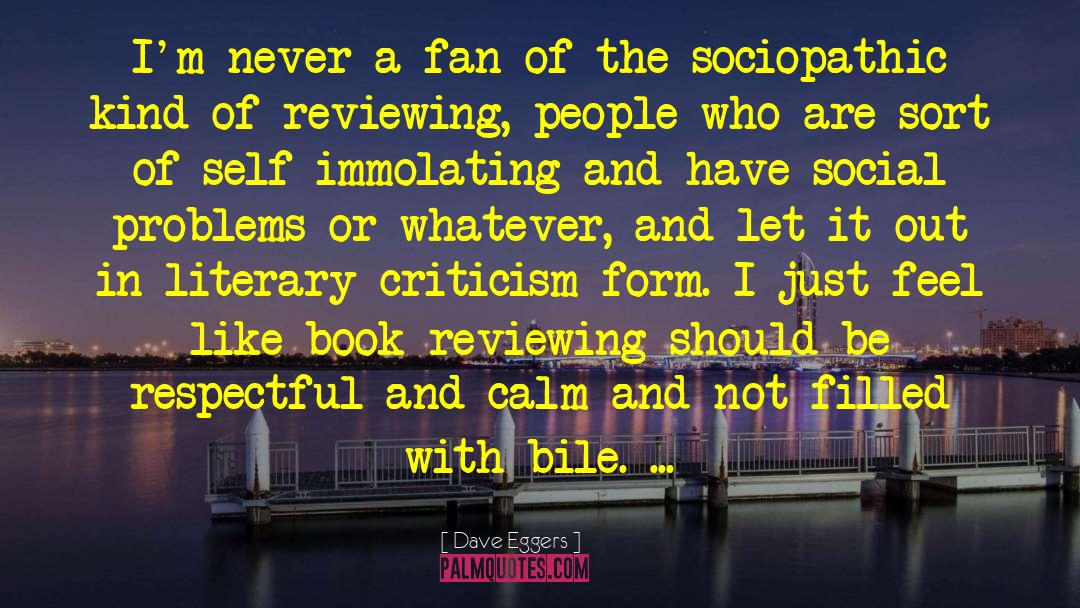
Thank you for sending me a copy of your book. I'll waste no time reading it. ~ Moses Hadas
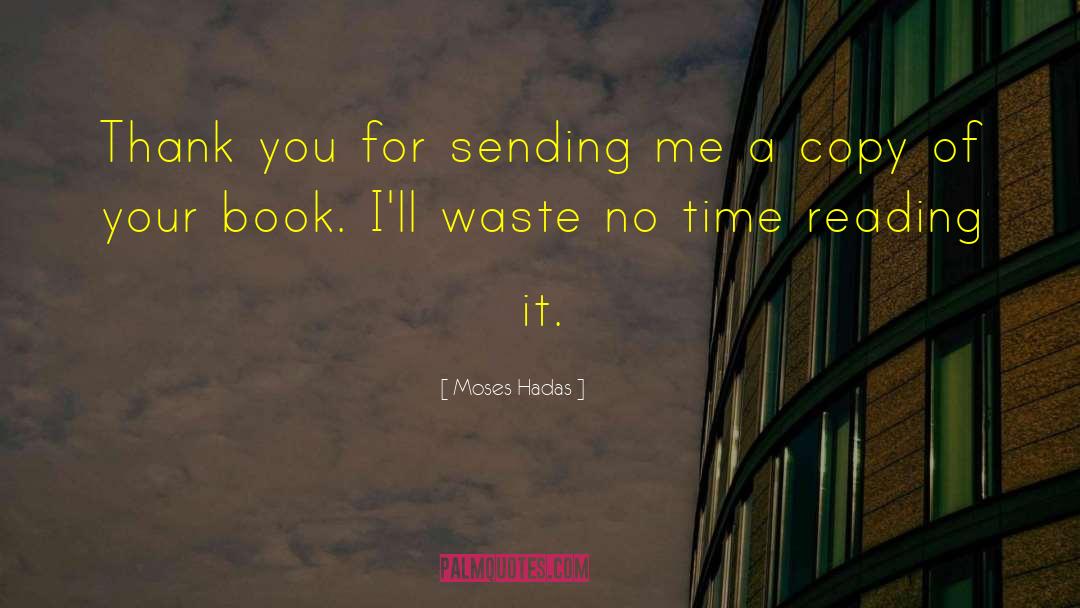
The ones that landed near the bathroom are Bad Tolkien imitations or transcripts of a D&D adventure; bad Herbert, Heinlein, and Asimov are below the television; and these on the bed are the ones whose authors I want to hunt down personally and slap. ~ Sharyn McCrumb
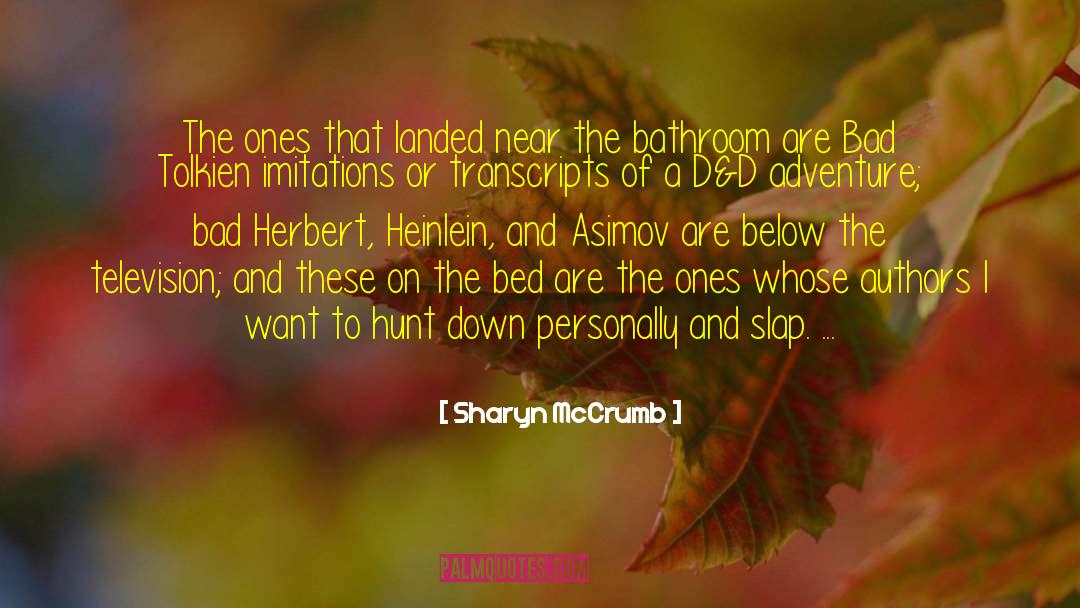
What Kant took to be the necessary schemata of reality,' says a modern Freudian, 'are really only the necessary schemata of repression.' And an experimental psychologist adds that 'a sense of time can only exist where there is submission to reality.' To see everything as out of mere succession is to behave like a man drugged or insane. Literature and history, as we know them, are not like that; they must submit, be repressed. It is characteristic of the stage we are now at, I think, that the question of how far this submission ought to go--or, to put it the other way, how far one may cultivate fictional patterns or paradigms--is one which is debated, under various forms, by existentialist philosophers, by novelists and anti-novelists, by all who condemn the myths of historiography. It is a debate of fundamental interest, I think, and I shall discuss it in my fifth talk.
Certainly, it seems, there must, even when we have achieved a modern degree of clerical scepticism, be some submission to the fictive patterns. For one thing, a systematic submission of this kind is almost another way of describing what we call 'form.' 'An inter-connexion of parts all mutually implied'; a duration (rather than a space) organizing the moment in terms of the end, giving meaning to the interval between tick and tock because we humanly do not want it to be an indeterminate interval between the tick of birth and the tock of death. That is a way of speaking in temporal terms of literary f ~ Frank Kermode
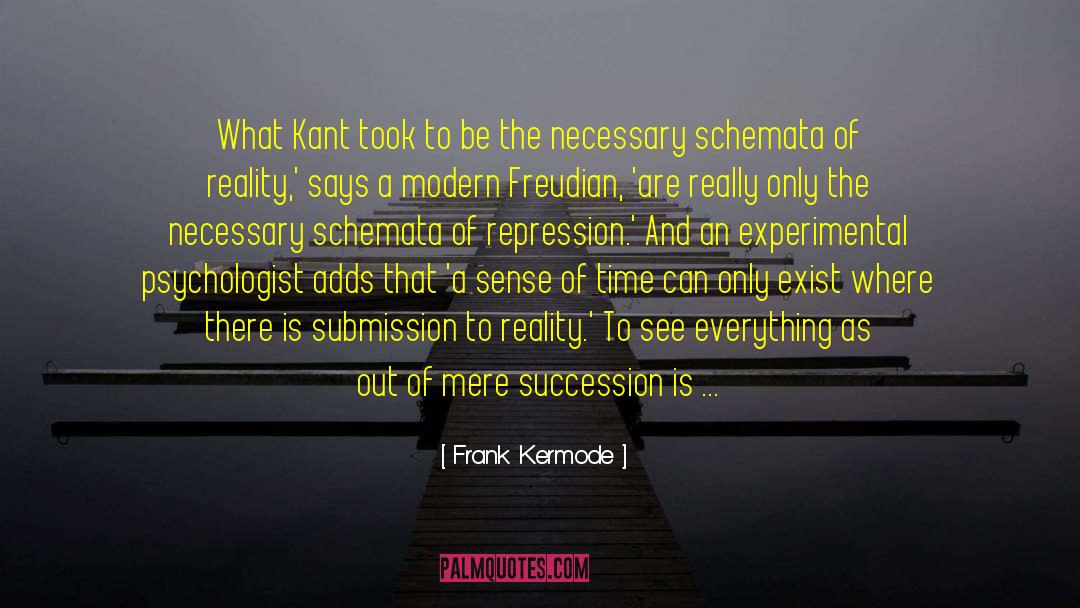
Too often critics have taken as the sole and crucial matter of fantasy the preoccupation of Tolkien, the quest for a remedy to the world's pain that will not destroy innocence with the temptations of power. Impressive and popular as The Lord of the Rings is, it manages its landscapes, vast green-leaved or slag-heaped vistas of pathetic fallacy and implied morality, far better than its people; it leaves the impression that important issues have been turned by sleight of hand and Georgian prettiness into questions of good and bad practice in urban planning and rural conservation. After all, the Grail is only worth seeking if you can believe in a god who put it there to help those who help themselves, in an Avalon to which burned-out heroes can retire with dignity. There is another great Matter for fantasy, one of more obvious resonance for the creative artist - the reconciliation of faerie and humanity; of the passion, power and wit of a world of sensuality, magic, and danger with the requirements of kind and ordinary life. ~ Roz Kaveney
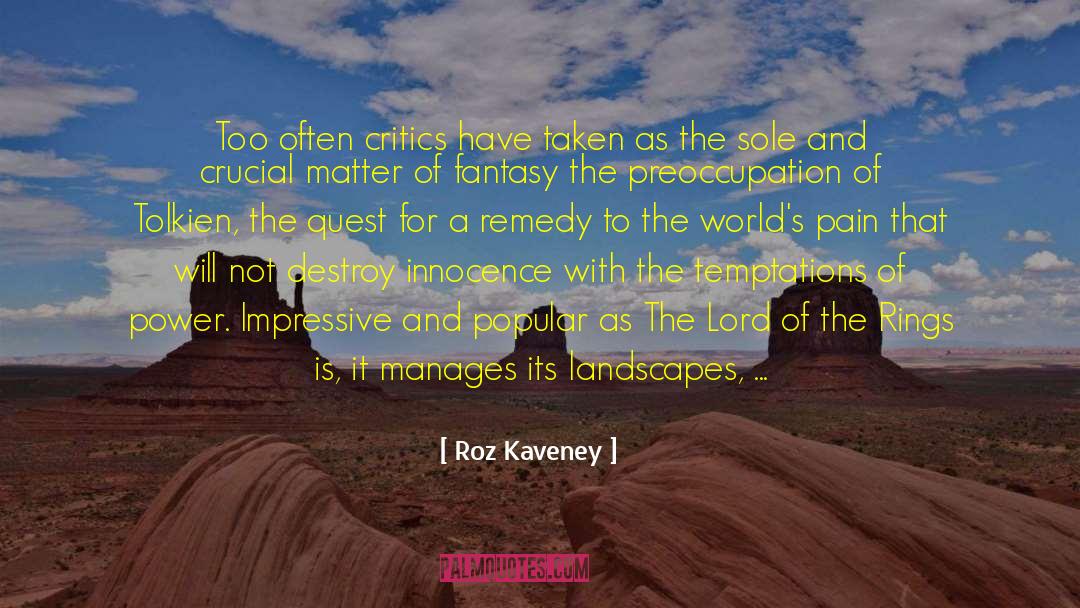
Critics in New York are made by their dislikes, not by their enthusiasms. ~ Irwin Shaw

In reality the puritans and the humanists were quite often the same people. ~ C.S. Lewis
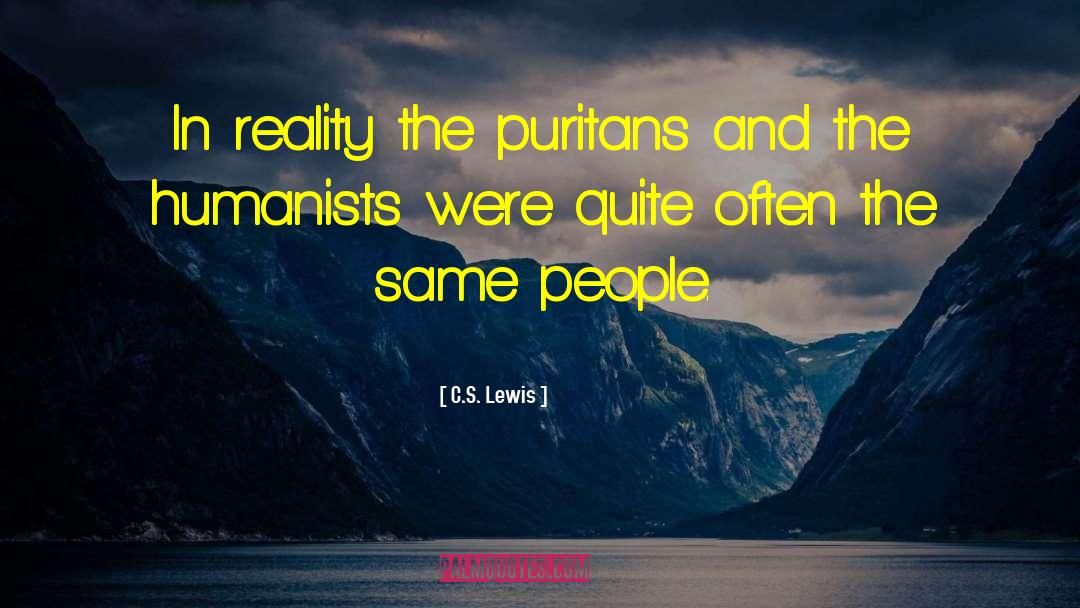
Literary criticism can be no more than a reasoned account of the feeling produced upon the critic by the book he is criticizing. Criticism can never be a science: it is, in the first place, much too personal, and in the second, it is concerned with values that science ignores. The touchstone is emotion, not reason. We judge a work of art by its effect on our sincere and vital emotion, and nothing else. All the critical twiddle-twaddle about style and form, all this pseudoscientific classifying and analysing of books in an imitation-botanical fashion, is mere impertinence and mostly dull jargon. ~ D.H. Lawrence
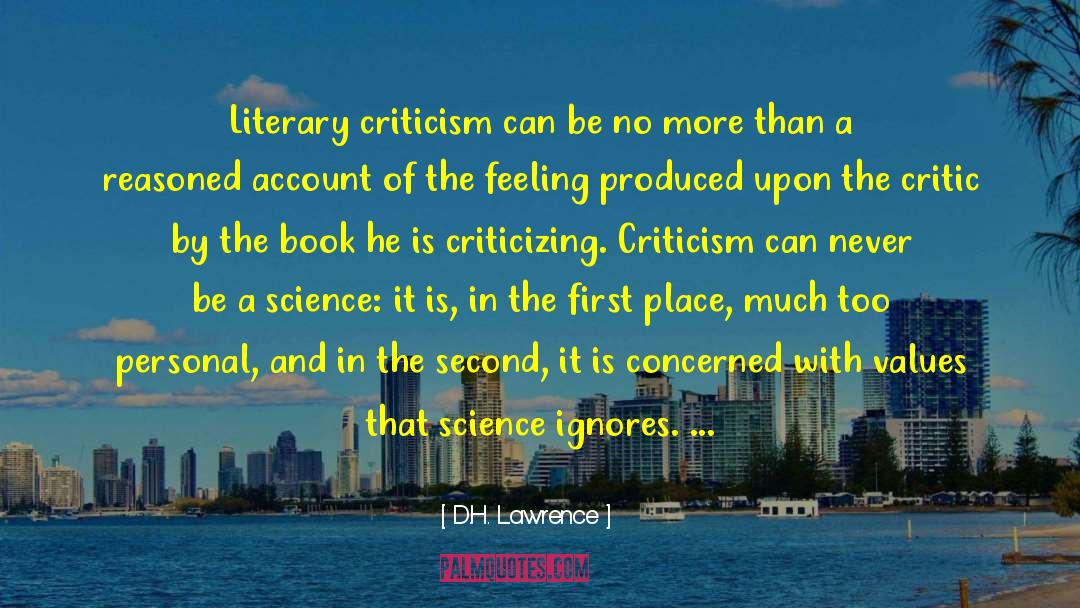
What are American dry-goods? asked the duchess, raising her large hands in wonder and accentuating the verb.
American novels, answered Lord Henry. ~ Oscar Wilde
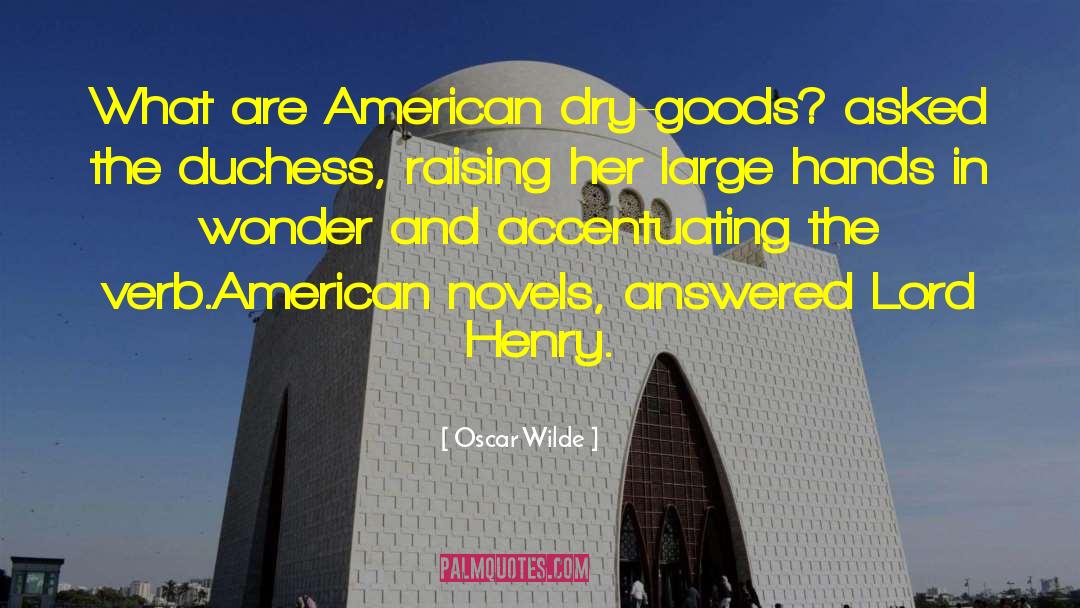
Starting with the hypothesis that all the characters in Women in Love suffer from acute dissociation of sensibility, it becomes clear that psychological reintegration is no longer possible for them, and complete divorce between reason and emotion, mind and body, is imminent. As a result, the characters become mental or physical in basic nature and are symbolically presented accordingly. ~ John E. Stoll
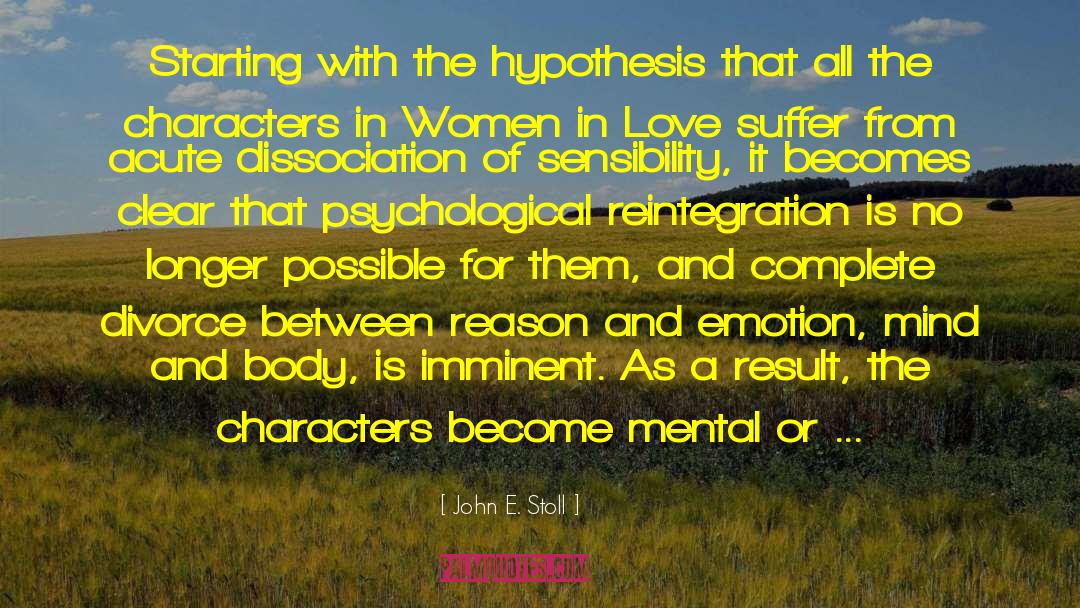
The values ascribed to the Indian will depend on what the white writer feels about Nature, and America has always had mixed feelings about that. At one end of the spectrum is Thoreau, wishing to immerse himself in swamps for the positive vibrations; at the other end is Benjamin Franklin, who didn't like Nature. [p.91] ~ Margaret Atwood

Literature has become merely a tool for culture studies. ~ Anuradha Bhattacharyya
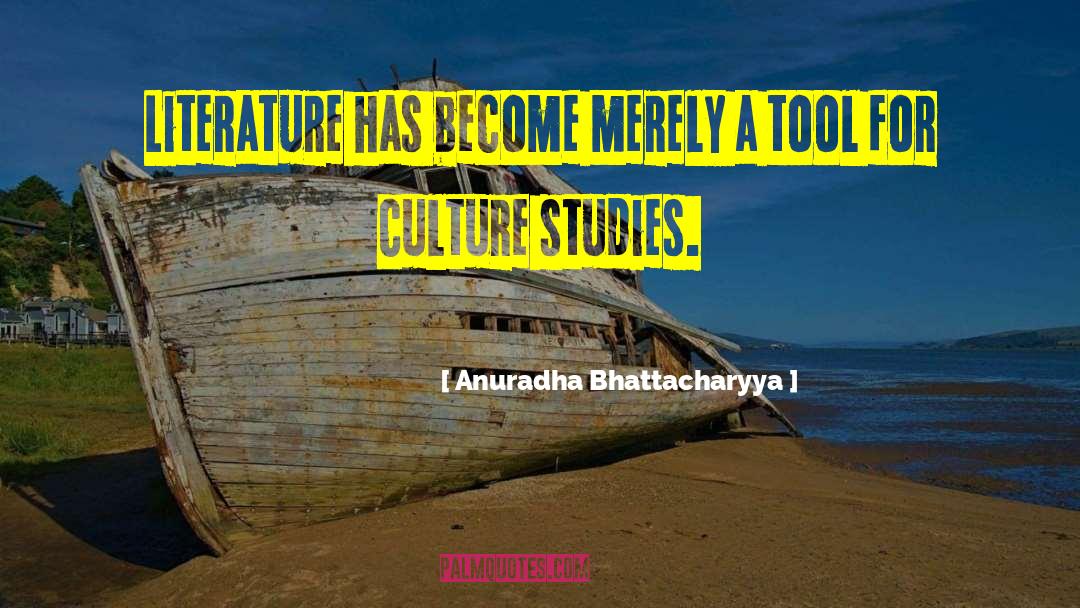
The loudness of tone in Jane Eyre is undoubtedly effective in communicating tension and frustration, but the style does of course have its related limitations. It precludes the use of the small suggestive detail or the quiet but telling observation that Mrs Gaskell and George Eliot are so good at. In such a fortissimo performance
as this, the pianissimo gets drowned out, or noted only as an incongruity (which helps to account for the book's moments of unintended comic bathos). Again, it makes the whole question of modulation of tone a difficult one,6 and it is also hard to manage irony elegantly, as the Brocklehurst and Ingram portraits show.
There is unconscious ambiguity but little deliberate irony in Jane Eyre. Hence the remarkable unity of critical interpretation of the book - the reader knows all too well what he is meant to think about the heroine and the subsidiary characters. The novel does not merely request our judicious sympathy for the heroine, it demands
that we see with her eyes, think in her terms, and hate her enemies, not just intermittently (as in David Copperfield) but in toto. It was, incidentally, because James Joyce recognised the similar tendency of Stephen Hero that he reshaped his autobiographical material as A Portrait of the Artist as a Young Man, retaining the 'first-person effect' but building in stylistic and structural
irony that would guard against the appearance of wholesale authorial endorsement of Stephen. ~ Ian Gregor
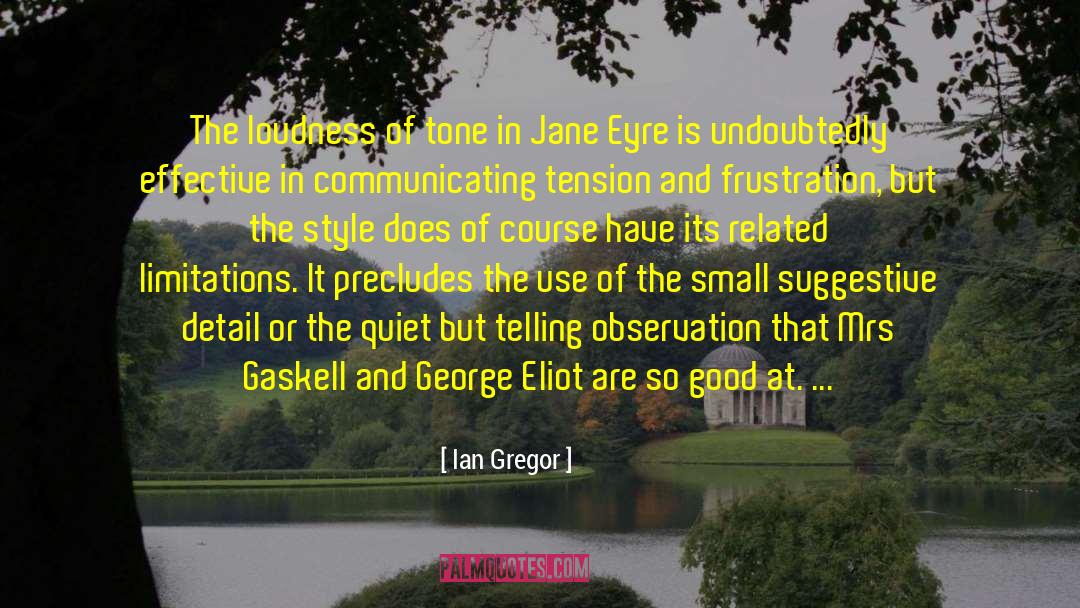
For more than half a century I have tried to confront greatness directly, hardly a fashionable stance, but I see no other justification for literary criticism in the shadows of our Evening Land. Over time the strong poets settle these matters for themselves, and precursors remain alive in their progeny. Readers in our flooded landscape use their own perceptiveness. But an advance can be of some help. If you believe that the canon in time will select itself, you still can follow a critical impulse to hasten the process, as I did with the later Stevens, Ashbury, and, more recently, Henri Cole. ~ Harold Bloom
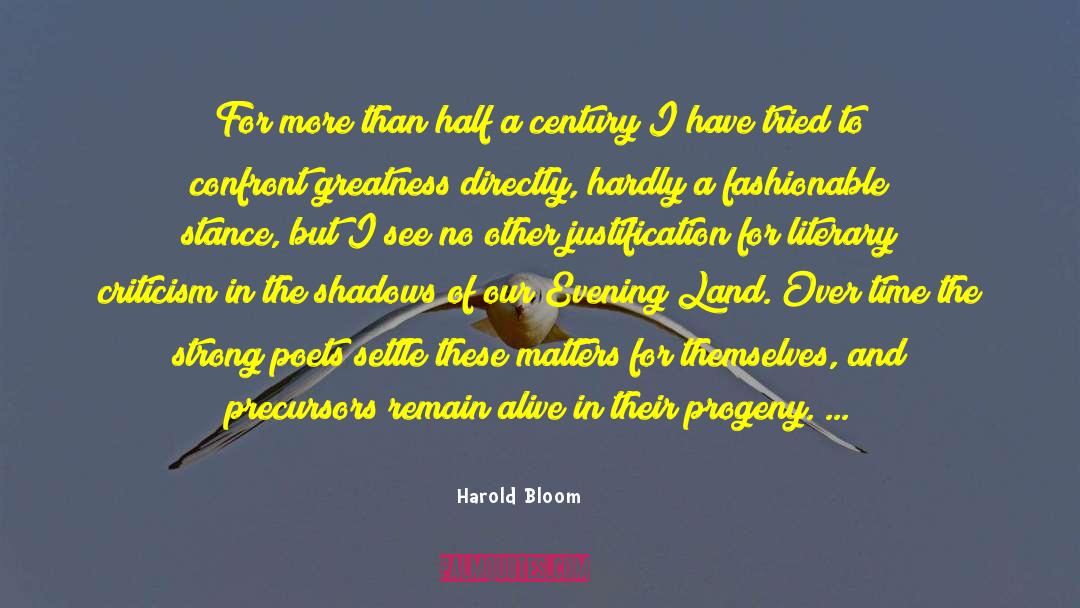
I want to give just a slight indication of the influence the book has had. I knew that George Orwell, in his second novel, A Clergyman's Daughter , published in 1935, had borrowed from Joyce for his nighttime scene in Trafalgar Square, where Deafie and Charlie and Snouter and Mr. Tallboys and The Kike and Mrs. Bendigo and the rest of the bums and losers keep up a barrage of song snatches, fractured prayers, curses, and crackpot reminiscences. But only on my most recent reading of Ulysses did I discover, in the middle of the long and intricate mock-Shakespeare scene at the National Library, the line 'Go to! You spent most of it in Georgina Johnson's bed, clergyman's daughter.' So now I think Orwell quarried his title from there, too. ~ Christopher Hitchens
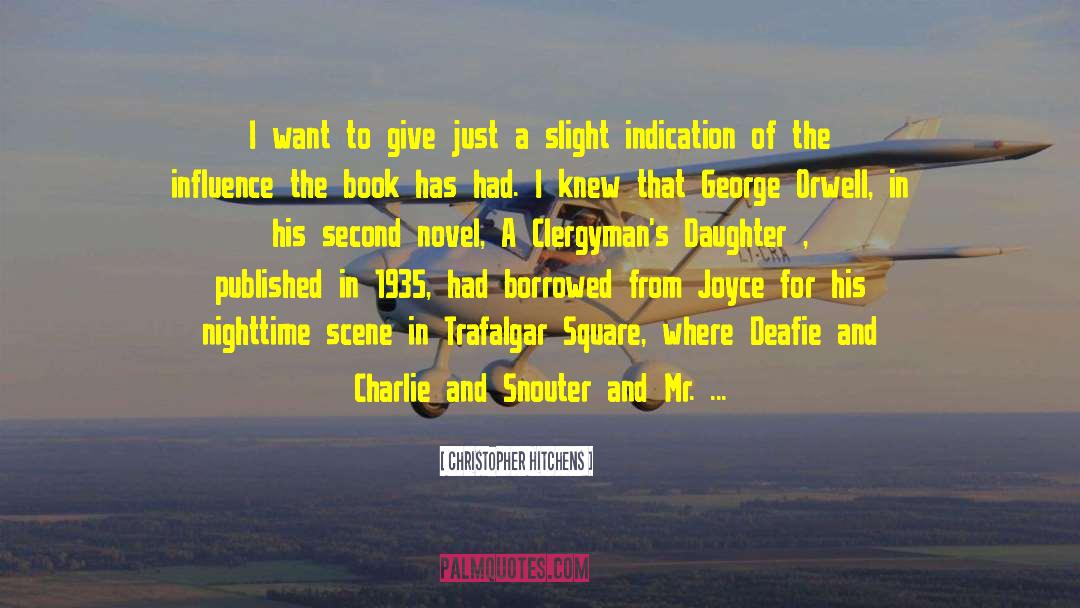
I often have the feeling that even at the best of times literary criticism is fraudulent, since in the absence of any accepted standards whatever
any external reference which can give meaning to the statement that such and such a book is "good" or "bad"
every literary judgement consists in trumping up a set of rules to justify an instinctive preference. One's real reaction to a book, when one has a reaction at all, is usually "I like this book" or "I don't like it" and what follows is a rationalisation. ~ George Orwell
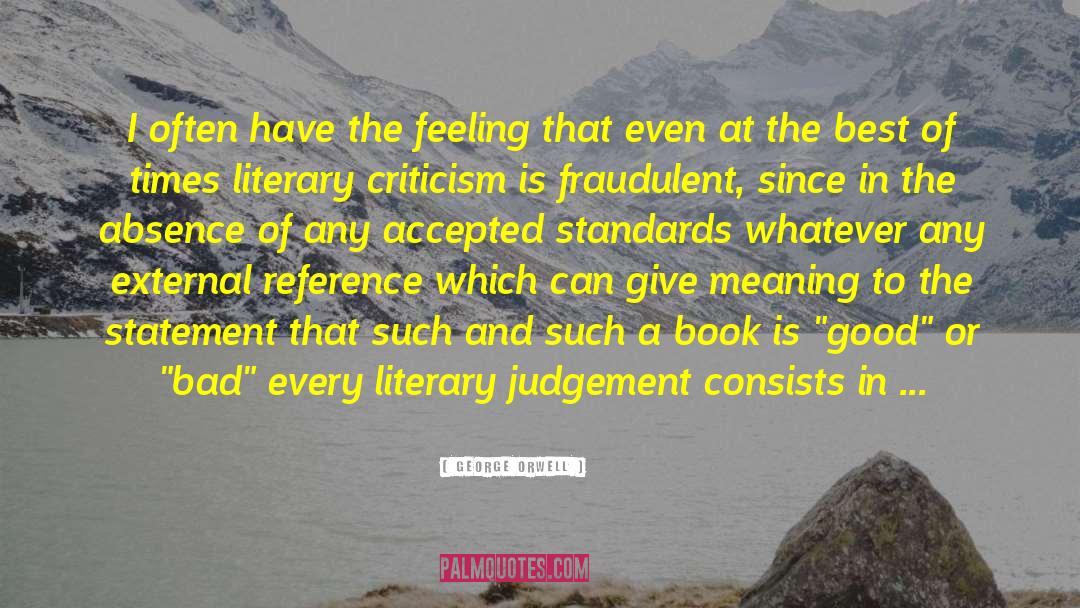
If Gissing is less compassionately observant than Mrs Gaskell, less overtly polemical than Kingsley, still The Nether World and Demos would be sympathetically endorsed by either of them, or by their typical readers. Yet Gissing does introduce an important new element, and one that remains significant. He has often been called 'the spokesman of despair,' and this is true in both meanings of the phrase. Like Kingsley and Mrs Gaskell, he writes to describe the true conditions of the poor, and to protest against those brute forces of society which fill with wreck the abysses of the nether world. Yet he is also the spokesman of another kind of despair: the despair born of social and political disillusion. In this he is a figure exactly like Orwell in our own day, and for much the same reason. Whether one calls this honesty or not will depend on experience. ~ Raymond Williams
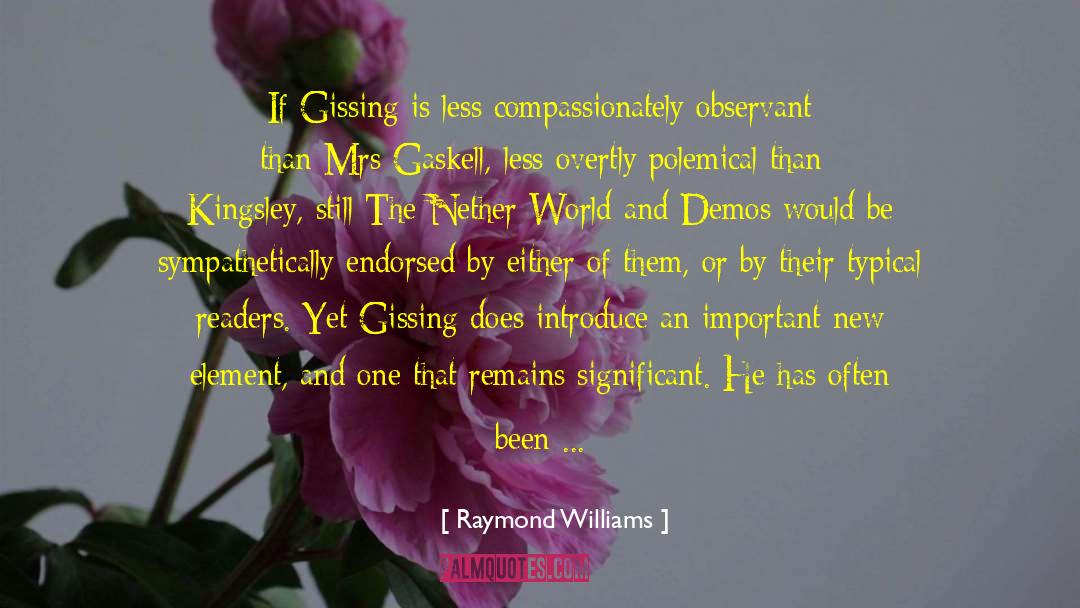
Write it as easy as you think about the difficulty ~ Cucuk Espe
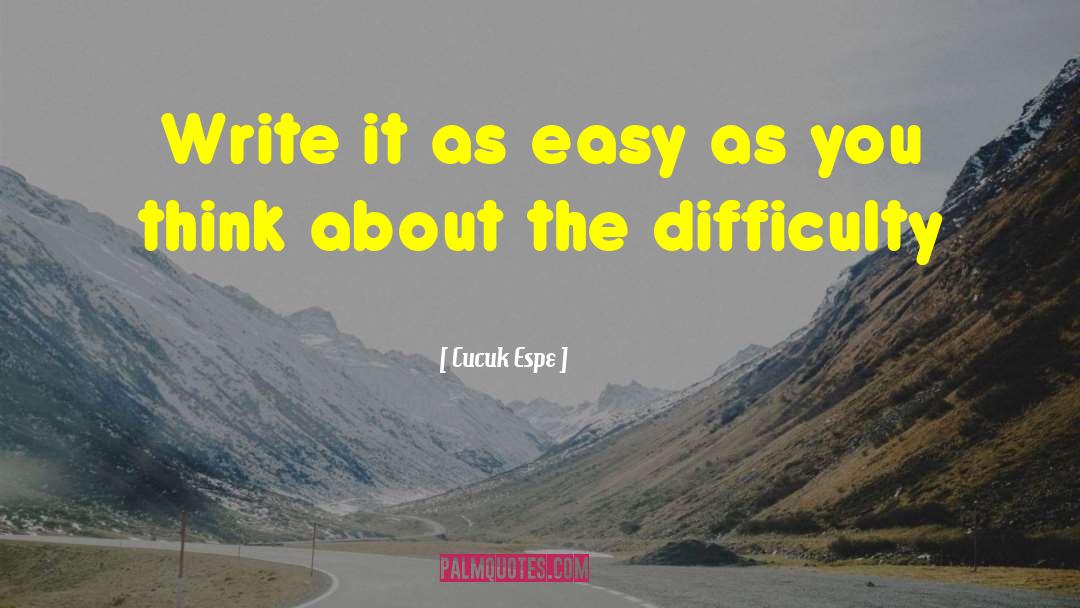
There is some relationship between the hunger for truth and the search for the right words. This struggle may be ultimately indefinable and even undecidable, but one damn well knows it when one sees it. ~ Christopher Hitchens
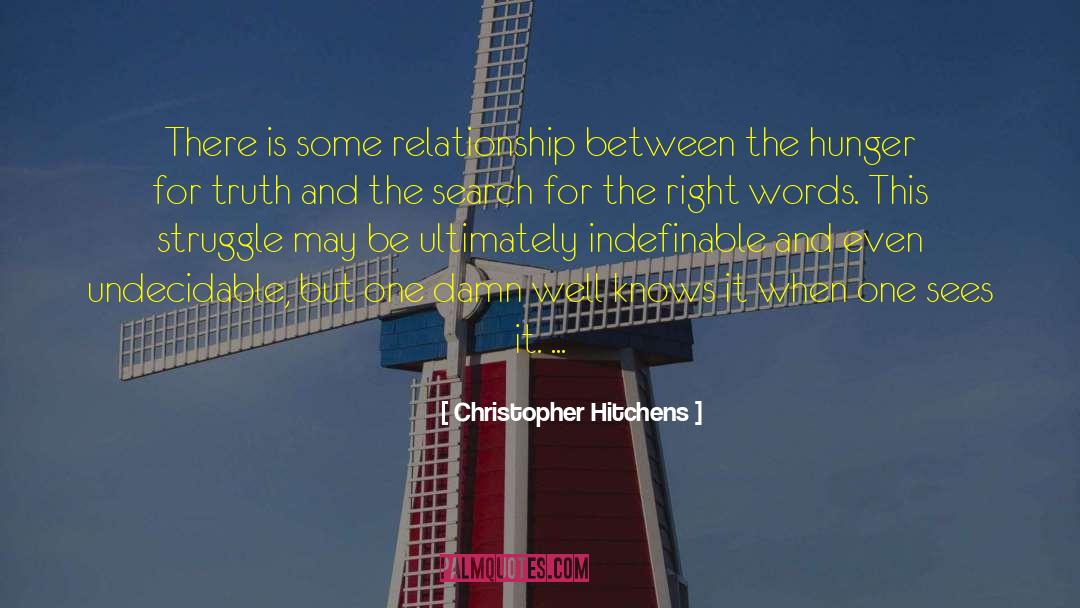
In 1922 Woolf met the writer Vita Sackville-West, who was to join Vanessa Bell and Leonard Woolf as the most significant people in her life. ~ Jane Goldman

It doesn't matter whether a sequence of words is called a history or a story: that is, whether it is intended to follow a sequence of actual events or not. As far as its verbal shape is concerned, it will be equally mythical in either case. But we notice that any emphasis on shape or structure or pattern or form always throws a verbal narrative in the direction we call mythical rather than historical.(p.21) ~ Northrop Frye
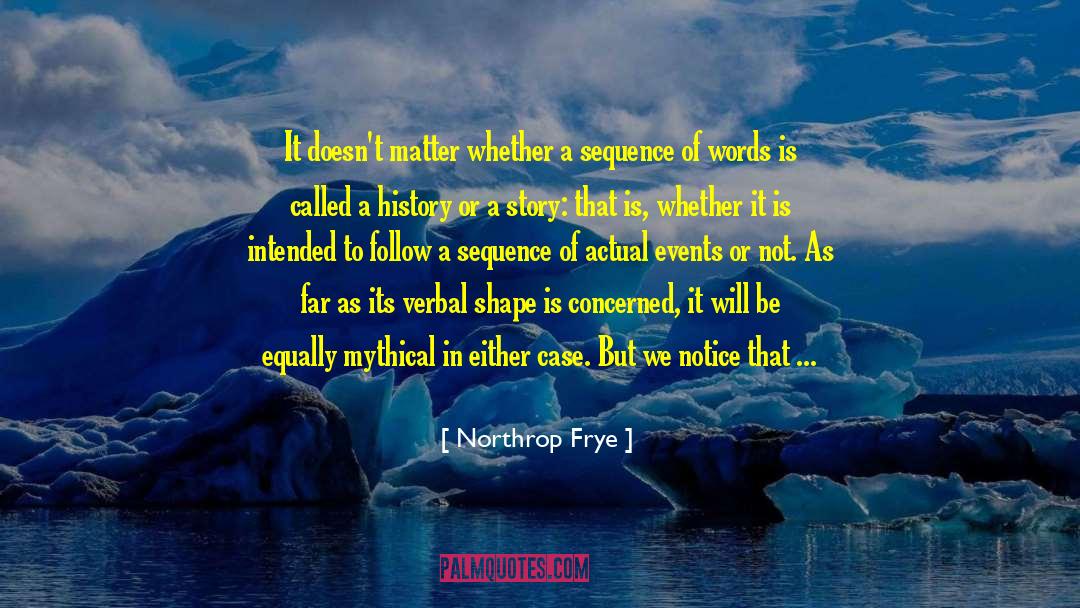
However, Hardy's relationship with nature is a dialectical one. While he indicates that he recognizes how human perception shapes nature, he nevertheless accepts nature as possessed of its own agency, as working through its cycle regardless of human perception, understanding, or attempted control. In essence, it claims a power apart from that with which humans may have imbued it. Even when humanity has lost faith in the possibility of renewal through nature, nature as Hardy describes it fights back, attempting to force human consciousness to acknowledge her power, her ability to transform life. ~ Shirley A. Stave
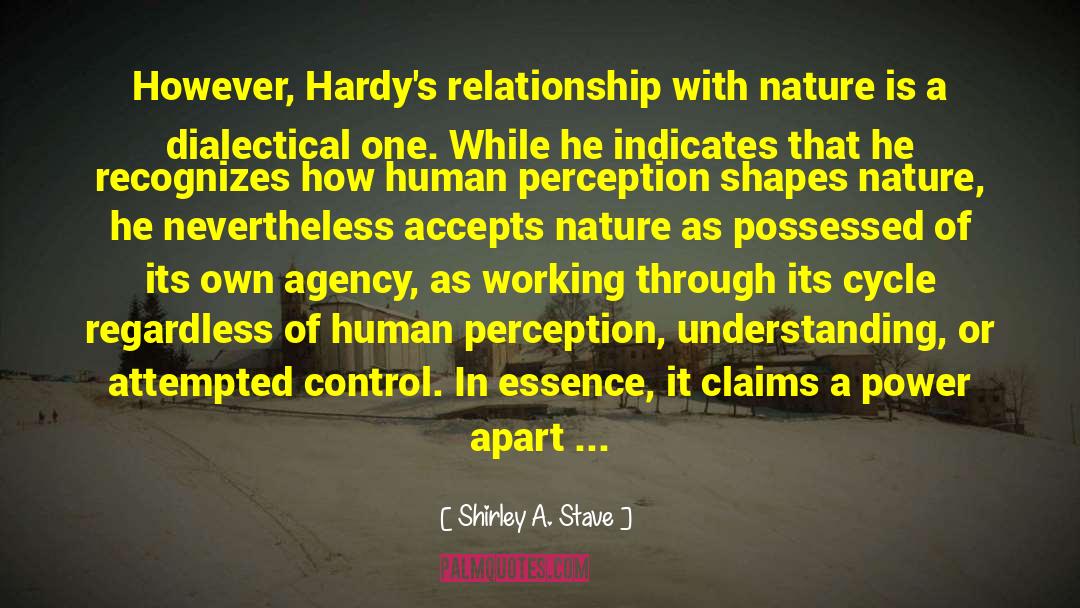
In certain kinds of writing, particularly in art criticism and literary criticism, it is normal to come across long passages which are almost completely lacking in meaning. ~ George Orwell
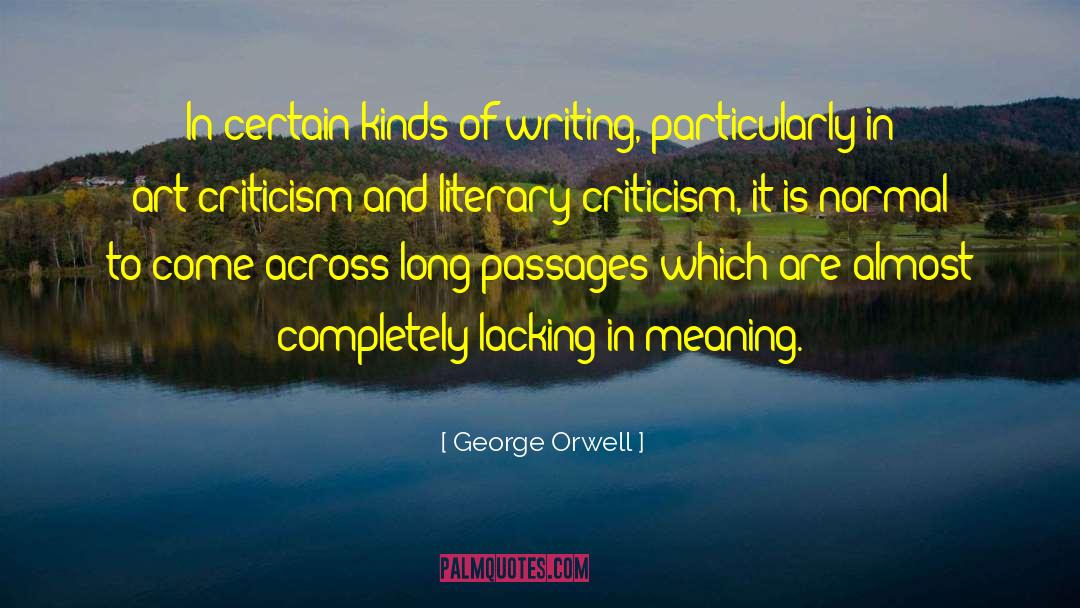
Reading Mrs Gaskell's Life of Charlotte Brontë after Jane Eyre is a curious experience. The subject of the biography is recognisably the same person who wrote the novel, but the effect of the two books is utterly different. The biography is indeed depressing and painful reading. It captures better, I believe, than any any
subsequent biography the introverted and puritan pessimist side of Charlotte Brontë, and conveys the real dreariness of the world of privation, critical discouragement and limited opportunity that
so often made her complain in her letters that she felt marked out for suffering.
Jane Eyre, on the other hand, is exhilarating reading, partly because the reader, far from simply pitying the heroine, is struck by her resilience, and partly because the novel achieves such an imaginative transmutation of the drab. Unlike that of Jane Austen's Fanny Price or Dickens's Arthur Clennam or John Harmon, Jane
Eyre's response to suffering is never less than energetic. The reader is torn between exasperation at the way she mistakes her resentments and prejudices for fair moral judgements, and admiration at the way she fights back. Matthew Arnold, seeking 'sweetness and light' was repelled by the 'hunger, rebellion and rage' that he
identified as the keynotes of the novel. One can see why, and yet feel that these have a more positive effect than his phrase allows. The heroine is trying to hold on to her sense of self in a world that gives it little en ~ Ian Gregor
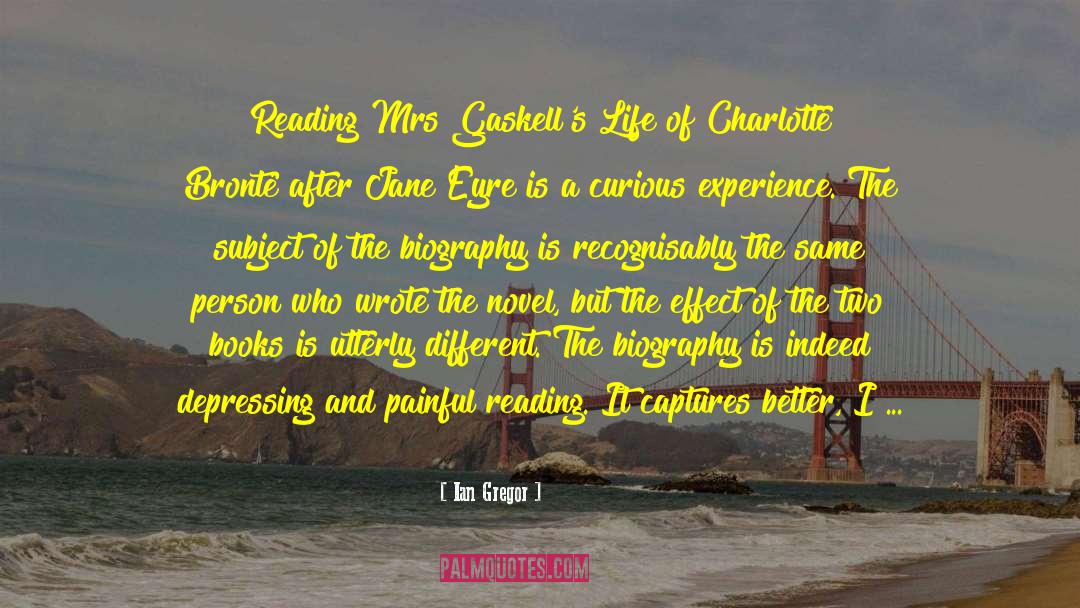
Writers in what we now call the Middle English period (late twelfth century to 1485) did not necessarily always write in English. The language was in a state of flux: attempts were made to assert the French language, to keep down the local language, English, and to make the language of the church (Latin) the language of writing. ~ Ronald Carter

Recognising such dimensions implicit to the reading experience can distract from the immediacy of our response; it can substitute literary archaeology for novelistic reality. That is one pole. But the other extreme is equally limiting. By failing to realise the issues involved in communicating with fictional modes that are different
to our own, in effect we do not read in the fullest sense. Between intellectual pedantry and cultivated ignorance I would pose a third approach to reading - that of the informed imagination. After occupying this position true evaluation can begin. ~ Ian Gregor
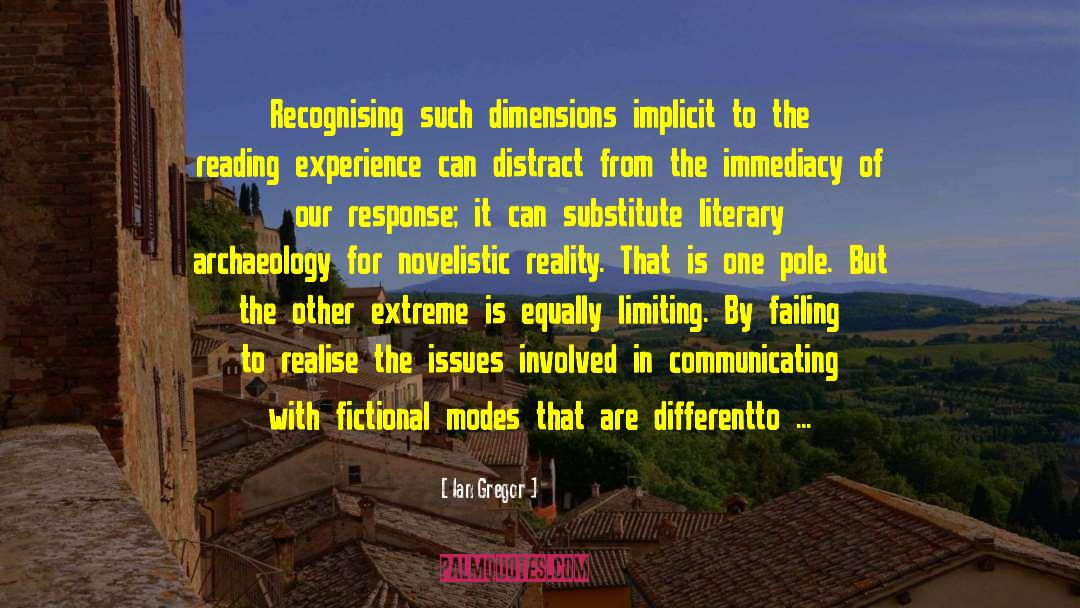
Those of my critics who declare I have no feeling for form will be filled with delight over the meandering formlessness of these notes. ~ Sherwood Anderson
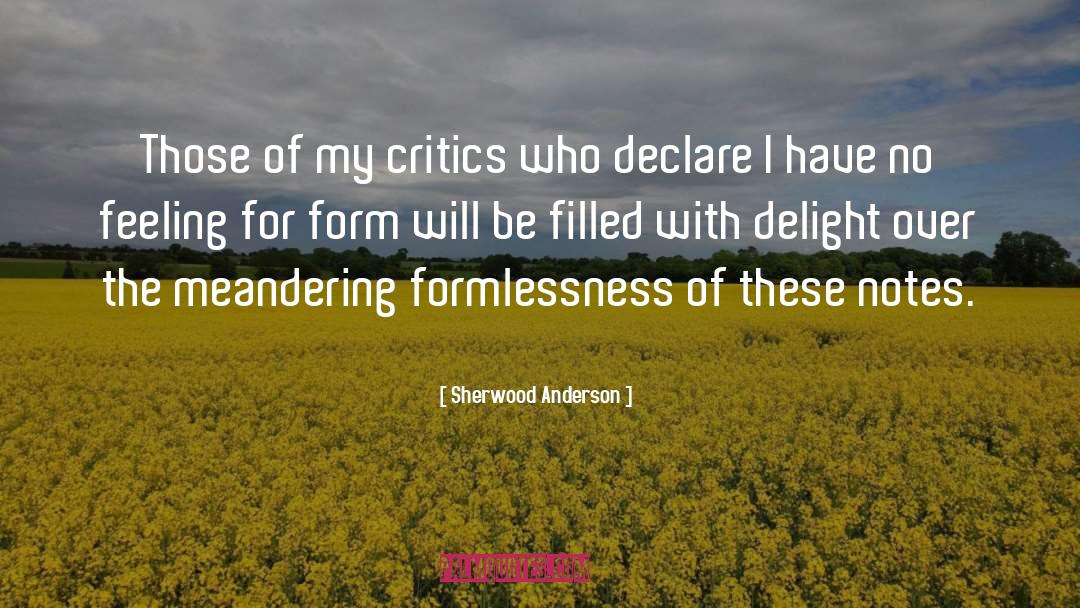
This is why, when we have been particularly impressed by a book, we feel the need to talk about it; we do not want to get away from it by talking about it - we simply want to understand more clearly what it is in which we have been entangled. We have undergone an experience, and now we want to know consciously what we have experienced. Perhaps this is the prime usefulness of literary criticism - it helps to make conscious those aspects of the text which would otherwise remain concealed in the subconscious; it satisfies (or helps to satisfy) our desire to talk about what we have read. ~ Wolfgang Iser
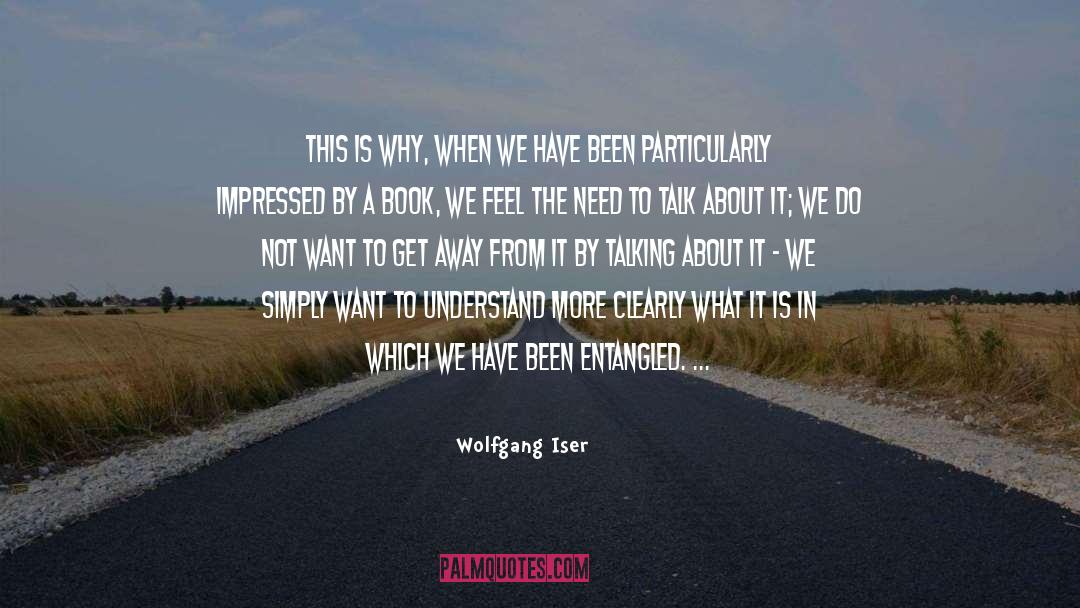
What The Mysteries of Udolpho suggests is how a novel, by presenting phenomena before it present resolutions, can create an on-going, perhaps spurious, but nevertheless compelling dynamic between details which can undermine the ability of form to impose its particular tyranny on the reader's experience: there is a life in the novel which comes from within. ~ Ian Gregor
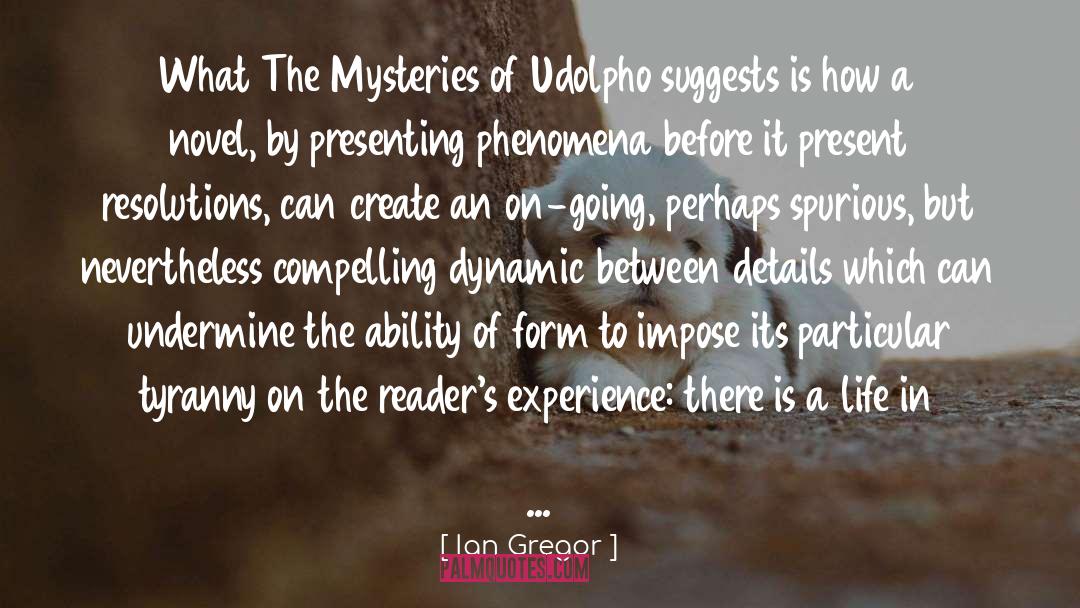
Religion is probably, after sex, the second oldest resource which human beings have available to them for blowing their mind. ~ Susan Sontag
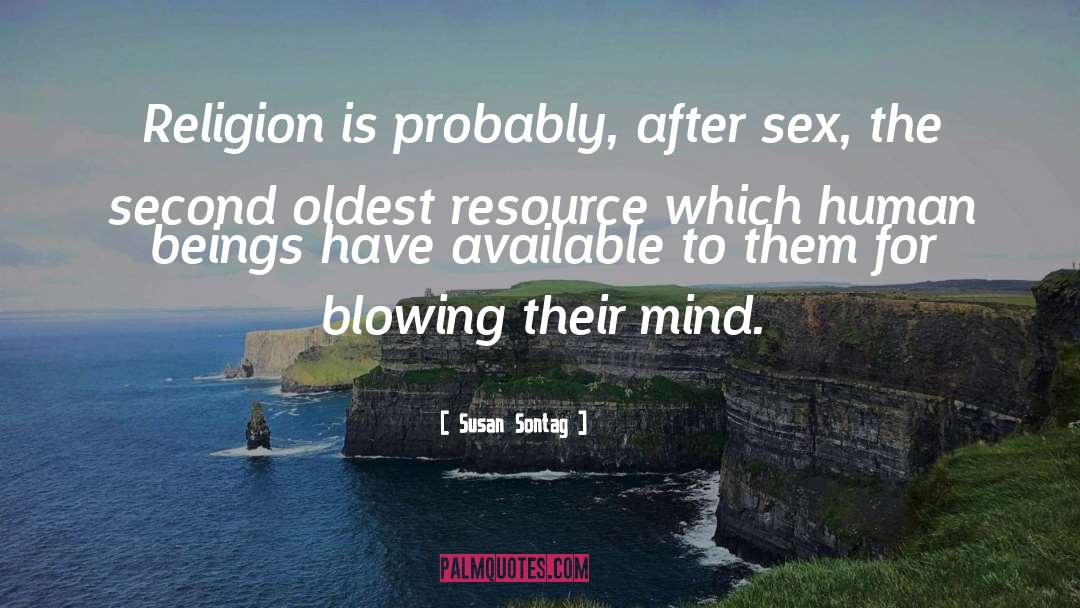
Mankind is immortal
in the comic perspective not by virtue of man's subjugation of nature
but by virtue of man's subjection to it. The "fall" in tragedy ends in
death; the fall in comedy ends in bed, where, by natures's arithmetic,
one and one make a brand new one. ~ Rose A. Zimbardo
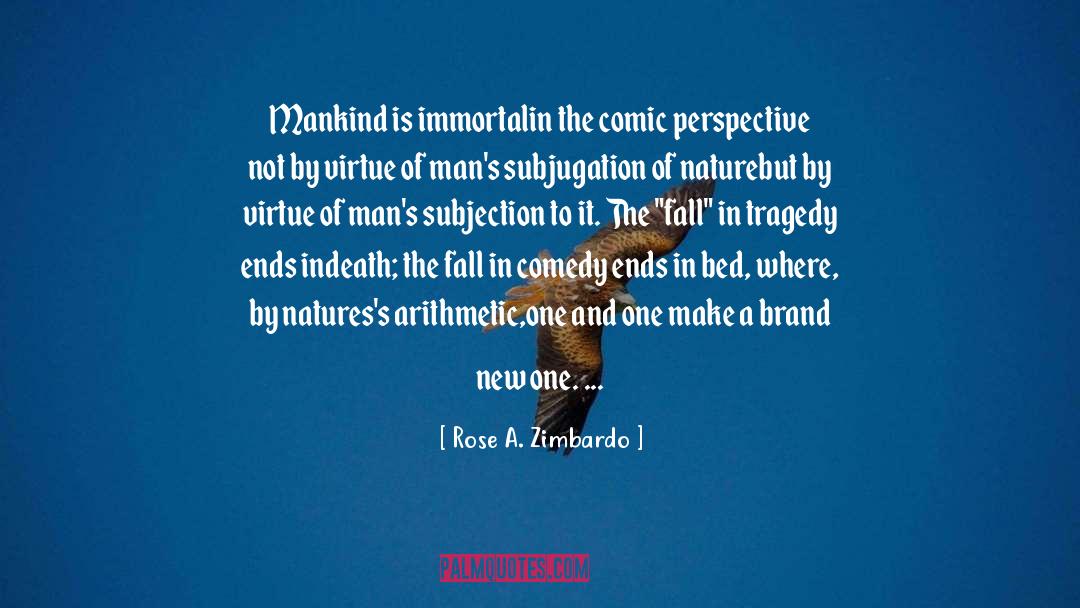
Nor did it go unnoticed by the latest litter of Archimboldians, recent graduates, boys and girls, their doctorates tucked still warm under their arms, who planned, by any means necessary, to impose their particular readings of Archimboldi, like missionaries ready to instill faith in God, even if to do so meant signing a pact with the devil, for most were what you might call rationalists, not in the philosophical sense but in the pejorative literal sense, denoting people less interested in literature than in literary criticism, the one field, according to them - some of them, anyway - where revolution was still possible, and in some way they behaved not like youths but like nouveaux youths, in the sense that there are the rich and the nouveaux riches, all of them generally rational thinkers, let us repeat, although often incapable of telling their asses from their elbows, ~ Roberto Bolano
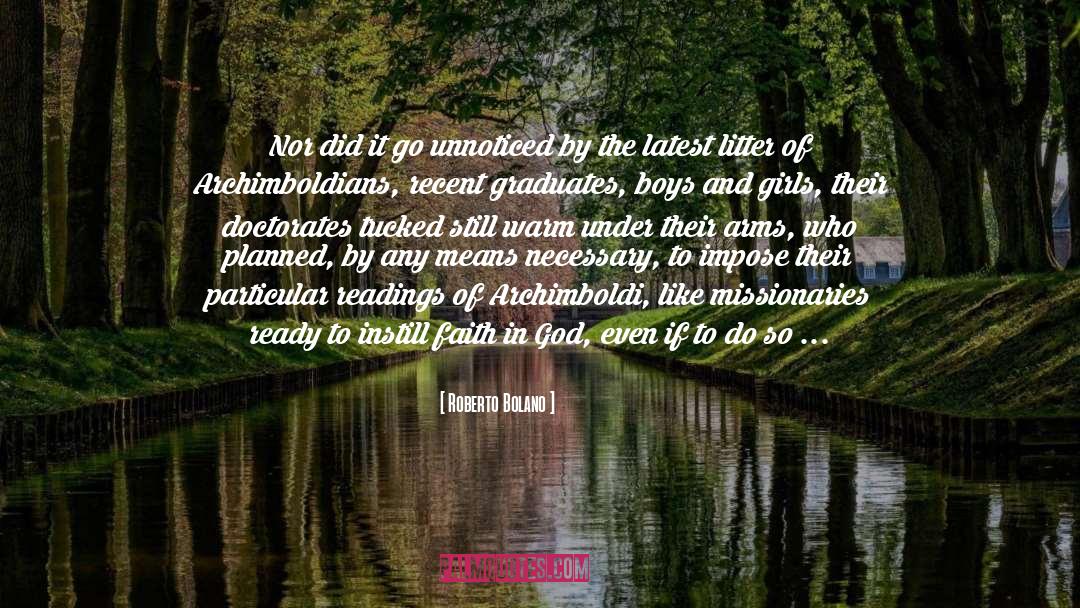
If you genuinely believe that only the death of a loved one can motivate a human being to take up a cause ... then get your pathetic, cynical ass out of my way so I can do my job! ~ Mark Waid

I know that an author must be brave enough to chop away clinging tentacles of good taste for the sake of a great work. But this is no great work, you see. ~ Dorothy Parker
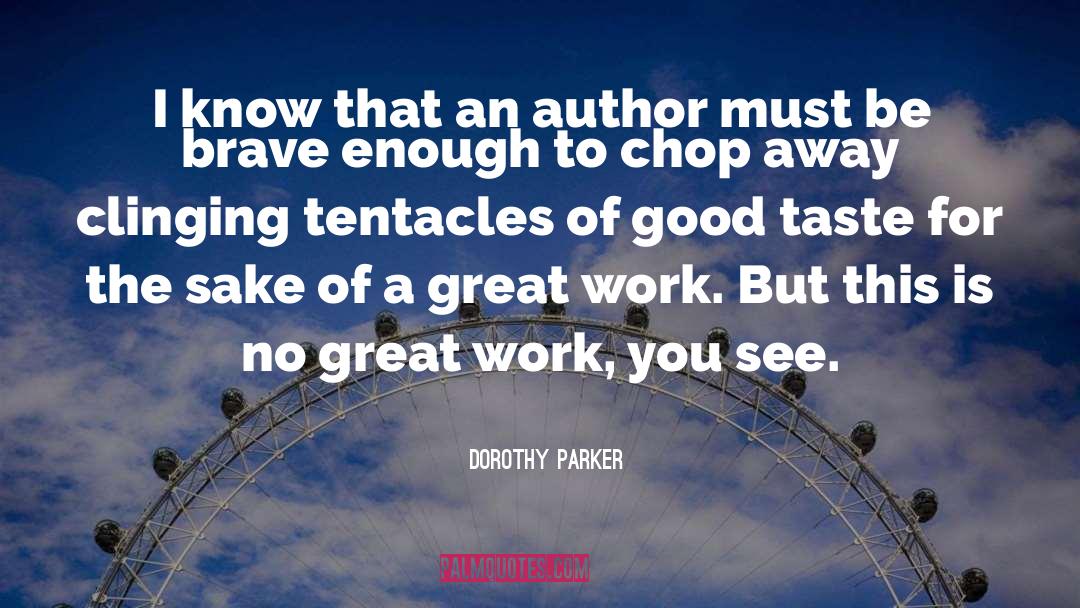
Bloomsbury lost Fry, in 1934, and Lytton Strachey before him, in January 1932, to early deaths. The loss of Strachey
was compounded by Carrington's suicide just two months after, in March. Another old friend, Ka Cox, died of a heart attack in 1938. But the death, in 1937, of Woolf 's nephew Julian, in the Spanish Civil War, was perhaps the
bitterest blow. Vanessa found her sister her only comfort: 'I couldn't get on at all if it weren't for you' (VWB2 203). Julian, a radical thinker and aspiring writer, campaigned all his life against war, but he had to be dissuaded by his
family from joining the International Brigade to fight Franco. Instead he worked as an ambulance driver, a role that did not prevent his death from shrapnel wounds. Woolf 's Three Guineas, she wrote to his mother, was
written 'as an argument with him ~ Jane Goldman
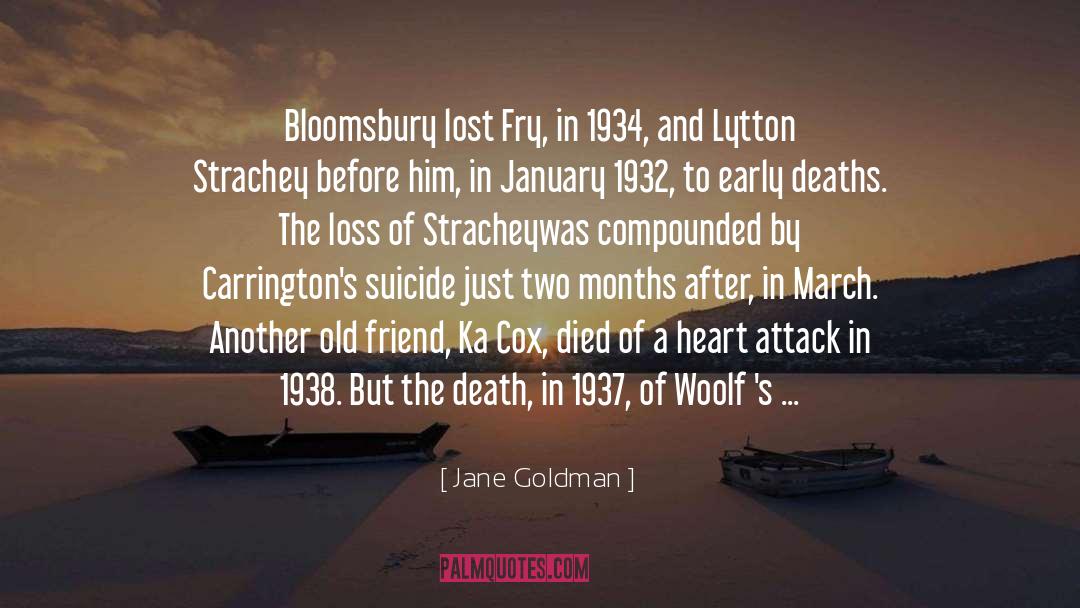
In any genre it may happen that the first great example contains the whole potentiality of the genre. It has been said that all philosophy is a footnote to Plato. It can be said that all prose fiction is a variation on the theme of Don Quixote. ~ Lionel Trilling
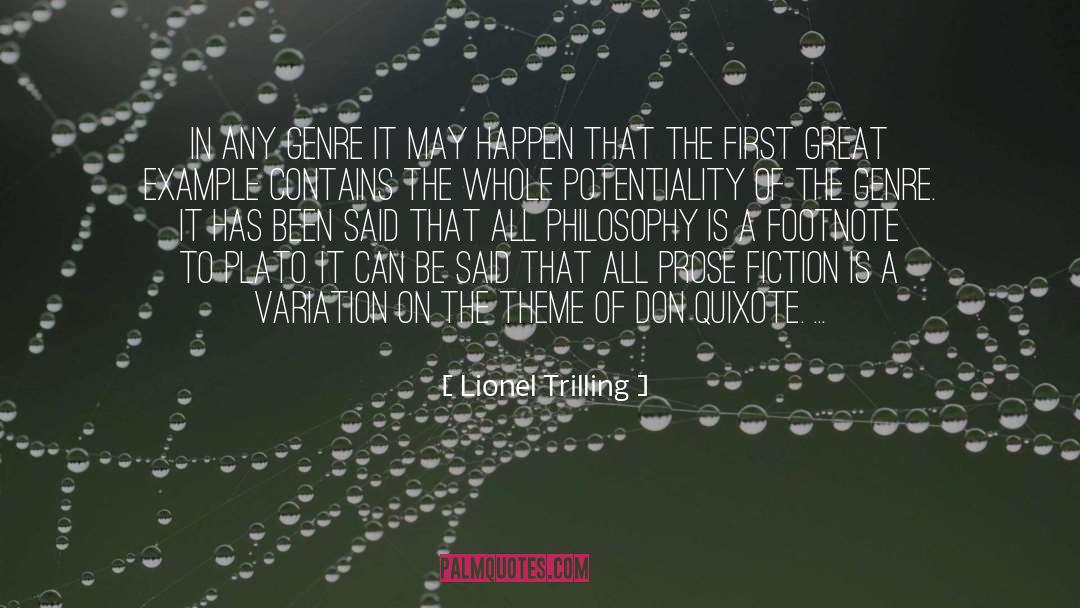
It is important to recognise Woolf 's acknowledgement of her father's dually formative influence. The domestic
dictator was also an intellectual who powerfully shaped her developing intellect, even if, at times, antithetically so: 'just as a dog takes a bite of grass, I take a bite of him medicinally ~ Jane Goldman
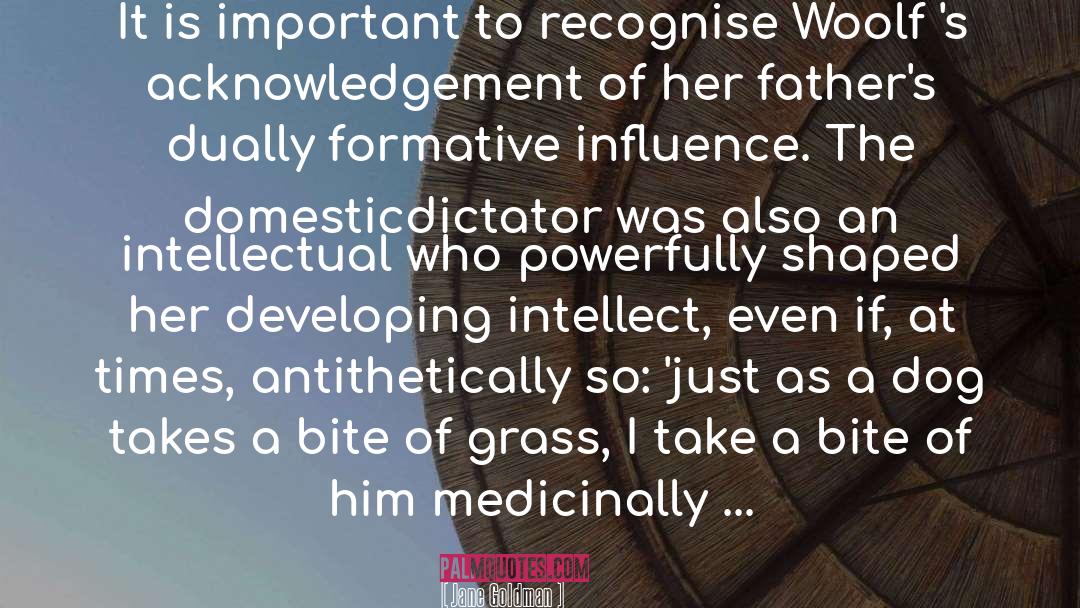
We are all poor; but there is a difference between what Mrs. Spark intends by speaking of 'slender means', and what Stevens called our poverty or Sartre our need, besoin. The poet finds his brief, fortuitous concords, it is true: not merely 'what will suffice,' but 'the freshness of transformation,' the 'reality of decreation,' the 'gaiety of language.' The novelist accepts need, the difficulty of relating one's fictions to what one knows about the nature of reality, as his donnée.
It is because no one has said more about this situation, or given such an idea of its complexity, that I want to devote most of this talk to Sartre and the most relevant of his novels, La Nausée. As things go now it isn't of course very modern; Robbe-Grillet treats it with amused reverence as a valuable antique. But it will still serve for my purposes. This book is doubtless very well known to you; I can't undertake to tell you much about it, especially as it has often been regarded as standing in an unusually close relation to a body of philosophy which I am incompetent to expound. Perhaps you will be charitable if I explain that I shall be using it and other works of Sartre merely as examples. What I have to do is simply to show that La Nausée represents, in the work of one extremely important and representative figure, a kind of crisis in the relation between fiction and reality, the tension or dissonance between paradigmatic form and contingent reality. That the mood of Sartre has so ~ Frank Kermode
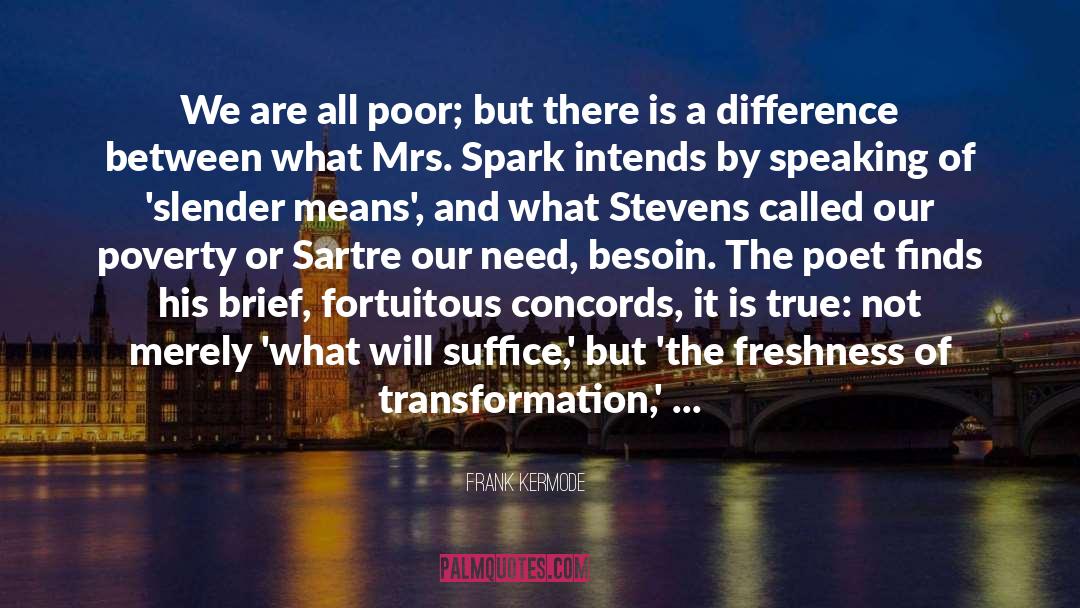
For a while, Criticism travels side by side with the Work, then Criticism vanishes and it's the Readers who keep pace. The journey may be long or short. Then the Readers die one by one and the Work continues on alone, although a new Criticism and new Readers gradually fall into step with it along its path. Then Criticism dies again and the Readers die again and the Work passes over a trail of bones on its journey toward solitude. To come near the work, to sail in her wake, is a sign of certain death, but new Criticism and new Readers approach her tirelessly and relentlessly and are devoured by time and speed. Finally the Work journeys irremediably alone in the Great Vastness. And one day the Work dies, as all things must die and come to an end: the Sun and the Earth and the Solar System and the Galaxy and the farthest reaches of man's memory. Everything that begins as comedy ends in tragedy. ~ Roberto Bolano
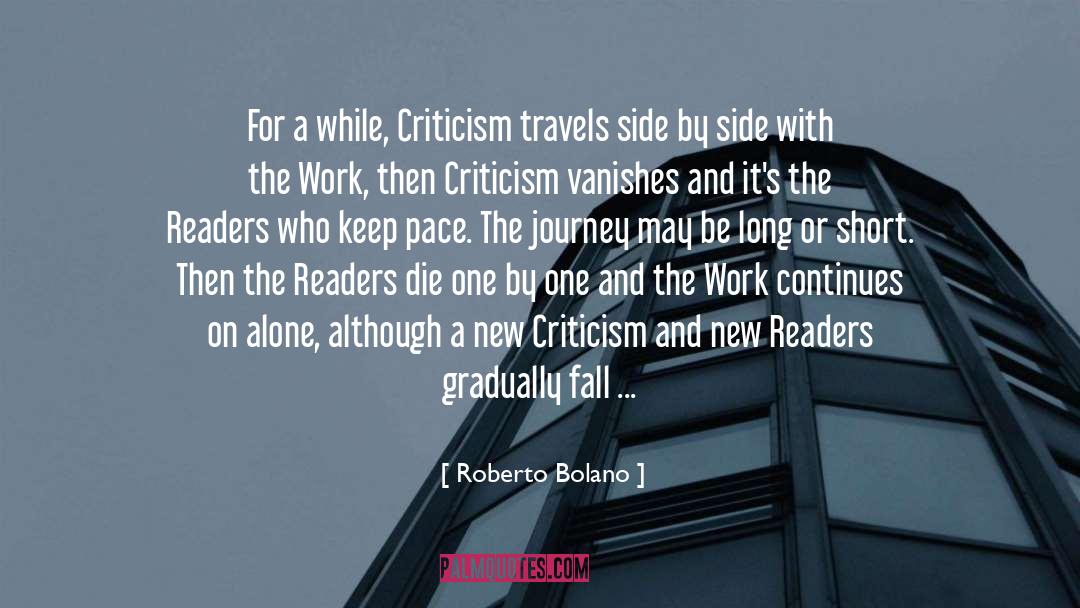
There are long stretches of the work [Paradise Lost] that are for anyone not theologically minded sheer howling boredom from the point of view of the content. ~ Marco Mincoff
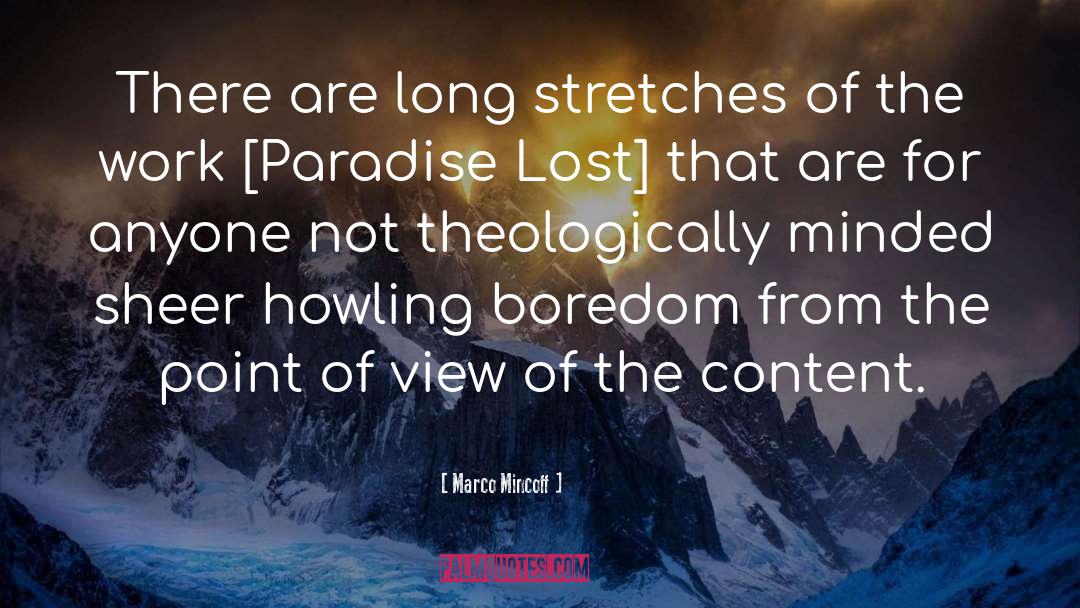
The thing people don't realize, God bless them, is that my books are supposed to suck. ~ Stephenie Meyer
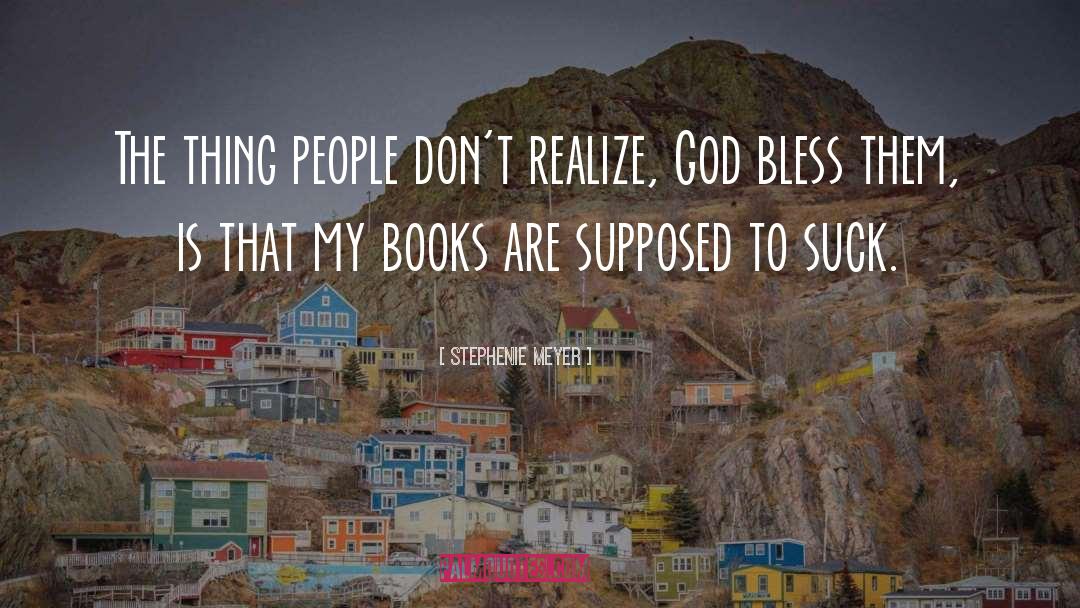
Nature to all things fixed the limits fit
And wisely curbed proud man's pretending wit.
As on the land while here the ocean gains.
In other parts it leaves wide sandy plains
Thus in the soul while memory prevails,
The solid power of understanding fails
Where beams of warm imagination play,
The memory's soft figures melt away
One science only will one genius fit,
So vast is art, so narrow human wit
Not only bounded to peculiar arts,
But oft in those confined to single parts
Like kings, we lose the conquests gained before,
By vain ambition still to make them more
Each might his several province well command,
Would all but stoop to what they understand. ~ Alexander Pope
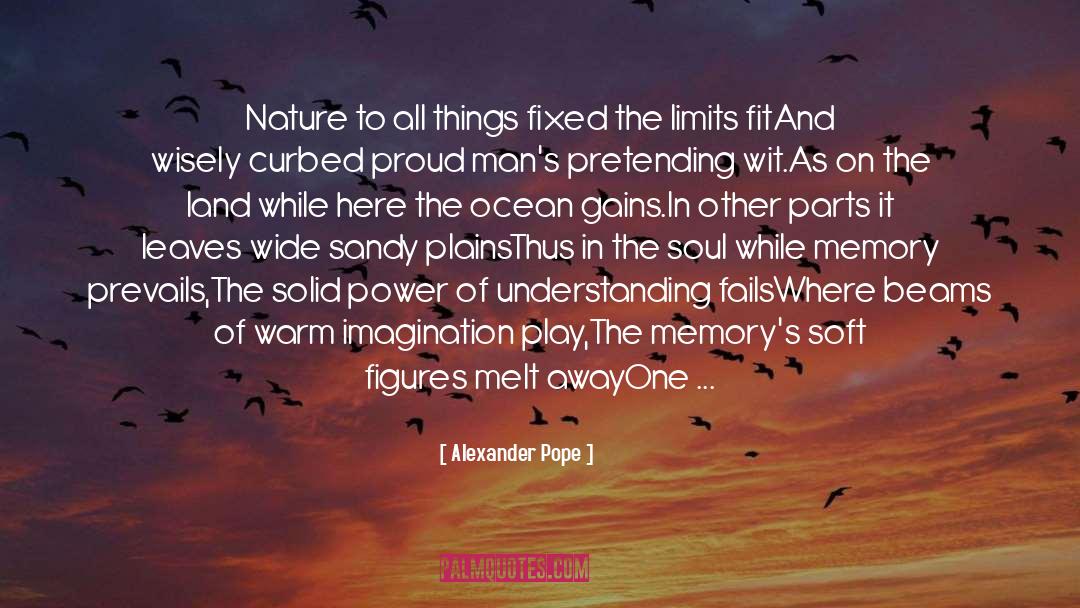
The beliefs and behaviour of the Restoration reflect the theories of society put forward by Thomas Hobbes in The Leviathan, which was written in exile in Paris and published in 1651. Like many texts of the time, The Leviathan is an allegory. It recalls mediaeval rather than Renaissance thinking. The leviathan is the Commonwealth, society as a total organism, in which the individual is the absolute subject of state control, represented by the monarch. Man - motivated by self-interest - is acquisitive and lacks codes of behaviour. Hence the necessity for a strong controlling state, 'an artificial man', to keep discord at bay. Self-interest and stability become the keynotes of British society after 1660, the voice of the new middle-class bourgeoisie making itself heard more and more in the expression of values, ideals, and ethics. ~ Ronald Carter
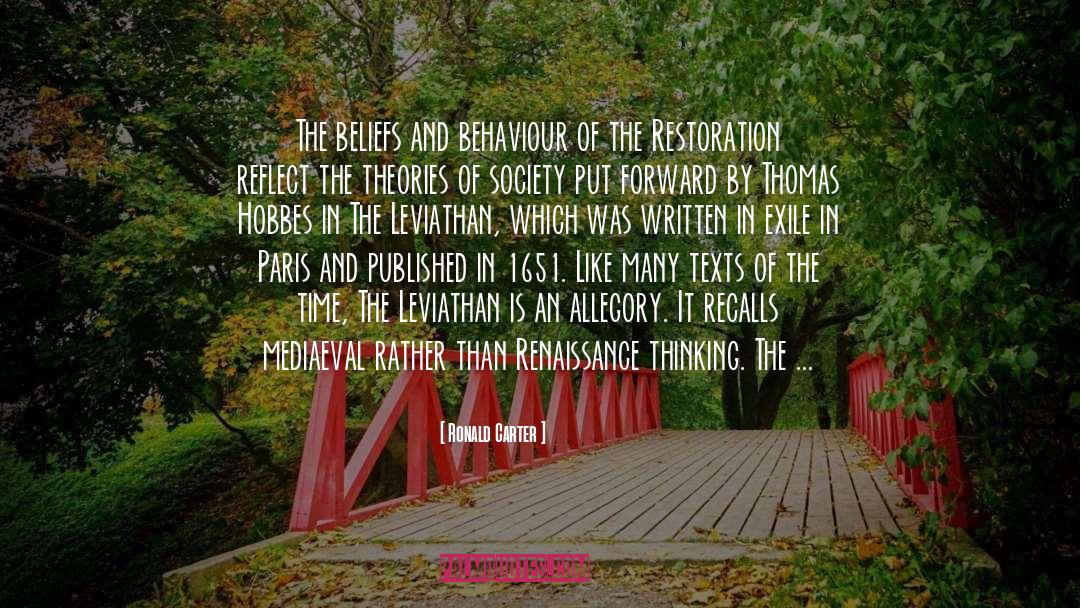
I would recommend it to you to reflect, and remark on, and digest what you read; to enter into the spirit and design of your author; to observe every step he takes to accomplish his end; and to dwell on any remarkable beauties of diction, justness or sublimity of sentiment, or masterly strokes of true wit which may occur in the course of your reading. ~ Dumas Malone
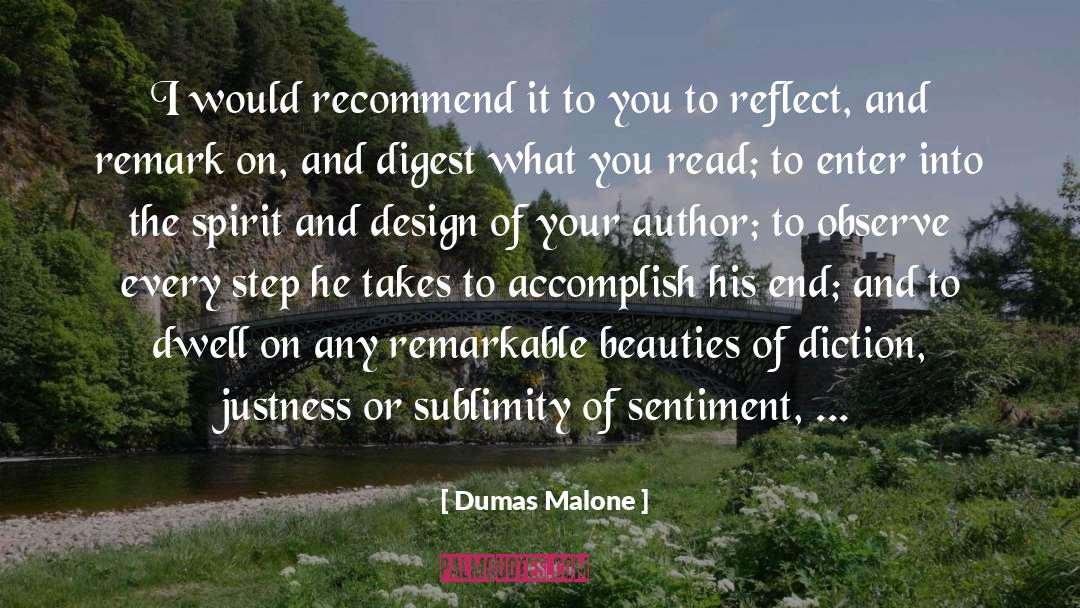
When tragedy established itself in England it did so in terms of plots and spectacle that had much more to do with medieval apocalypse than with the mythos and opsis of Aristotle. Later, tragedy itself succumbs to the pressure of 'demythologizing'; the End itself, in modern literary plotting loses its downbeat, tonic-and-dominant finality, and we think of it, as the theologians think of Apocalypse, as immanent rather than imminent. Thus, as we shall see, we think in terms of crisis rather than temporal ends; and make much of subtle disconfirmation and elaborate peripeteia. And we concern ourselves with the conflict between the deterministic pattern any plot suggests, and the freedom of persons within that plot to choose and so to alter the structure, the relation of beginning, middle, and end.
Naïvely predictive apocalypses implied a strict concordance between beginning, middle, and end. Thus the opening of the seals had to correspond to recorded historical events. Such a concordance remains a deeply desired object, but it is hard to achieve when the beginning is lost in the dark backward and abysm of time, and the end is known to be unpredictable. This changes our views of the patterns of time, and in so far as our plots honour the increased complexity of these ways of making sense, it complicates them also. If we ask for comfort from our plots it will be a more difficult comfort than that which the archangel offered Adam:
How soon hath thy prediction, ~ Frank Kermode
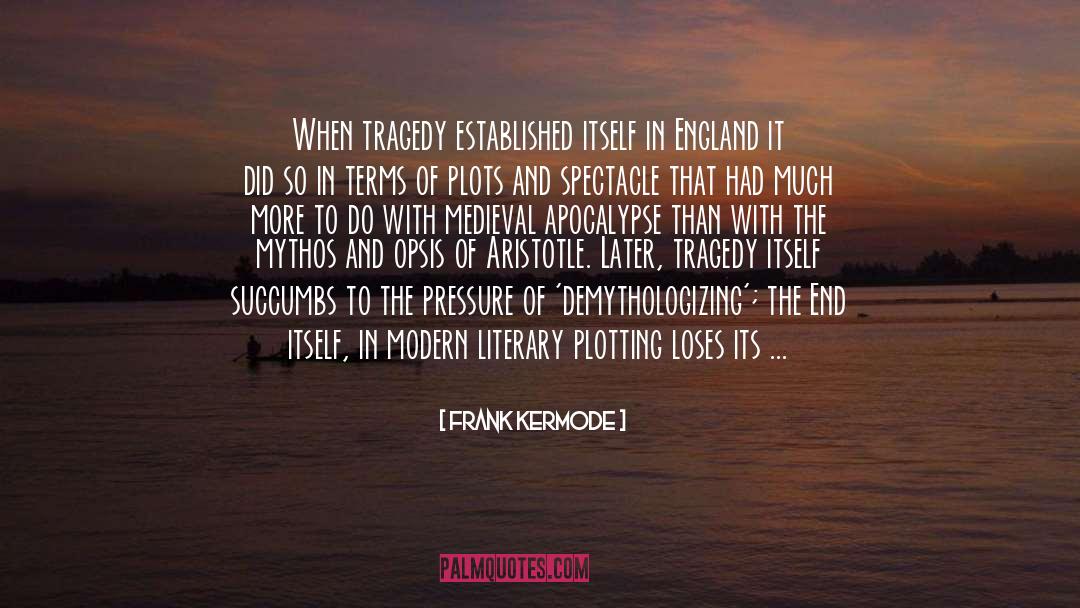
Pearl introduces an original story, in a form which was to become one of the most frequent in mediaeval literature, the dream-vision. Authors like Chaucer and Langland use this form, in which the narrator describes another world - usually a heavenly paradise - which is compared with the earthly human world. In Pearl, the narrator sees his daughter who died in infancy, 'the ground of all my bliss'. She now has a kind of perfect knowledge, which her father can never comprehend. The whole poem underlines the divide between human comprehension and perfection; these lines show the gap between possible perfection and fallen humanity which, thematically, anticipate many literary examinations of man's fall, the most well known being Milton's late Renaissance epic, Paradise Lost. ~ Ronald Carter
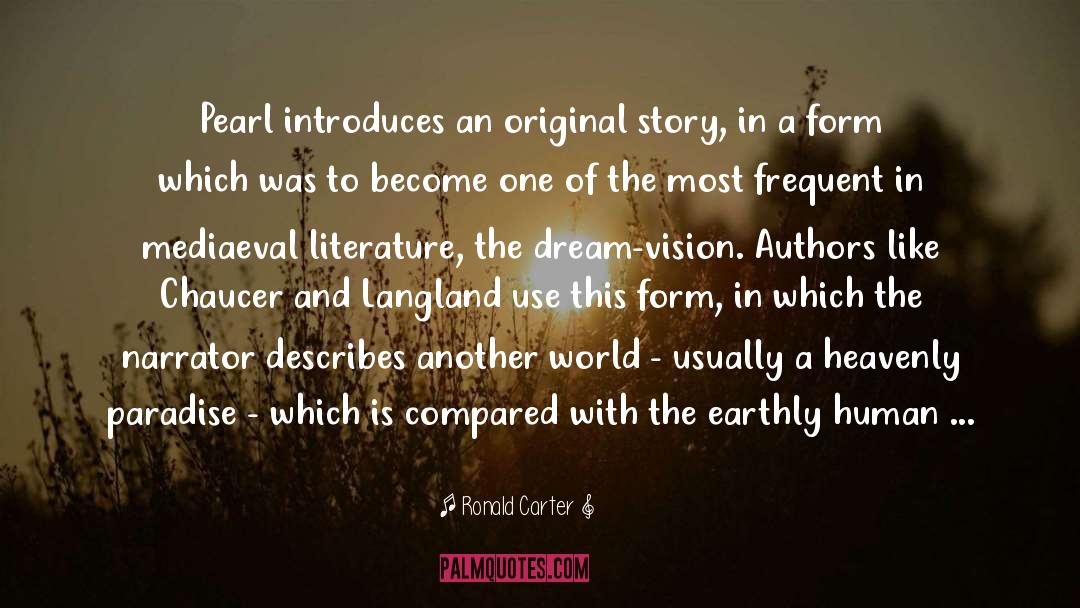
Ivanov had been a party member since 1902. Back then he had tried to write stories in the manner of Tolstoy, Chekhov, Gorky, or rather he had tried to plagiarize them without much success, which led him, after long reflection (a whole summer night), to the astute decision that he should write in the manner of Odoevsky and Lazhechnikov. Fifty percent Odoevsky and fifty percent Lazhecknikov. This went over well, in part because readers, their memories mostly faulty, had forgotten poor Odoevsky (1803-1869) and poor Lazhechnikov (1792-1869), who died the same year, and in part because literary criticism, as keen as ever, neither extrapolated nor made the connection nor noticed a thing. ~ Roberto Bolano
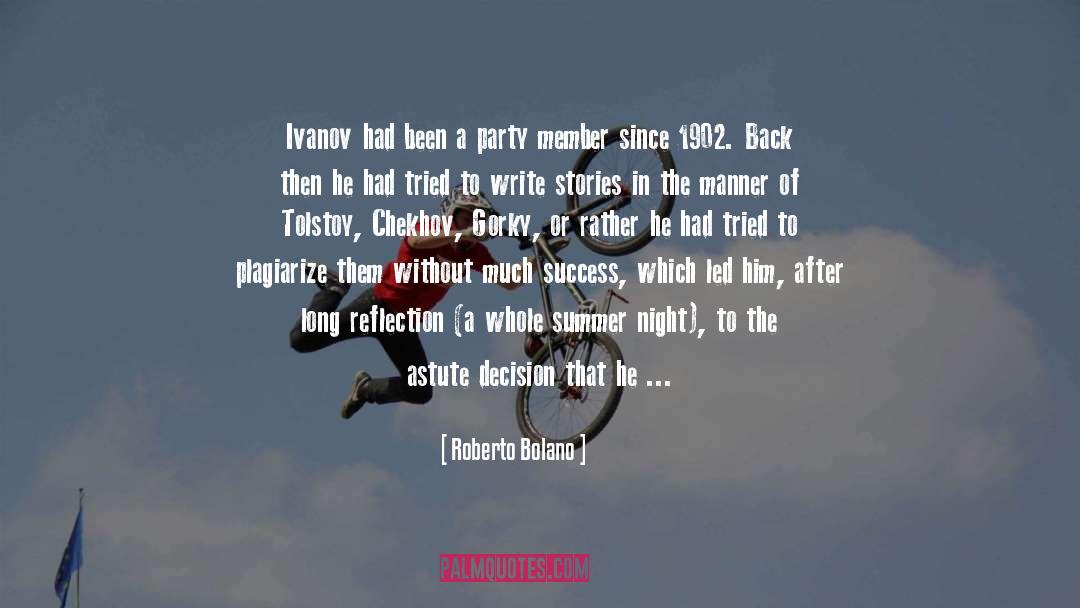
The enduring rapture with magic and fable has always struck me as latently childish and somehow sexless (and thus also related to childlessness). ~ Christopher Hitchens
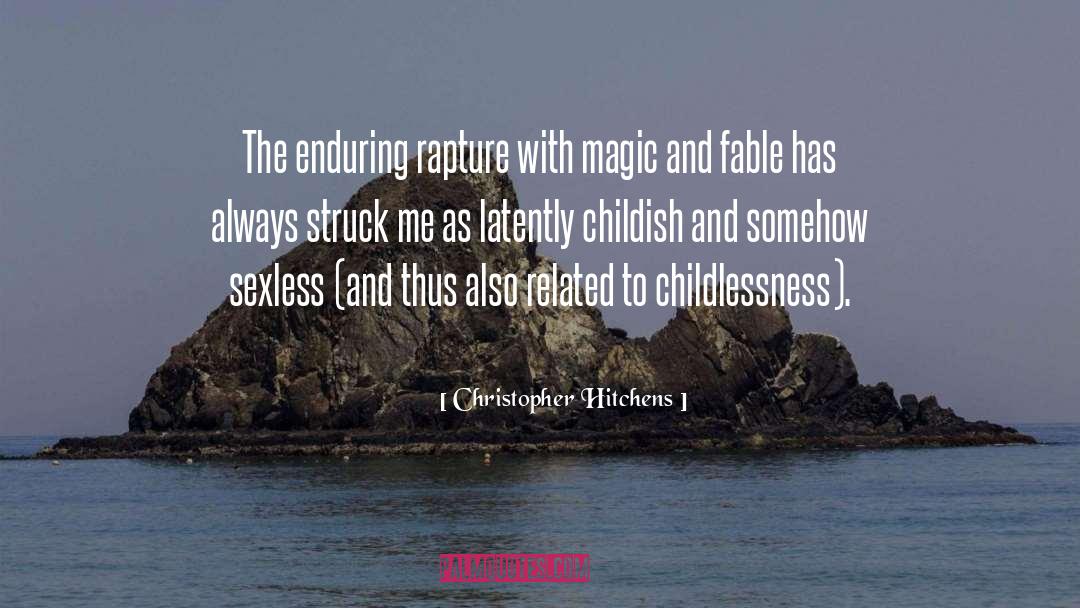
If I like a movie, I'm definitely advocating for it, but it's not "you should see this" or "you shouldn't see this." I try to take a longer view about what the movie is doing and where it fits in the context of other things, in the way that certain good literary criticism tries to do the same thing. ~ Wesley Morris
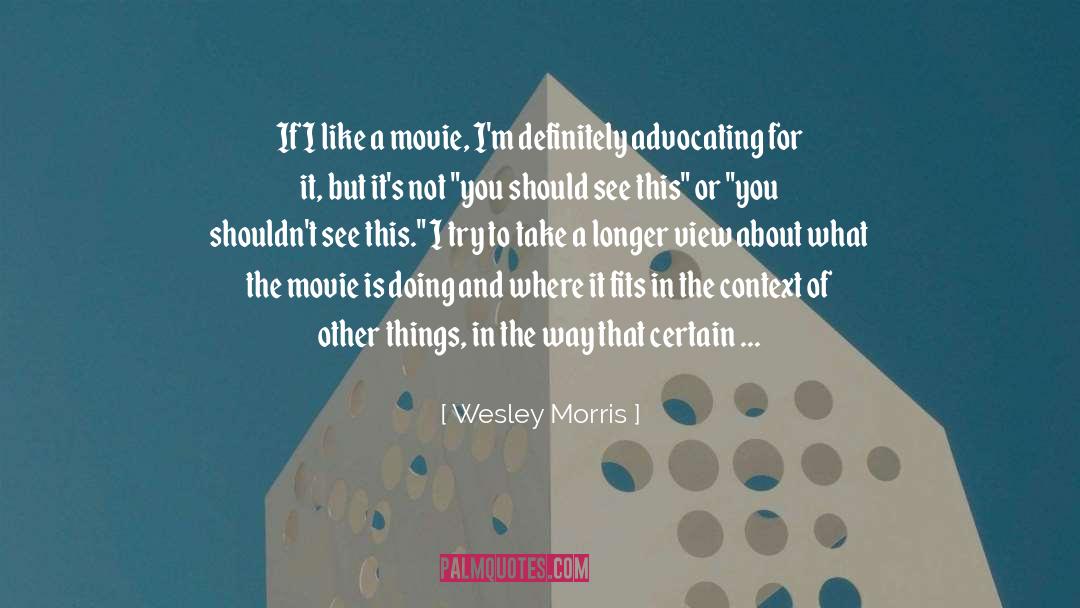
In the context of Lawrence's rejection of the Freudian notion of incest and the close identification between author and character, Sons and Lovers becomes an exercise in deliberate ambiguity. ~ John E. Stoll
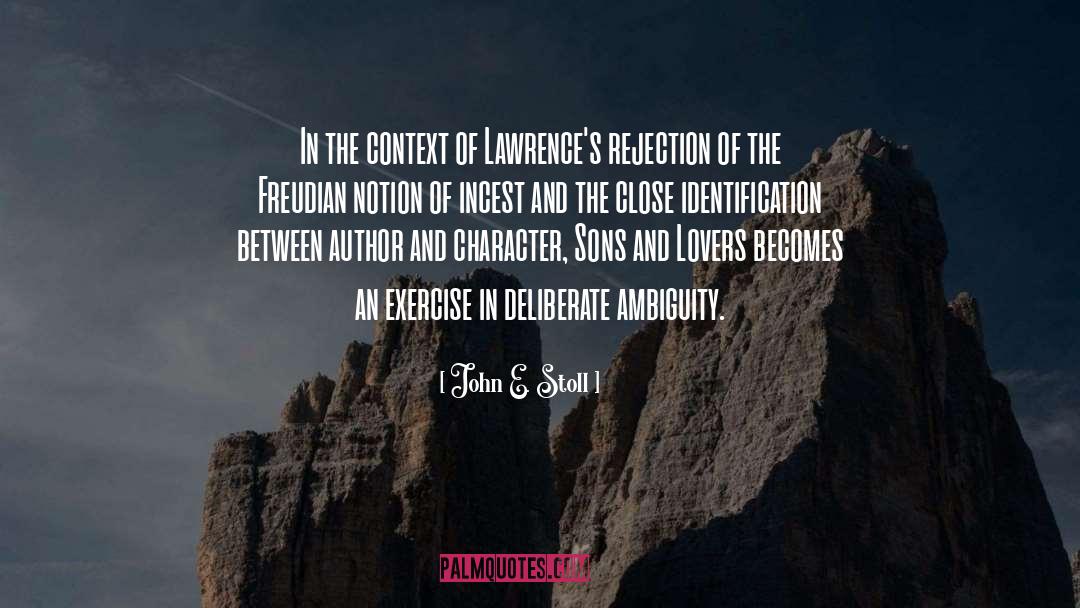
[T]his is how it will remain until ... literary criticism discards its sociological, religious, philosophical and other textbooks, which only help mediocrity to admire itself. Only then will you be free to say what you please. [F]or God's sake stop that irrelevant chitchat. ~ Vladimir Nabokov

One problem with the work of the New Critics was that their close readings, no matter how brilliant, could not deliver all they seemed to promise. ~ Jewel Spears Brooker
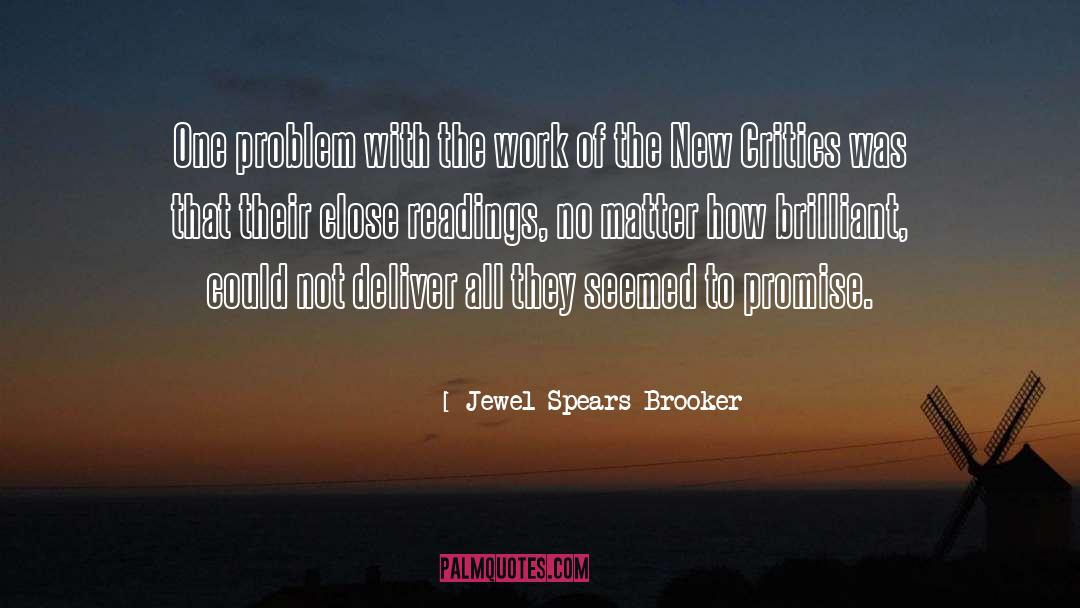
How to explain the sheer tingling joy one experiences when two interesting, complex, and occasionally aggravating characters have at last settled their misunderstandings and will live happily ever after, no matter what travails life might throw in their path, because Jane Austen said they will, and that's that? How to describe the exhilaration of being caught up in an unknown but glamorous world of balls and gowns and rides in open carriages with handsome young men? How to explain that the best part of Jane Austen's world is that sudden recognition that the characters are just like you? ~ Margaret C. Sullivan
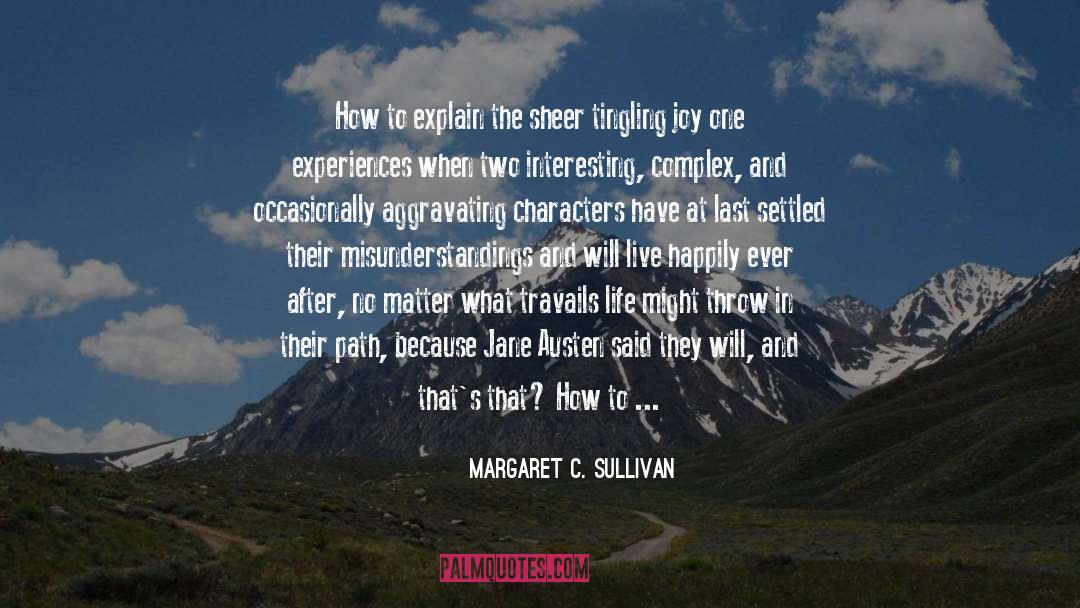
It doesn't take a literary detective, scanning the passage above, to notice that he is partly saying of Orwell what Orwell actually says about Gissing. This half-buried resentment can be further noticed when Williams turns to paradox. I have already insisted that Orwell contains opposites and even contradictions, but where is the paradox in a 'humane man who communicated an extreme of inhuman terror'? Where is the paradox in 'a man committed to decency who actualized a distinctive squalor'? The choice of verbs is downright odd, if not a little shady. 'Communicated'? 'Actualised'? Assuming that Williams means to refer to Nineteen Eighty-Four in the first case, which he certainly does, would it not be more precise to say that Orwell 'evoked' or even 'prefigured' or perhaps simply 'described' an extreme of inhuman terror? Yet that choice of verb, because more accurate, would be less 'paradoxical.' Because what Williams means to imply, but is not brave enough to say, is that Orwell 'invented' the picture of totalitarian collectivism.
As for 'actualising' a distinctive squalor, the author of that useful book Keywords has here chosen a deliberately inexact term. He may mean Nineteen Eighty-Four again - he is obsessed with the 'gritty dust' that infests Orwell's opening passage - or he may mean the depictions of the mean and cramped (and malodorous) existence imposed on the denizens of Wigan Pier. But to 'actualise' such squalor is either to make it real - no contradictio ~ Christopher Hitchens
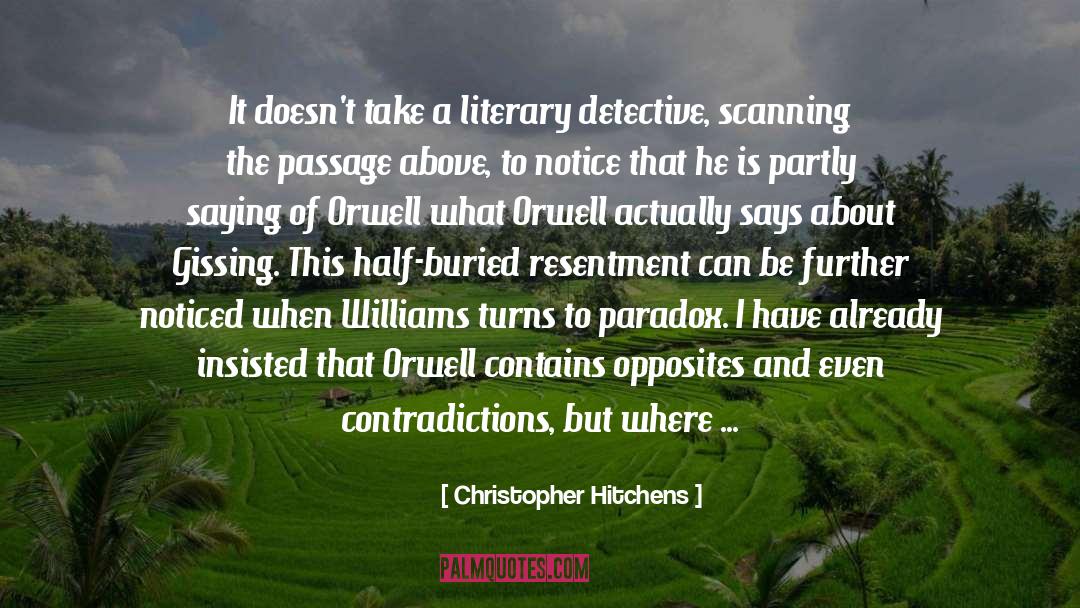
The first unanalysed impression that most readers receive from Jane Eyre is that it has a very violent atmosphere. If this were simply the effect of the plot and the imagined events then sensation novels like Walpole's The Castle of Otranto or Mrs Radcliffe's The Mystery of Udolpho ought to produce it even more powerfully.
But they do not. Nor do they even arouse particularly strong reader responses. Novelists like Charlotte Brontë or D. H. Lawrence, on the other hand, are able quite quickly to provoke marked reactions of sympathy or hostility from readers. The reason, apparently, is
that the narrator's personality is communicating itself through the style with unusual directness. ~ Ian Gregor
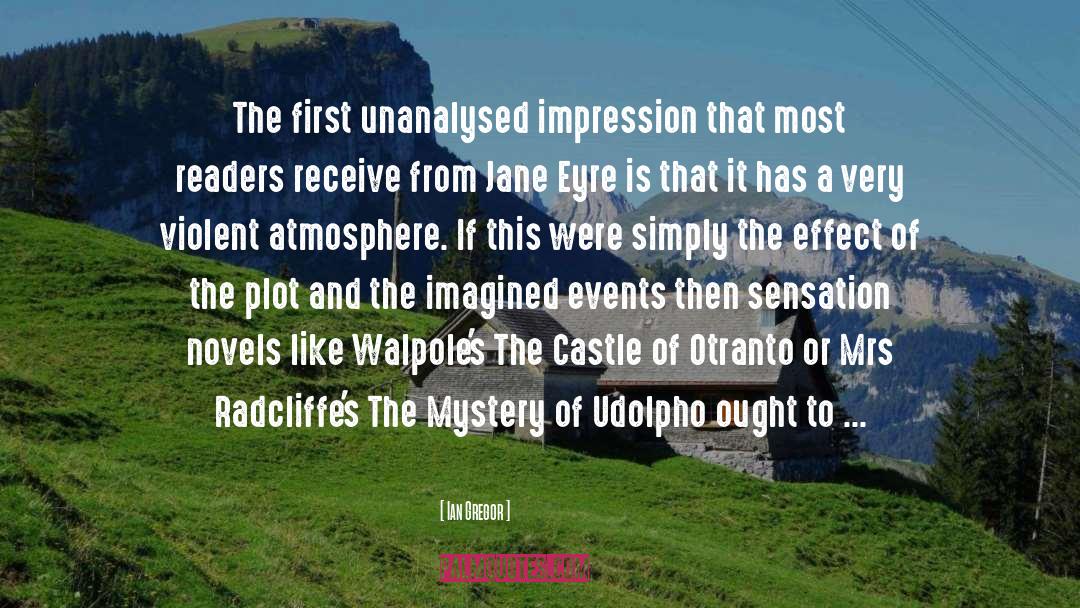
About some books we feel that our reluctance to return to them is the true measure of our admiration. It is hard to suppose that many people go back, from a spontaneous desire, to reread 1984: there is neither reason nor need to, no one forgets it. The usual distinctions between forgotten details and a vivid general impression mean nothing here, for the book is written out of one passionate breath, each word is bent to a severe discipline of meaning, everything is stripped to the bareness of terror.
Kafka's The Trial is also a book of terror, but it is a paradigm and to some extent a puzzle, so that one may lose oneself in the rhythm of the paradigm and play with the parts of the puzzle. Kafka's novel persuades us that life is inescapably hazardous and problematic, but the very 'universality' of this idea helps soften its impact: to apprehend the terrible on the plane of metaphysics is to lend it an almost soothing aura. ~ Irving Howe
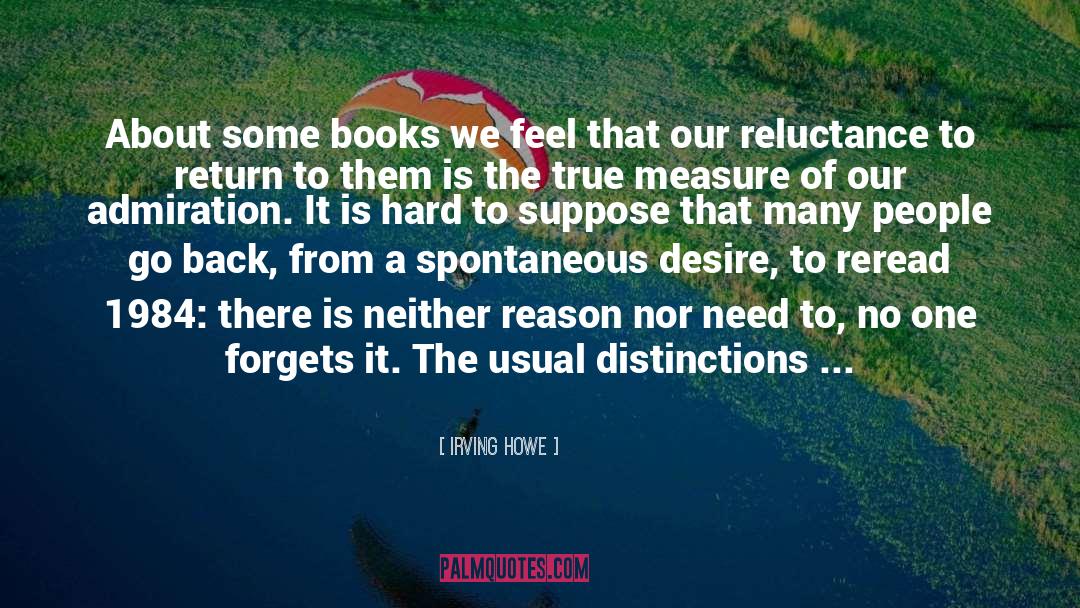
In the analysis of books, as in the analysis of complex world events, we hover between two kinds of error: ascribing too much meaning where there is little, if any, to be found, and ignoring meaning that stares us right in the face. ~ J.C. Hallman
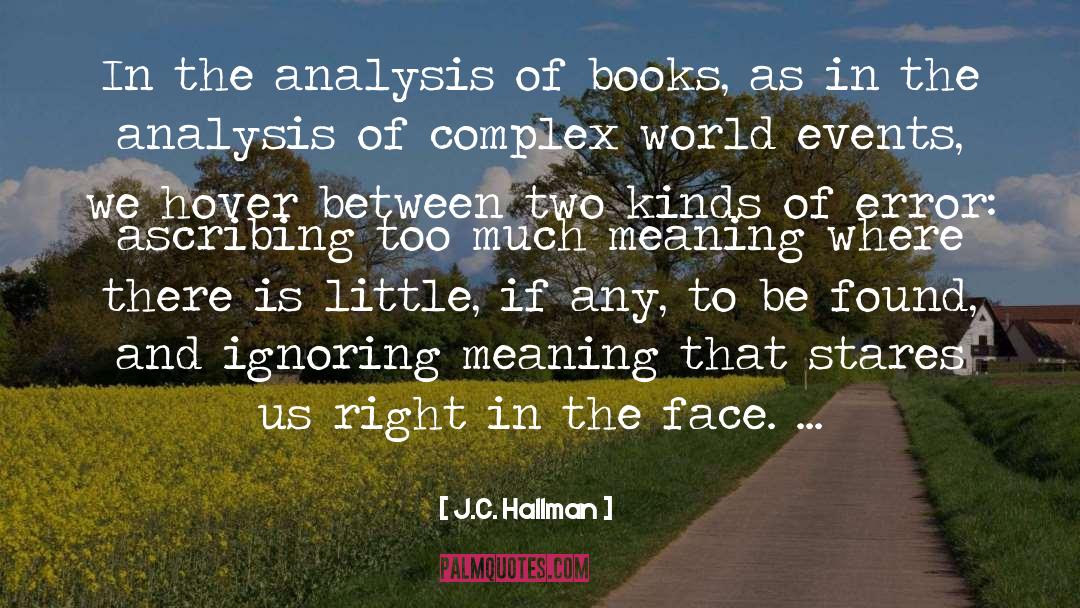
Some who have read the book, or at any rate have reviewed it, have found it boring, absurd, or contemptible, and I have no cause to complain, since I have similar opinions of their works, or of the kinds of writing that they evidently prefer. ~ J.R.R. Tolkien
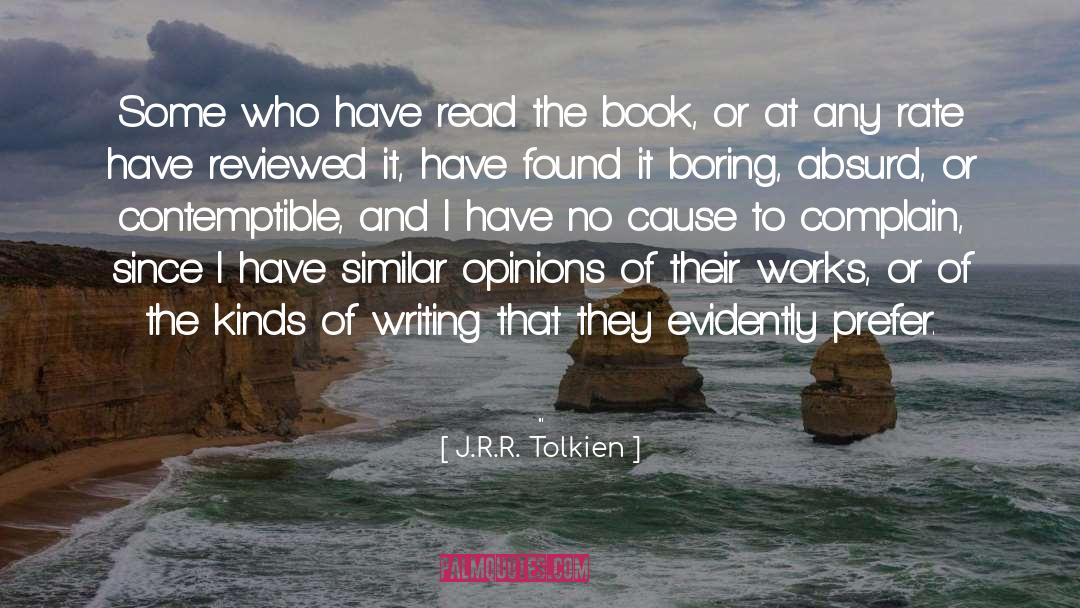
Beowulf stands out as a poem which makes extensive use of this kind of figurative language. There are over one thousand compounds in the poem, totalling one-third of all the words in the text. Many of these compounds are kennings. The word 'to ken' is still used in many Scottish and Northern English dialects, meaning 'to know'. Such language is a way of knowing and of expressing meanings in striking and memorable ways; it has continuities with the kinds of poetic compounding found in nearly all later poetry but especially in the Modernist texts of Gerard Manley Hopkins and James Joyce. ~ Ronald Carter
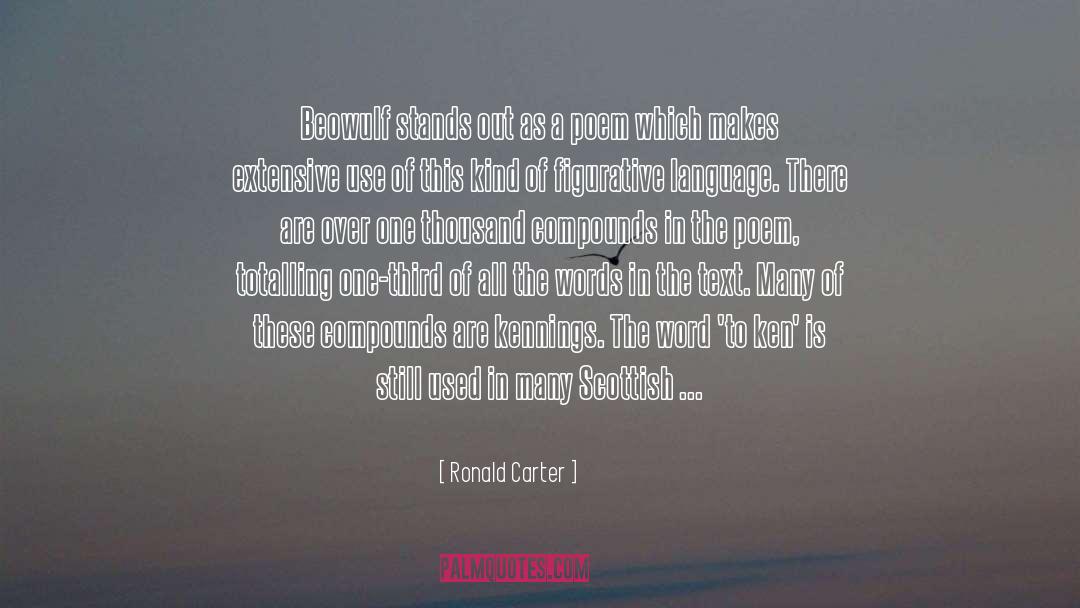
Thus we come to the problem of determining what the poem is 'about.' Charles Altieri notes that '[a]n expression of the self can be one that is intended, the self's act, or one that is symptomatic, the act of a self not in control of what it manifests'(24) In 'Yankee Doodle,' and to a lesser extent in '$$$$$$," the interesting aspects of the poem are not 'the intended expression of the self.' The lack of explicitness is not suggestive in any positive sense because we feel that were things to be spelled out, this would weaken, not strengthen, the narrator's case by revealing the unacknowledged irrationality at the root of it. ~ Russell Harrison
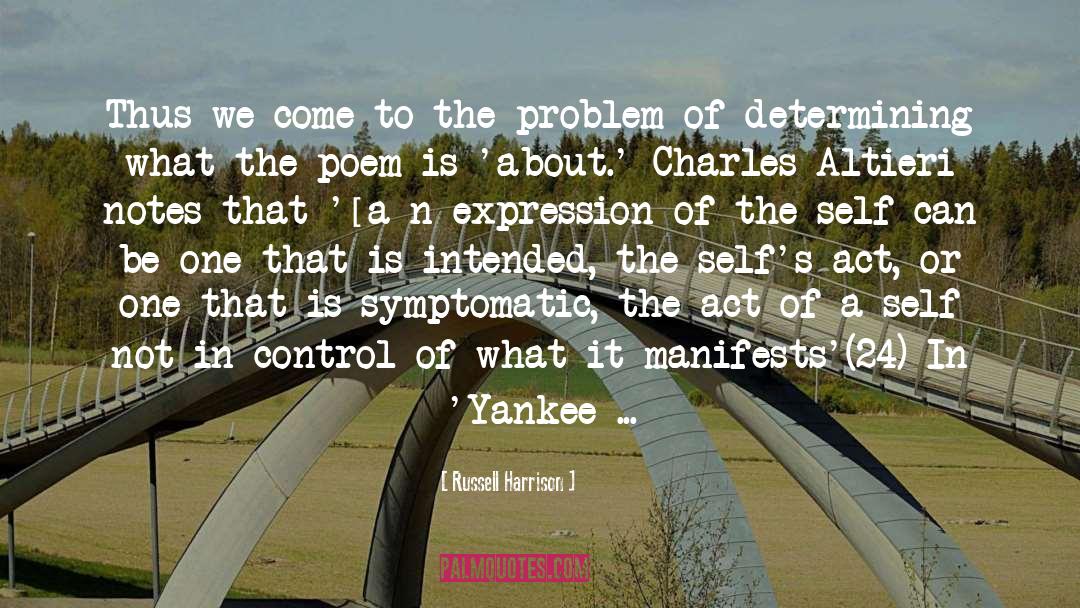
The 1950s and 1960s: philosophy, psychology, myth
There was considerable critical interest in Woolf 's life and work in this period, fuelled by the publication of selected extracts from her diaries, in A Writer's Diary (1953), and in part by J. K. Johnstone's The Bloomsbury
Group (1954). The main critical impetus was to establish a sense of a unifying aesthetic mode in Woolf 's writing, and in her works as a whole, whether through philosophy, psychoanalysis, formal aesthetics, or mythopoeisis.
James Hafley identified a cosmic philosophy in his detailed analysis of her fiction, The Glass Roof: Virginia Woolf as Novelist (1954), and offered a complex account of her symbolism. Woolf featured in the influential The
English Novel: A Short Critical History (1954) by Walter Allen who, with antique chauvinism, describes the Woolfian 'moment' in terms of 'short, sharp female gasps of ecstasy, an impression intensified by Mrs Woolf 's use
of the semi-colon where the comma is ordinarily enough'. Psychological and Freudian interpretations were also emerging at this time, such as Joseph Blotner's 1956 study of mythic patterns in To the Lighthouse, an essay that draws on Freud, Jung and the myth of Persephone.4 And there were studies of Bergsonian writing that made much of Woolf, such as Shiv Kumar's Bergson and the Stream of Consciousness Novel (1962).
The most important work of this period was by the French critic Jean Guiguet. His Virginia Woolf and H ~ Jane Goldman
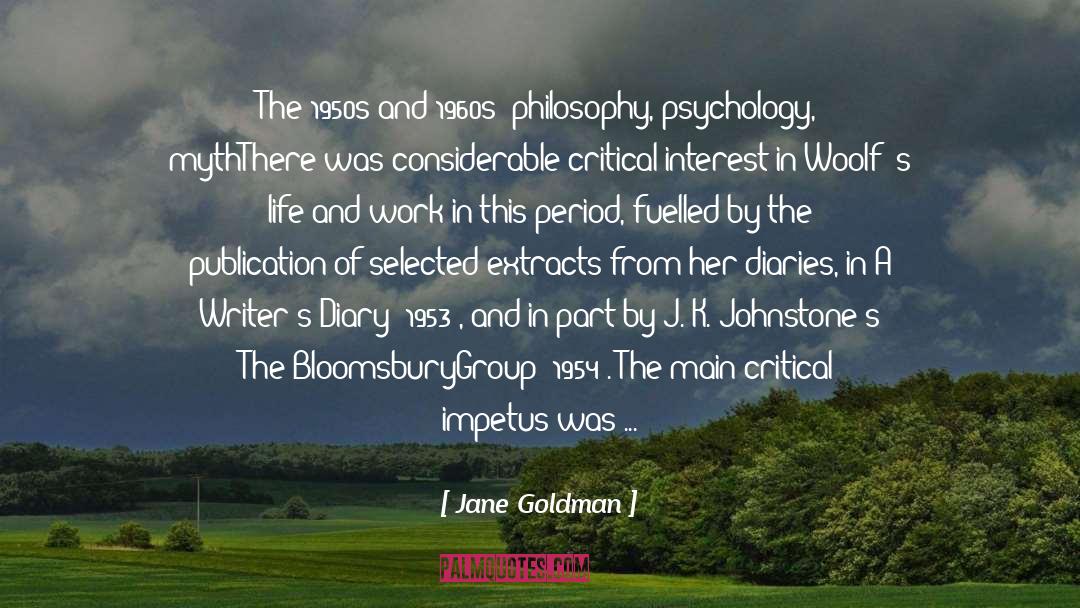
Apparently, faith in life is one thing and faith in literature is another. ~ Gerald Weaver
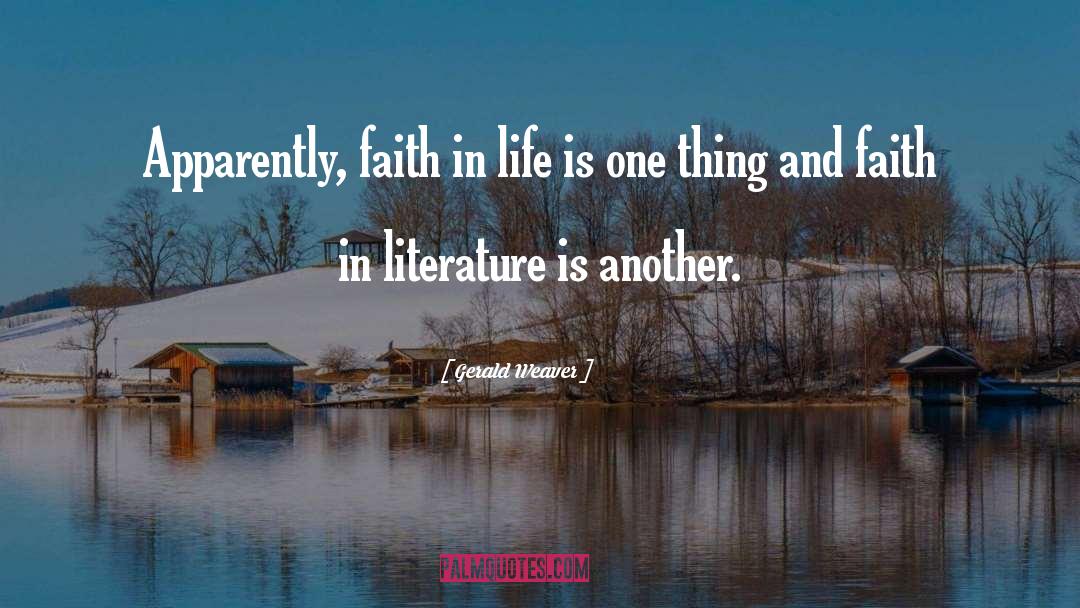
Art is not religion, 'it doesn't even lead to religion.' But in the time of distress which is ours, the time when the gods are missing, the time of absence and exile, art is justified, for it is the intimacy of this distress: the effort to make manifest, through the image, the error of the imaginary, and eventually the ungraspable, forgotten truth which hides behind the error. ~ Maurice Blanchot
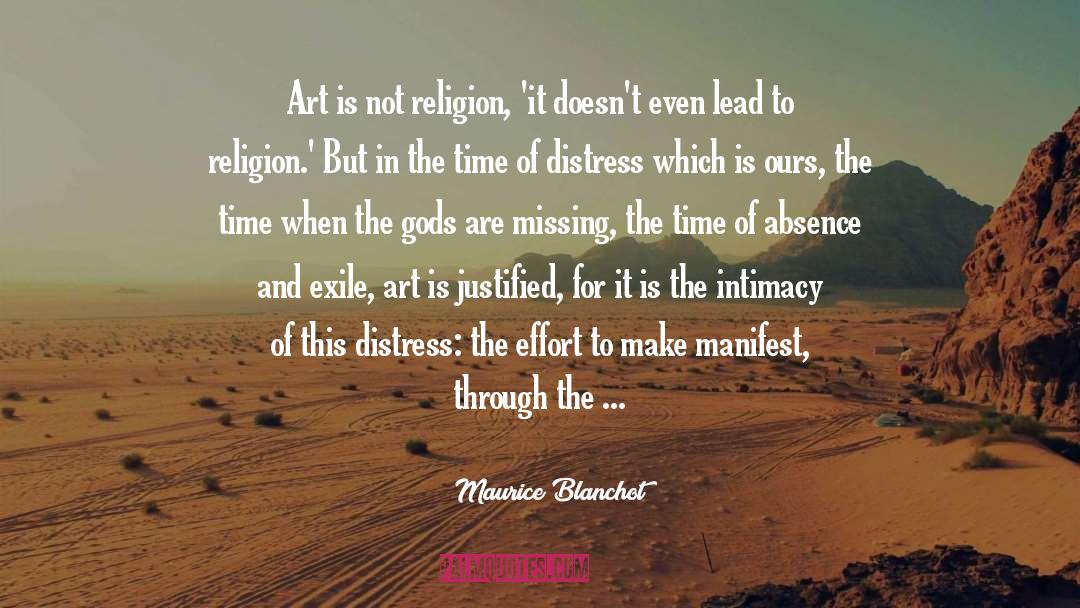
The decline of sustained close reading of Eliot is also related, ironically, to the emergence of historical scholarship regarding sources and allusions. The major figure here is Grover Smith, who in the midfifties published an encyclopedic study of Eliot's sources. 3 The mere existence of Smith's scholarly tome changed the shape of close readings of Eliot. The poet's allusions and sources moved to the foreground of concern, and although most readers of Eliot's poetry and plays benefited from Smith's work, others found themselves frustrated by the weight of the intellectual backgrounds. ~ Jewel Spears Brooker

I've seen middle grade books criticized by adult readers for leaving things for the reader to figure out, for not having perfect happily-ever-after endings. They get knocked for being too depressing, for using too many big words, for featuring parental characters who are too clueless. Girl protagonists are "too angry" or "too self-absorbed." The issues raised are "too heavy," the books "too earnest," "too quiet," "too hard," "too far-reaching," "too strange," and it is all too too much for the reader.
Except it's never the readers themselves saying these things.
Our critical discourse in middle grade is sometimes much more about what the reviewer believes children's books should be rather than about engaging with the book itself and the literature as a whole. When we say a book is "too sad," "too scary," "too complicated;" when we demand that endings are perfectly happy and all tied up; when we demand that the themes not be too weighty or the characters not face too much hardship; we are projecting our own biases onto the book, and using them to prescribe what books for this age range can or cannot do. This is nannying, not literary criticism - and it doesn't give kids much credit. ~ Anne Ursu
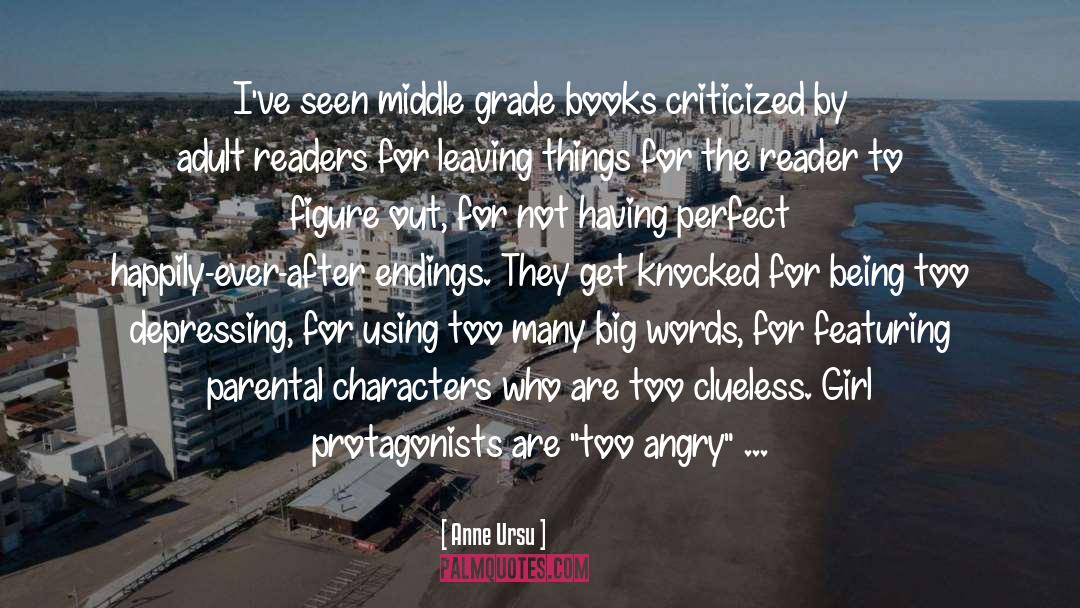
The Pages of Gup, now that they had talked through everything so fully, fought hard, remained united, support each other when required to do so, and in general looked like a force with a common purpose. All those arguments and debates, all that openness, had created powerful bonds of friendship between them. ~ Salman Rushdie
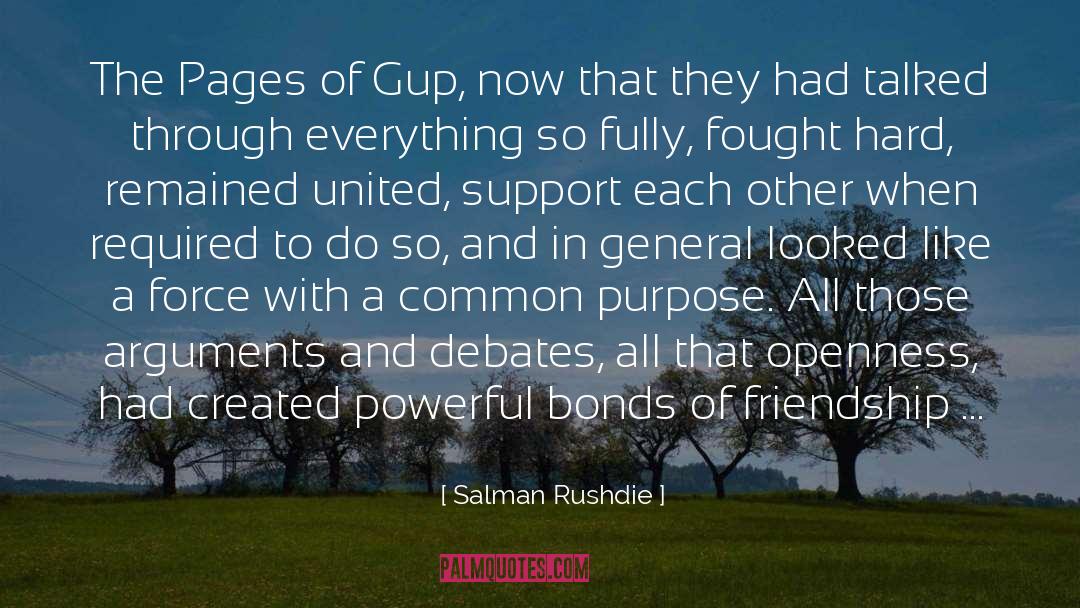
Several times he had to flatten himself against the shelves as a thesaurus thundered by. He waited patiently as a herd of Critters crawled past, grazing on the contents of the choicer books and leaving behind them piles of small slim volumes of literary criticism. ~ Terry Pratchett
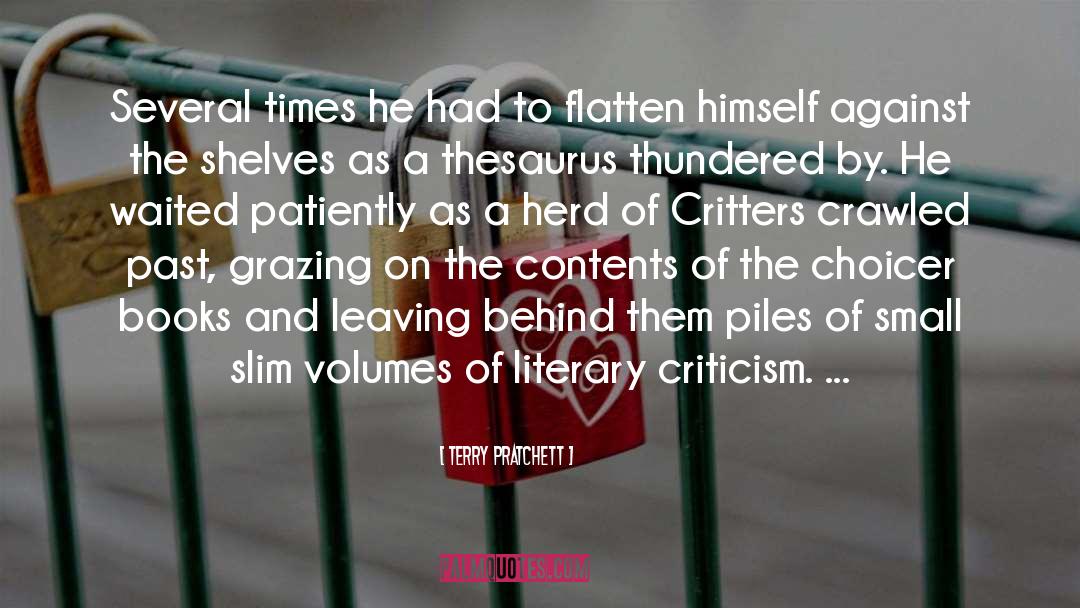
Few poets better convey the uneasy transition from Victorianism to Modernism than Thomas Hardy. His novels, written between 1870 and 1895, made him not only the recorder of his distinctive region of 'Wessex', but the explorer of the transition of lives and minds from the age of traditional values and religious certainties to the age of godlessness and modern tragedy, a transition sometimes described as 'the clash of the modern'. ~ Ronald Carter
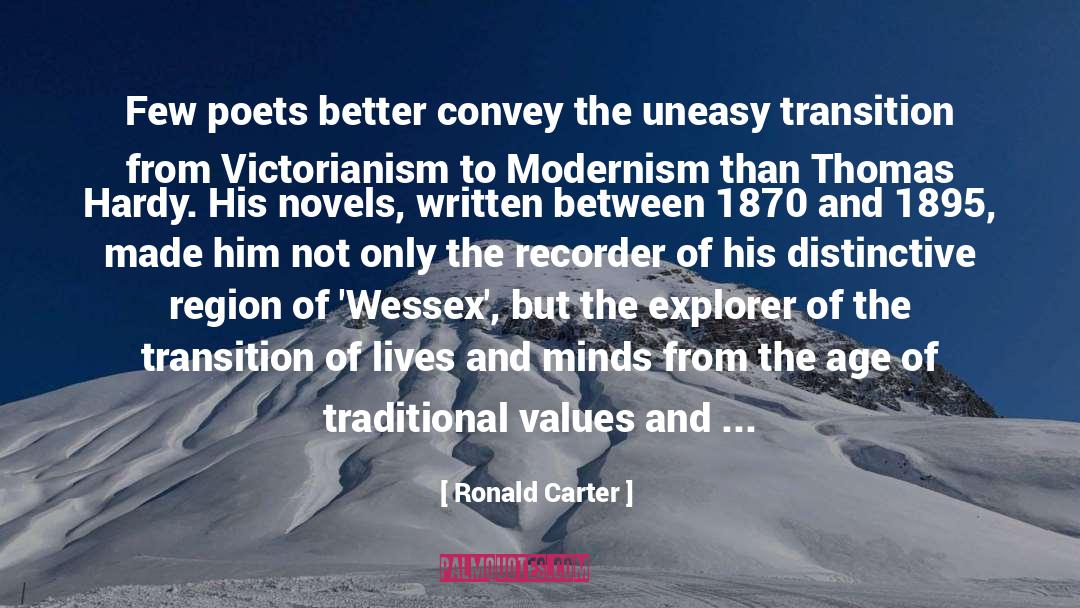
I hope each of us owns the facts of her or his own life," Hughes wrote in a letter to the Independent in April, 1989, when he had been goaded by a particularly intrusive article. But, of course, as everyone knows who has ever heard a piece of gossip, we do not "own" the facts of our lives at all. This ownership passes out of our hands at birth, at the moment we are first observed.
The organs of publicity that have proliferated in our time are only an extension and a magnification of society's fundamental and incorrigible nosiness. Our business is everybody's business, should anybody wish to make it so. The concept of privacy is a sort of screen to hide the fact that almost none is possible in a social universe. In any struggle between the public's inviolable right to be diverted and an individual's wish to be left alone, the public almost always prevails. After we are dead, the pretense that we may somehow be protected against the world's careless malice is abandoned. The branch of the law that putatively protects our good name against libel and slander withdraws from us indifferently. The dead cannot be libelled or slandered. They are without legal recourse. ~ Janet Malcolm
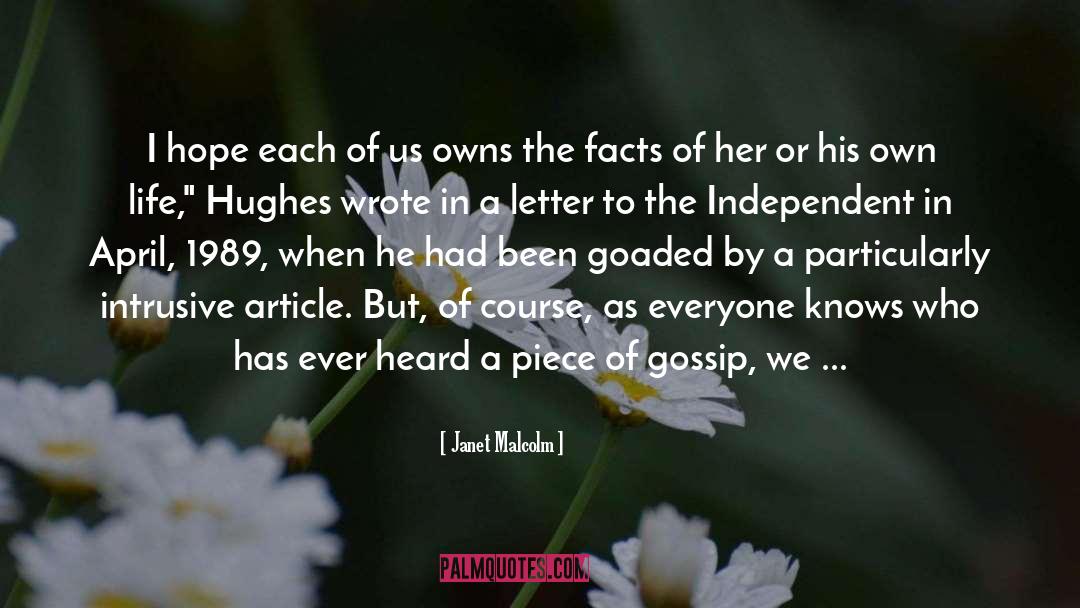
Little did they suspect that the years would end by wearing away the disharmony.
Little did they suspect that La Mancha and Montiel and the knight's frail figure would be, for the future, no less poetic than Sinbad's haunts or Ariosto's vast geographies.
For myth is at the beginning of literature, and also at its end. ~ Jorge Luis Borges
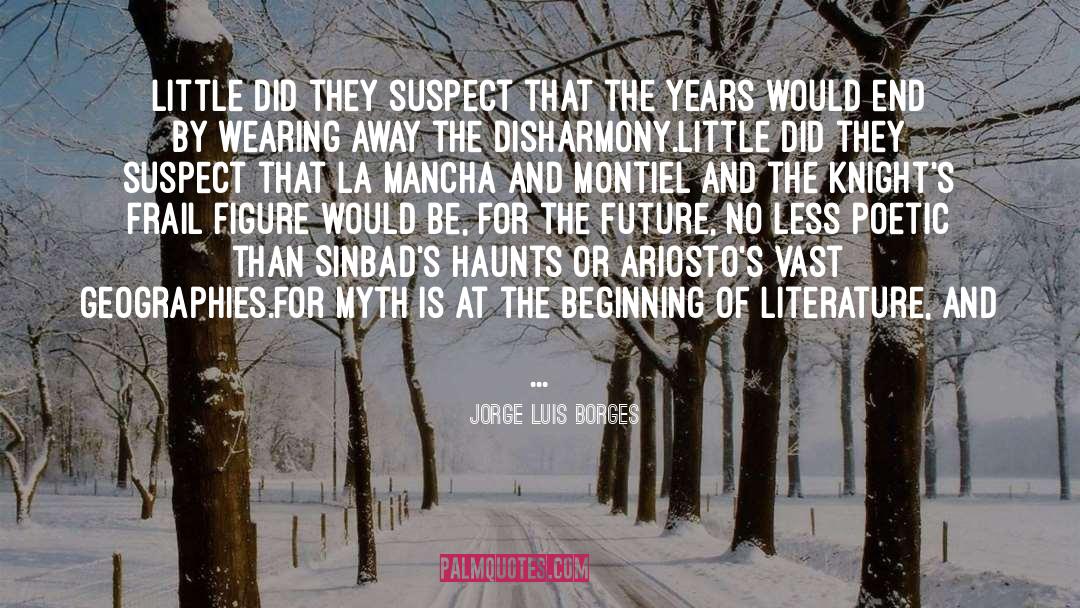
You never push a noun against a verb without trying to blow up something. ~ H.L. Mencken

CUSTOMER (to her friend): What's this literary criticism section? Is it for books that complain about other books? ~ Jen Campbell
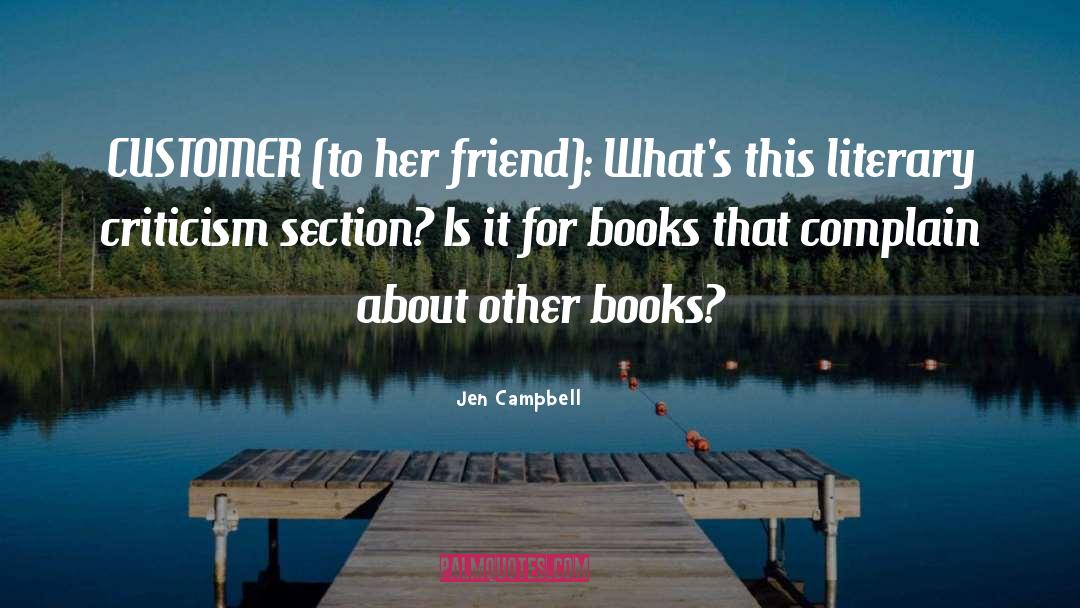
Attempts to connect men's circumstances too closely with their literary productions are usually, I believe, unsuccessful. ~ C.S. Lewis

Saying that studying the brain is limited to the study of physical entities would be like saying that literary criticism must focus on paper and bookbinding, ink and its chemistry, page sizes and margin widths, typefaces and paragraph lengths, and so forth. ~ Douglas R. Hofstadter
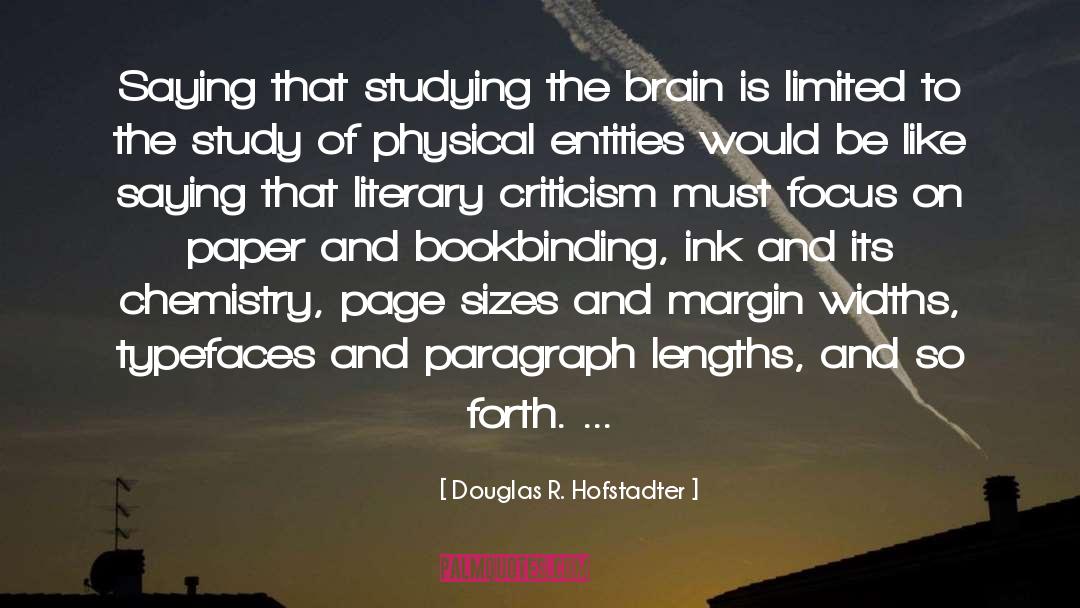
Novels begin and end with, consist of, and indeed in one sense are nothing but voices. So reading is learning to listen sensitively, and to tune in accurately, to varying frequencies and a developing programme.
From the opening words a narrative voice begins to create
its own characteristic personality and sensibility, whether it belongs to an 'author' or a 'character'. At the same time a reader is being created, persuaded to become the particular kind of reader the book requires. A relationship develops, which becomes the essential basis of the experience. In the modulation of the fictive voice,
finally, through the creation of 'author' and 'reader* and their relationship, there is a definition of the nature and status of the experience, which will always imply a particular idea of ordering the world.
So much is perhaps familiar enough, and a useful rhetoric of Voice' has developed. Yet I notice in my students and myself, when its vocabulary is in play, a tendency to become rather too abstract or technical, and above all too spatial and static. Perhaps we need to remind ourselves what it can be like to listen to close friends,
talking animatedly and seriously in everyday experience, in order to make sure that a vocabulary which often points only to broad strategies does not tempt us to underplay the extraordinary resourcefulness,
variety and fluctuation of the novelist's voice. ~ Ian Gregor
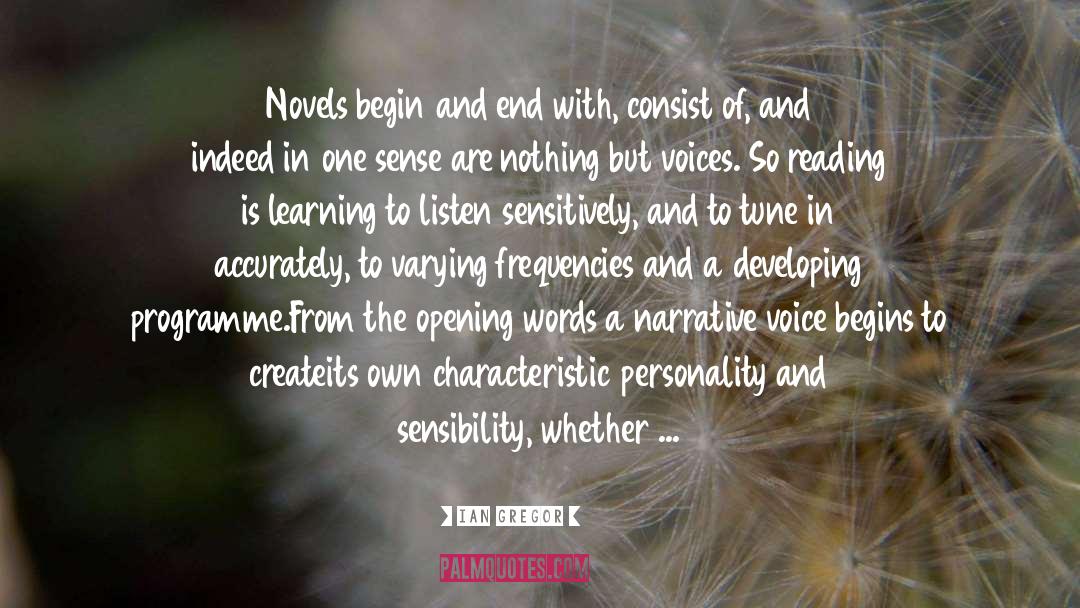
The Bloomsbury Group has been characterised as a liberal, pacifist, and at times libertine, intellectual enclave of Cambridge-based privilege. The Cambridge men of the group (Bell, Forster, Fry, Keynes, Strachey, Sydney-Turner) were members of the elite and secret society of Cambridge Apostles. Woolf's aesthetic understanding, and broader philosophy, were in part shaped by, and at first primarily interpreted in terms of, (male) Bloomsbury's dominant aesthetic and philosophical preoccupations, rooted in the work of G. E. Moore (a central influence on the Apostles), and culminating in Fry's and Clive Bell's differing brands of pioneering aesthetic formalism. 'The main things which Moore instilled deep into our minds and characters,' Leonard Woolf recalls, 'were his peculiar passion for truth, for clarity and common sense, and a passionate belief in certain values.'
Increasing awareness of Woolf's feminism, however, and of the influence on her work of other women artists, writers and thinkers has meant that these Moorean and male points of reference, though of importance, are no longer considered adequate in approaching Woolf's work, and her intellectual development under the tutelage of women, together with her involvement with feminist thinkers and activists, is also now acknowledged. ~ Jane Goldman
